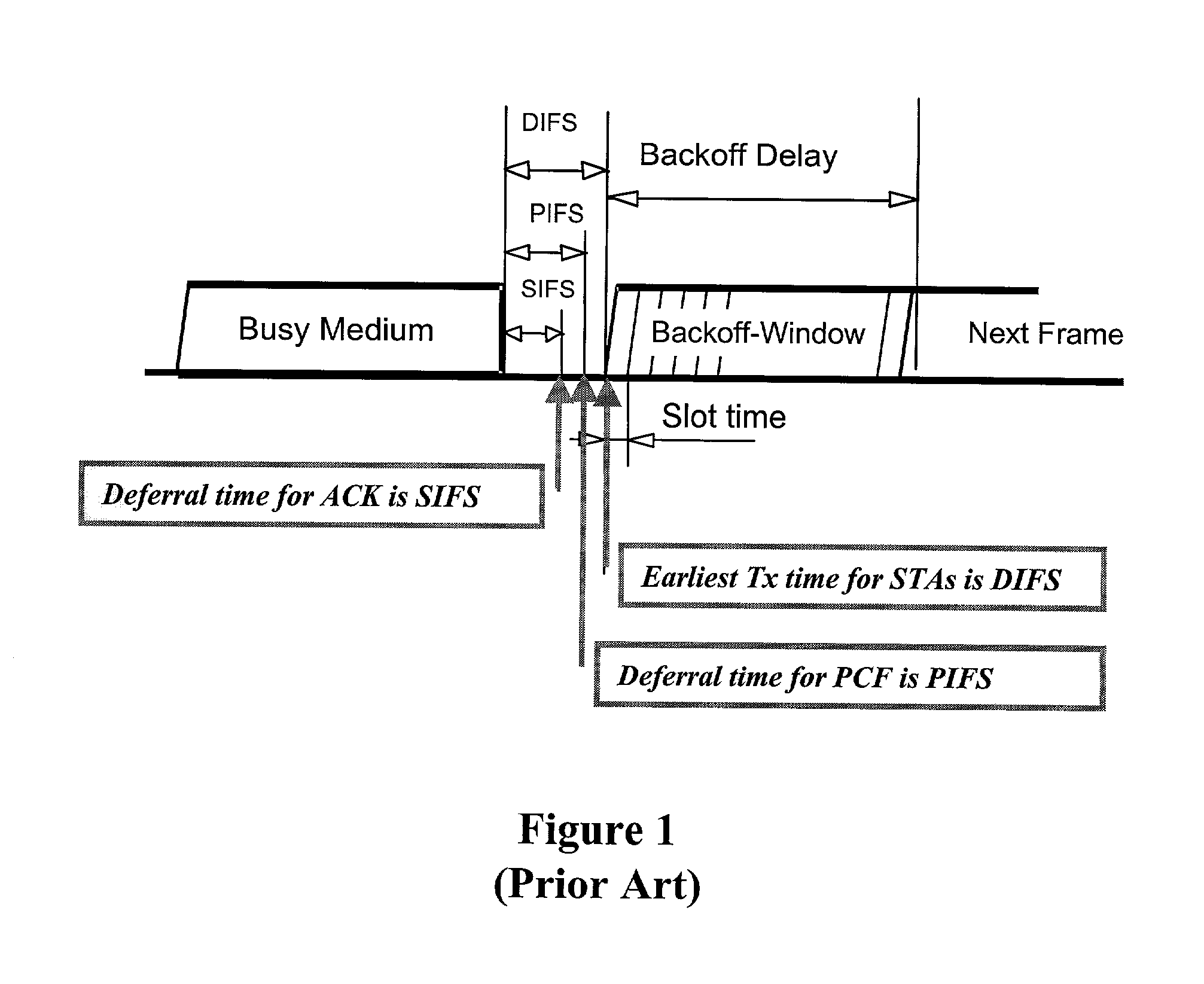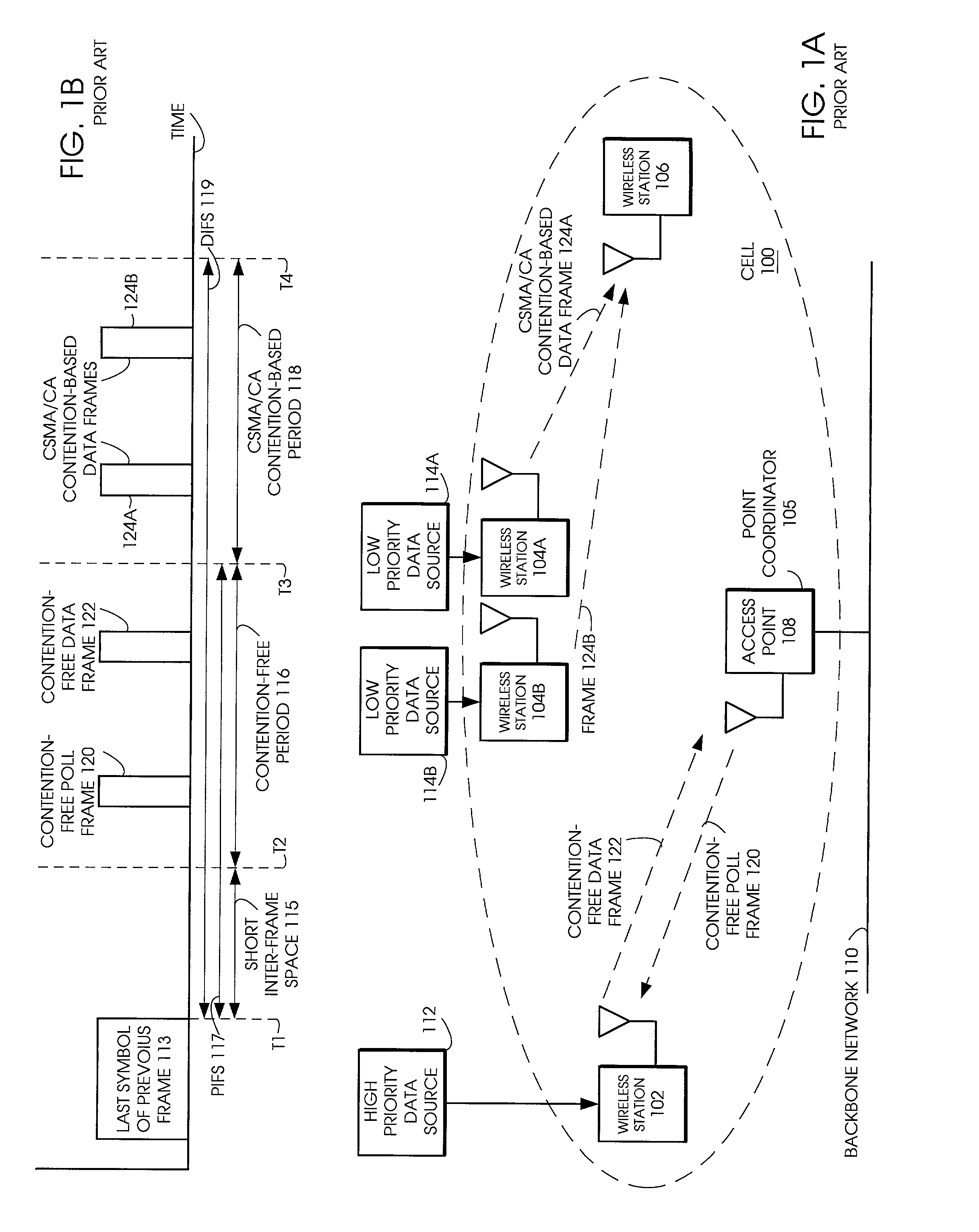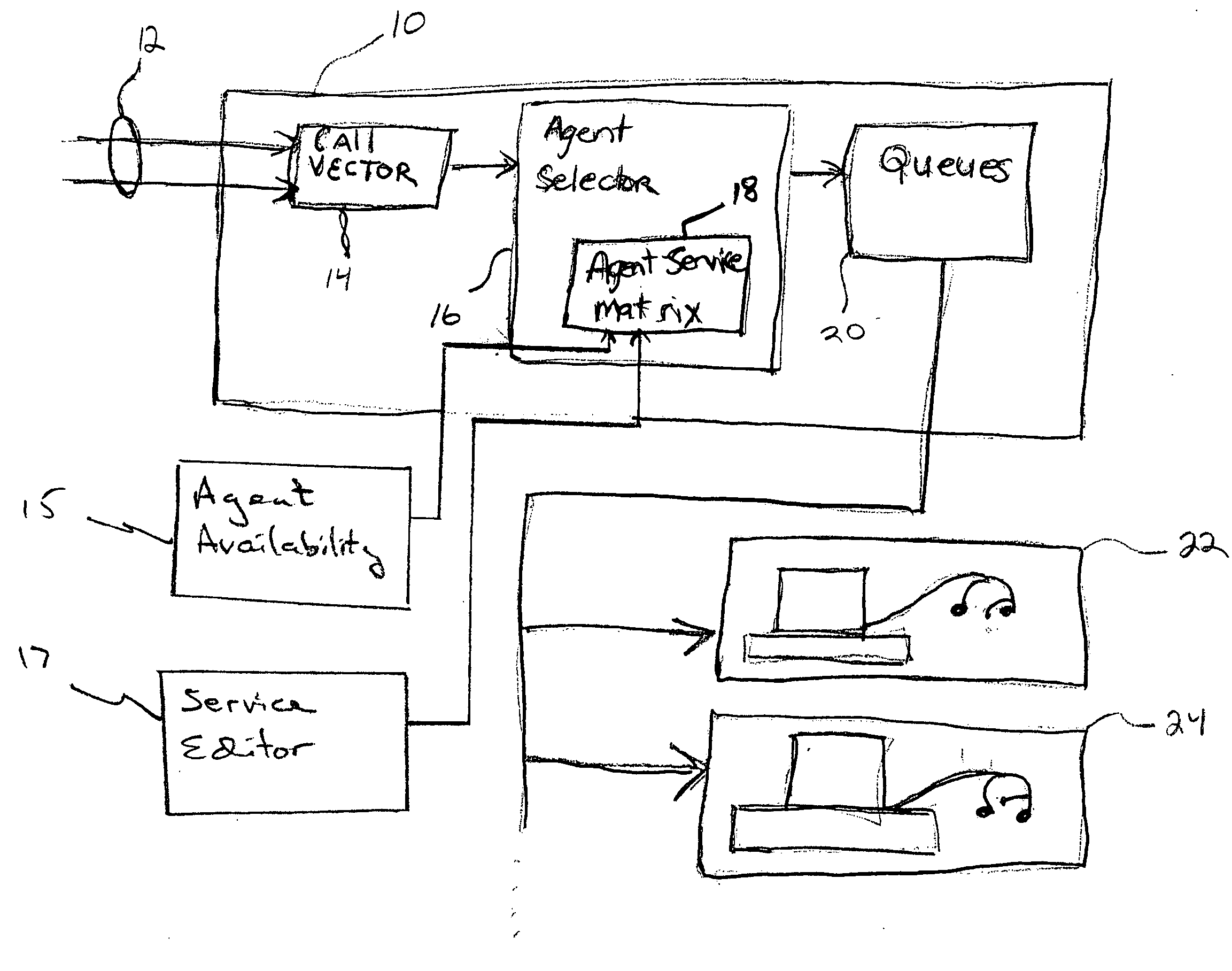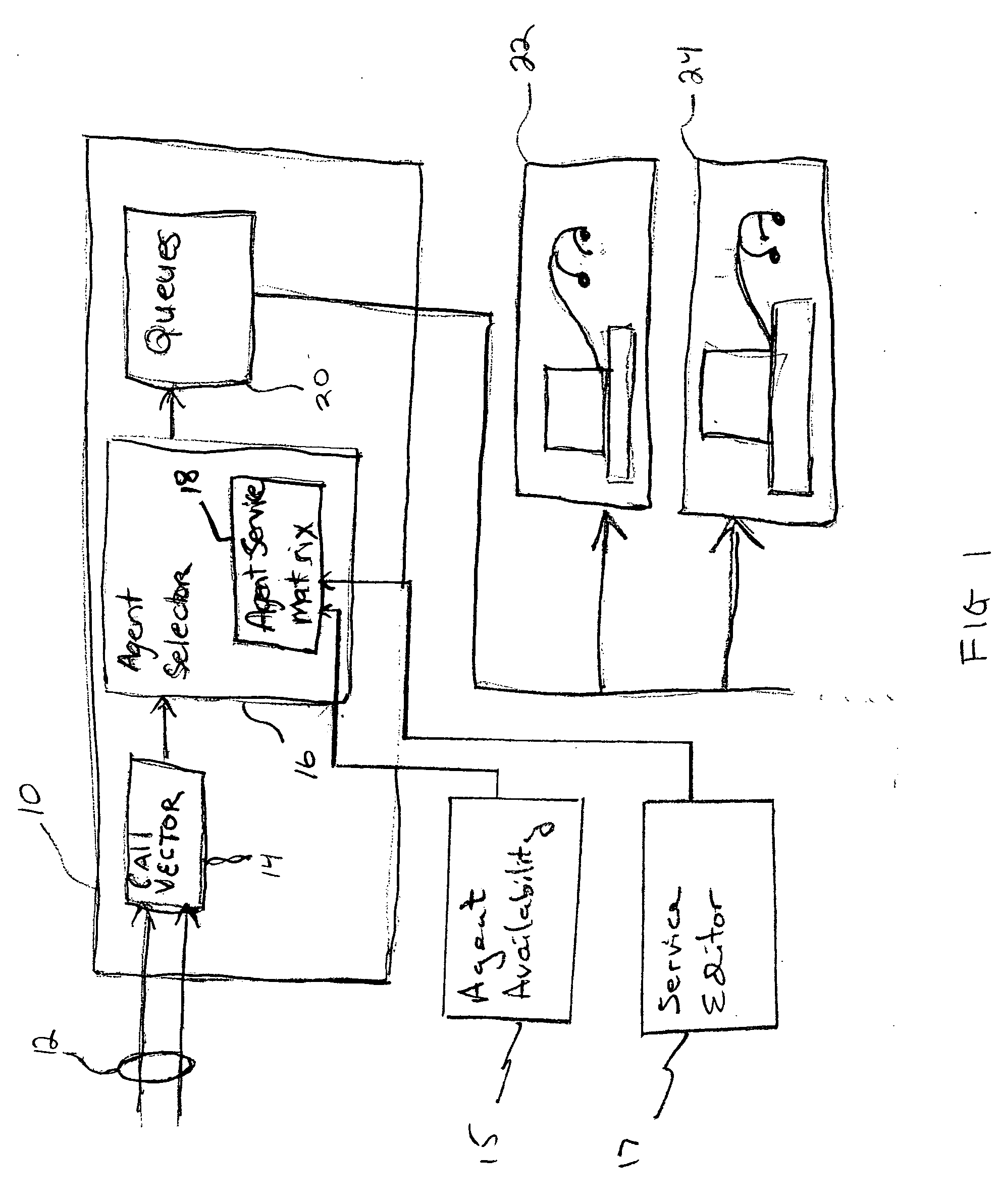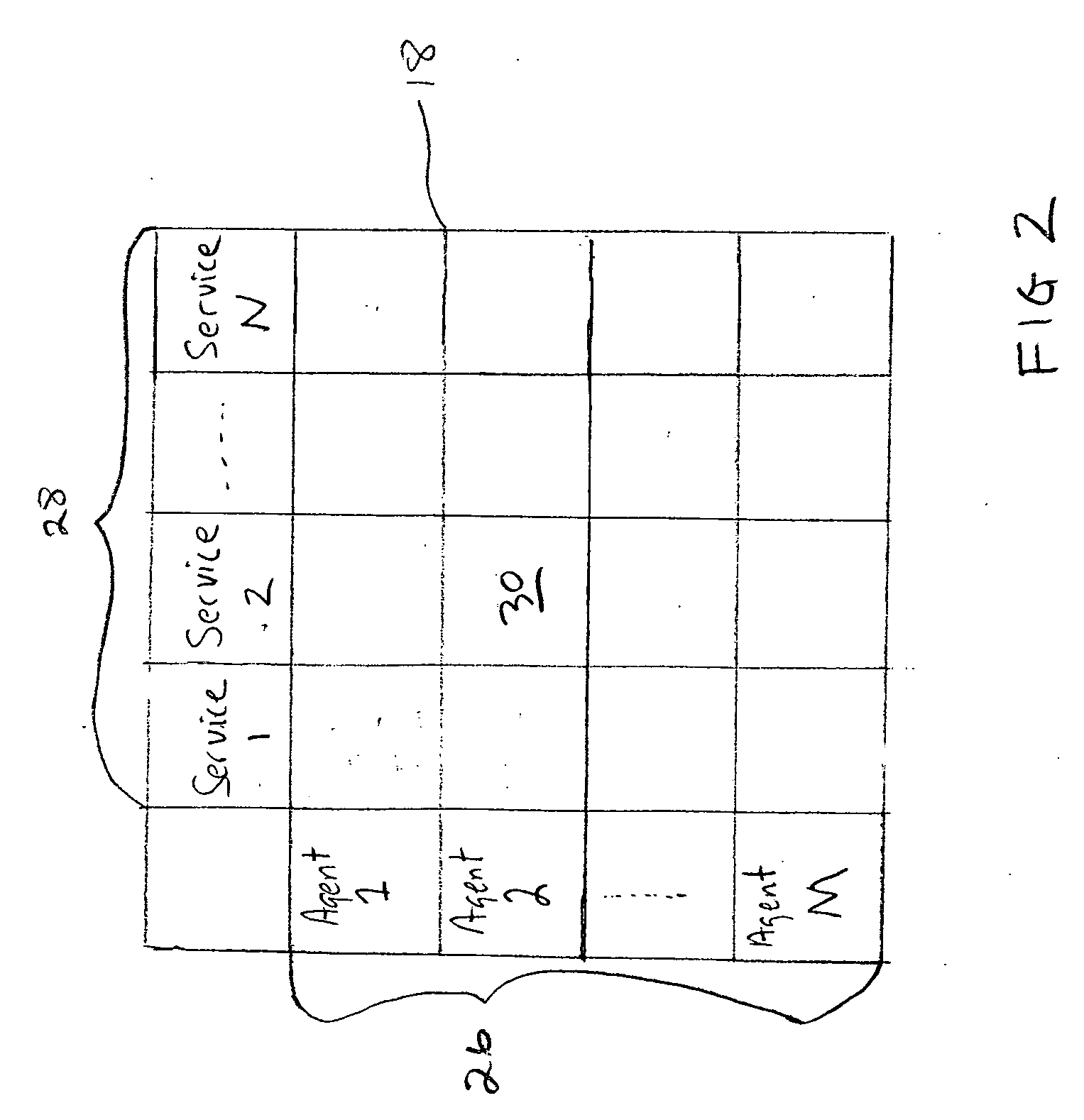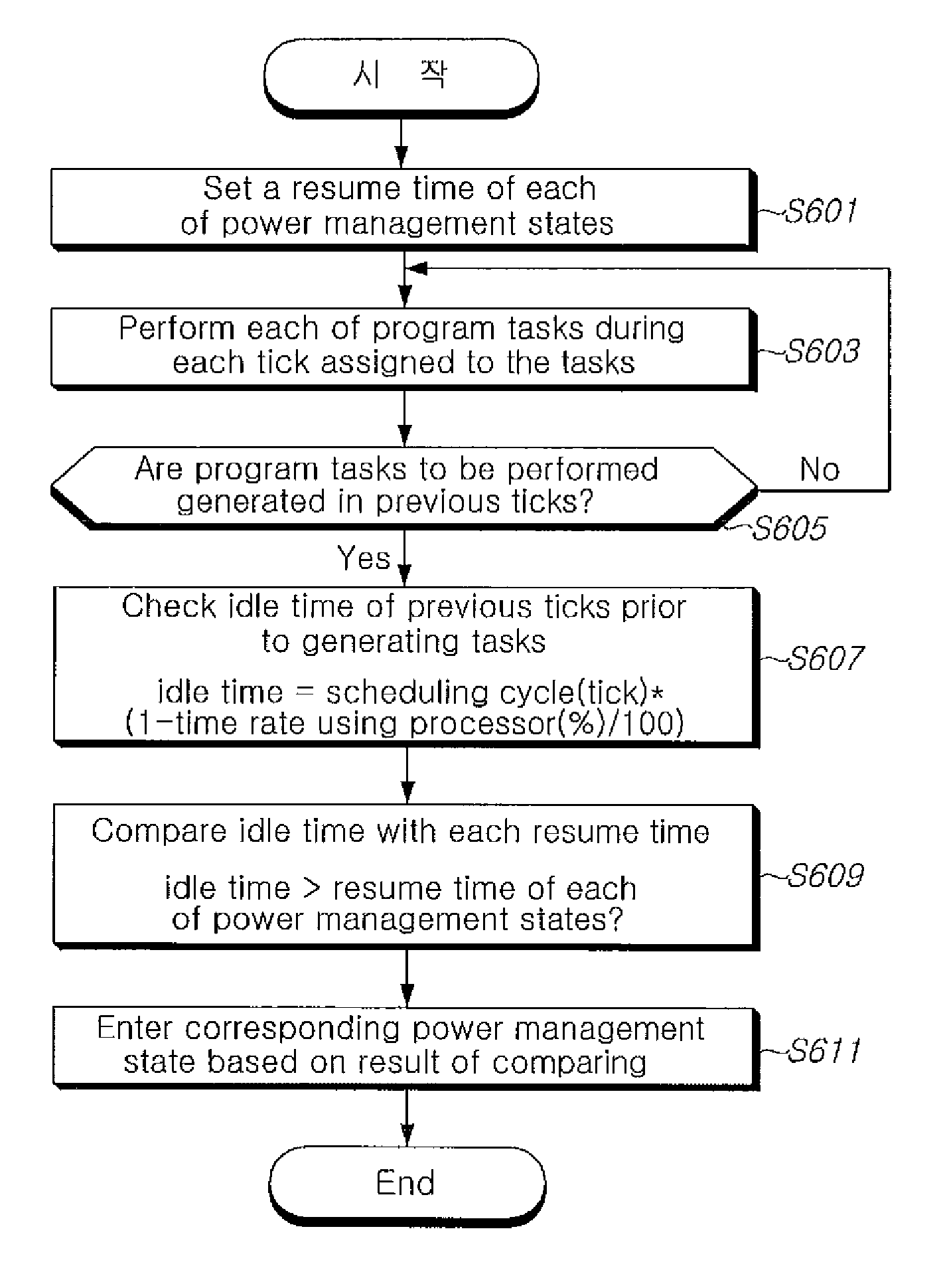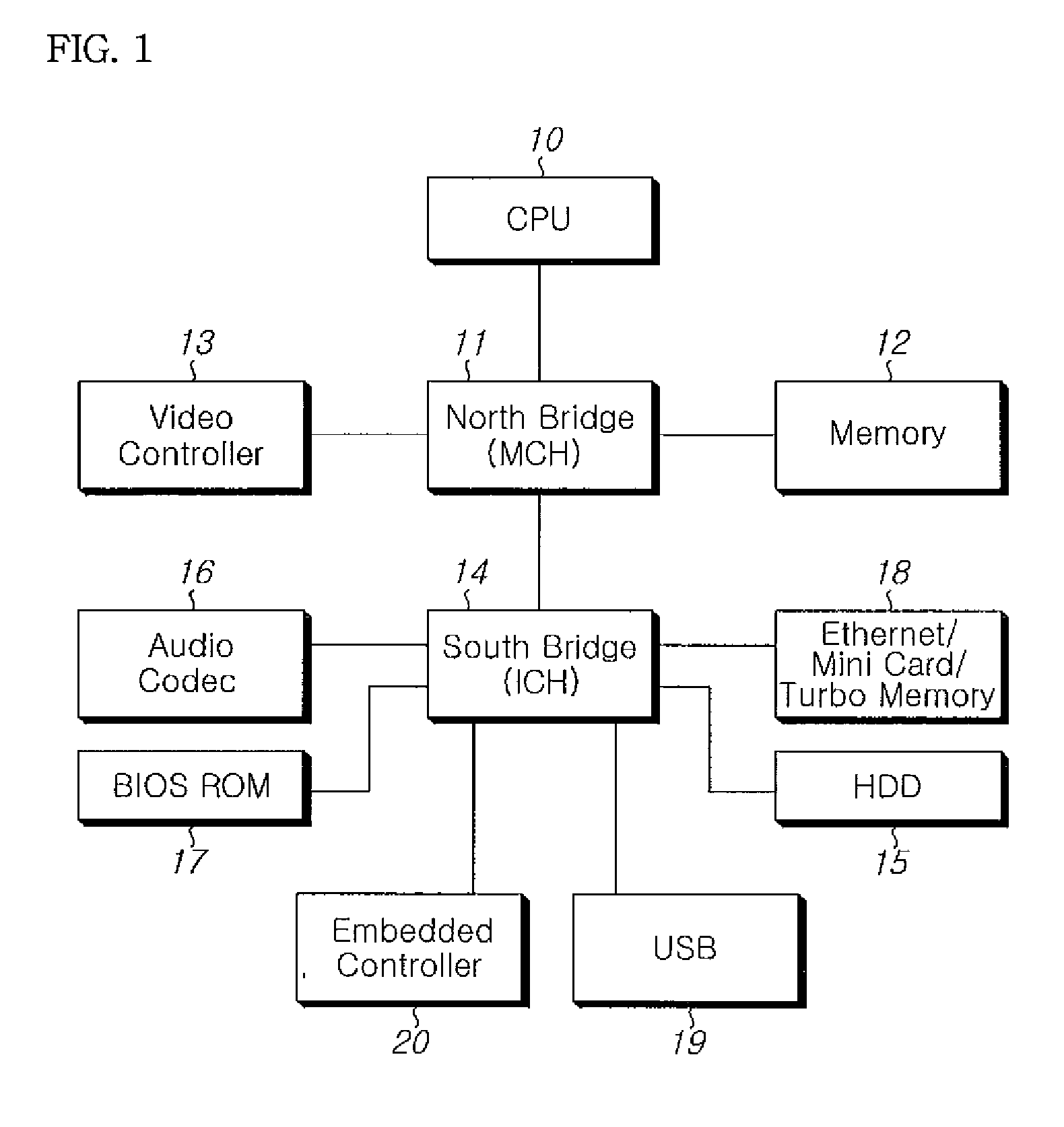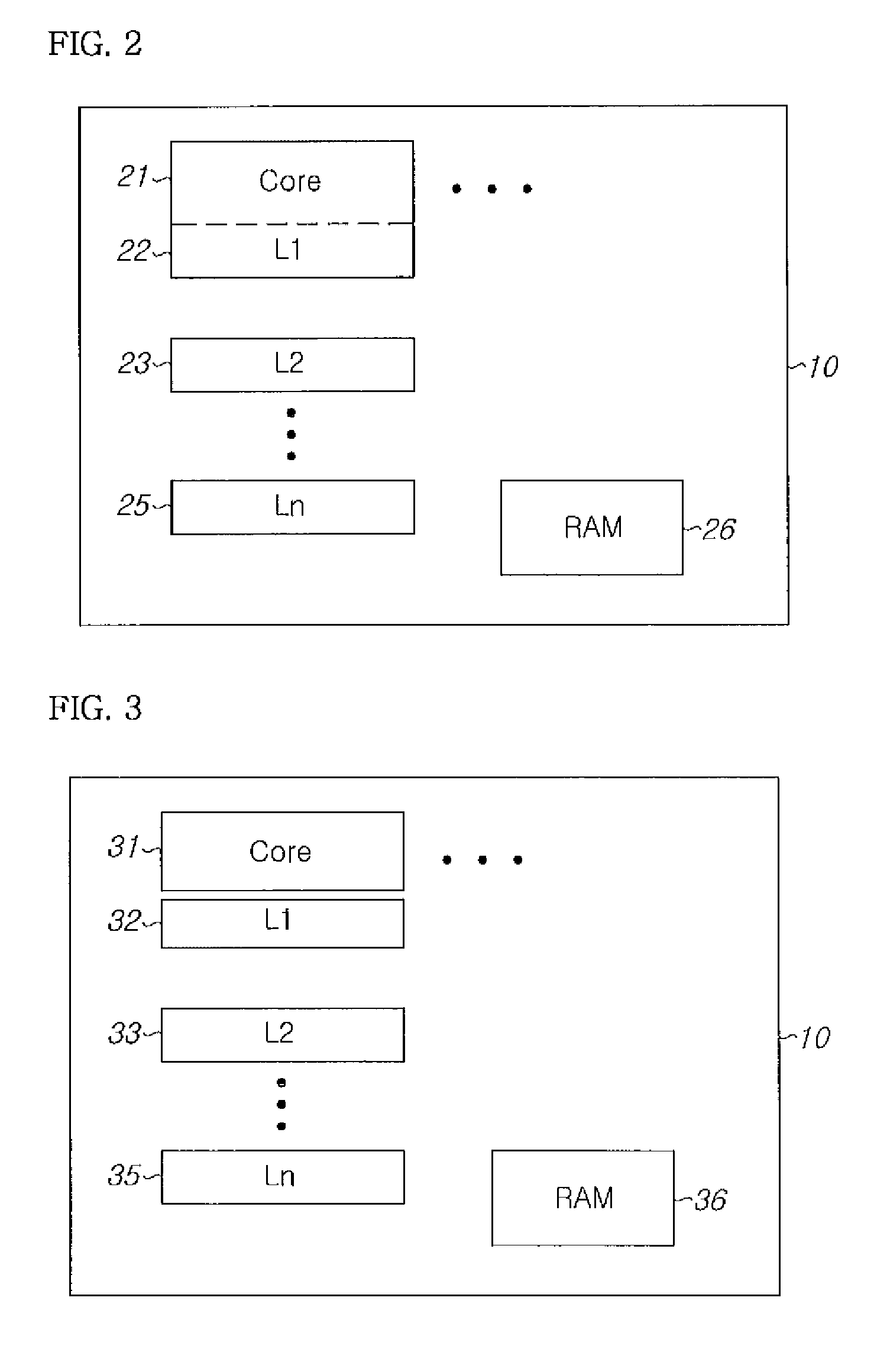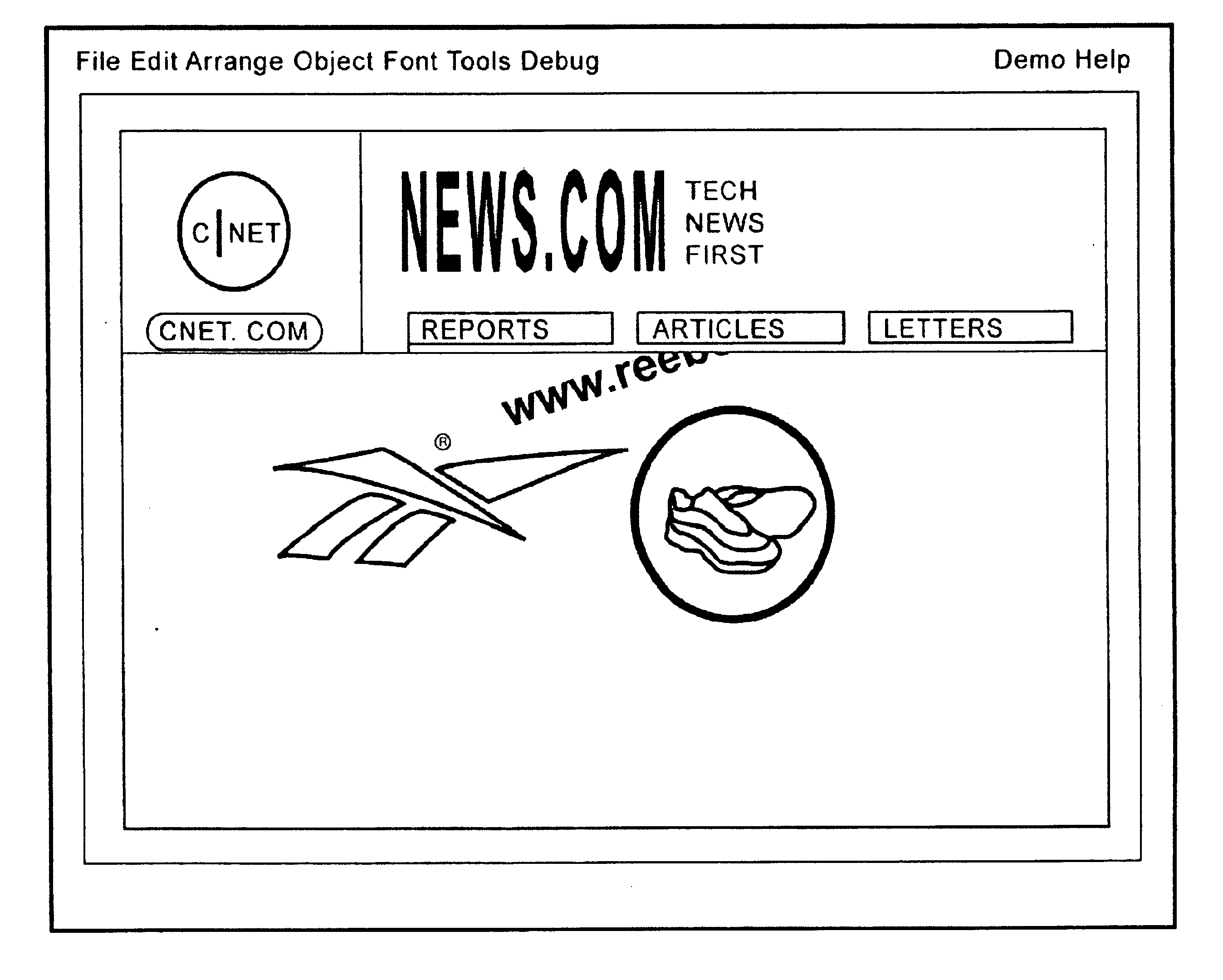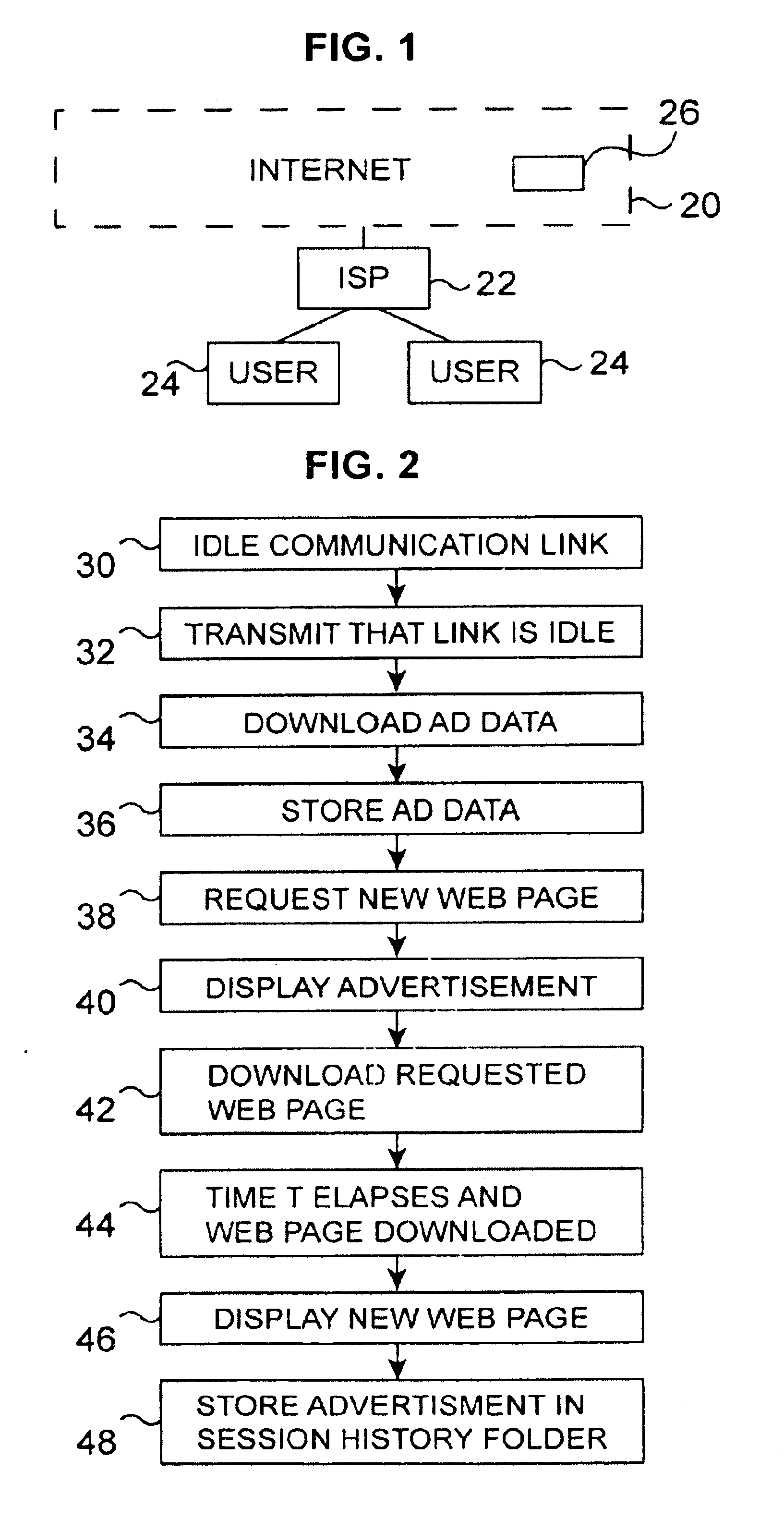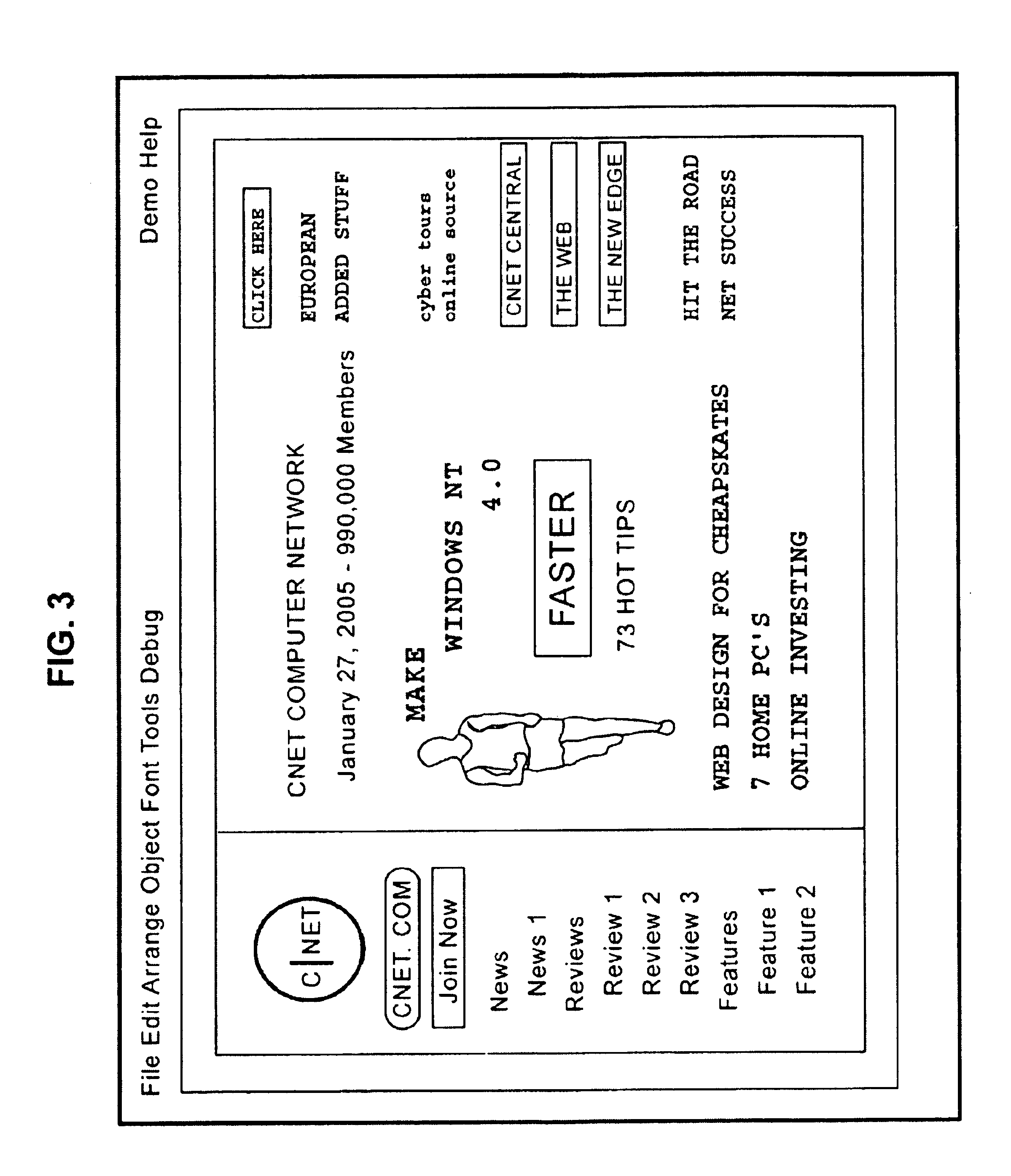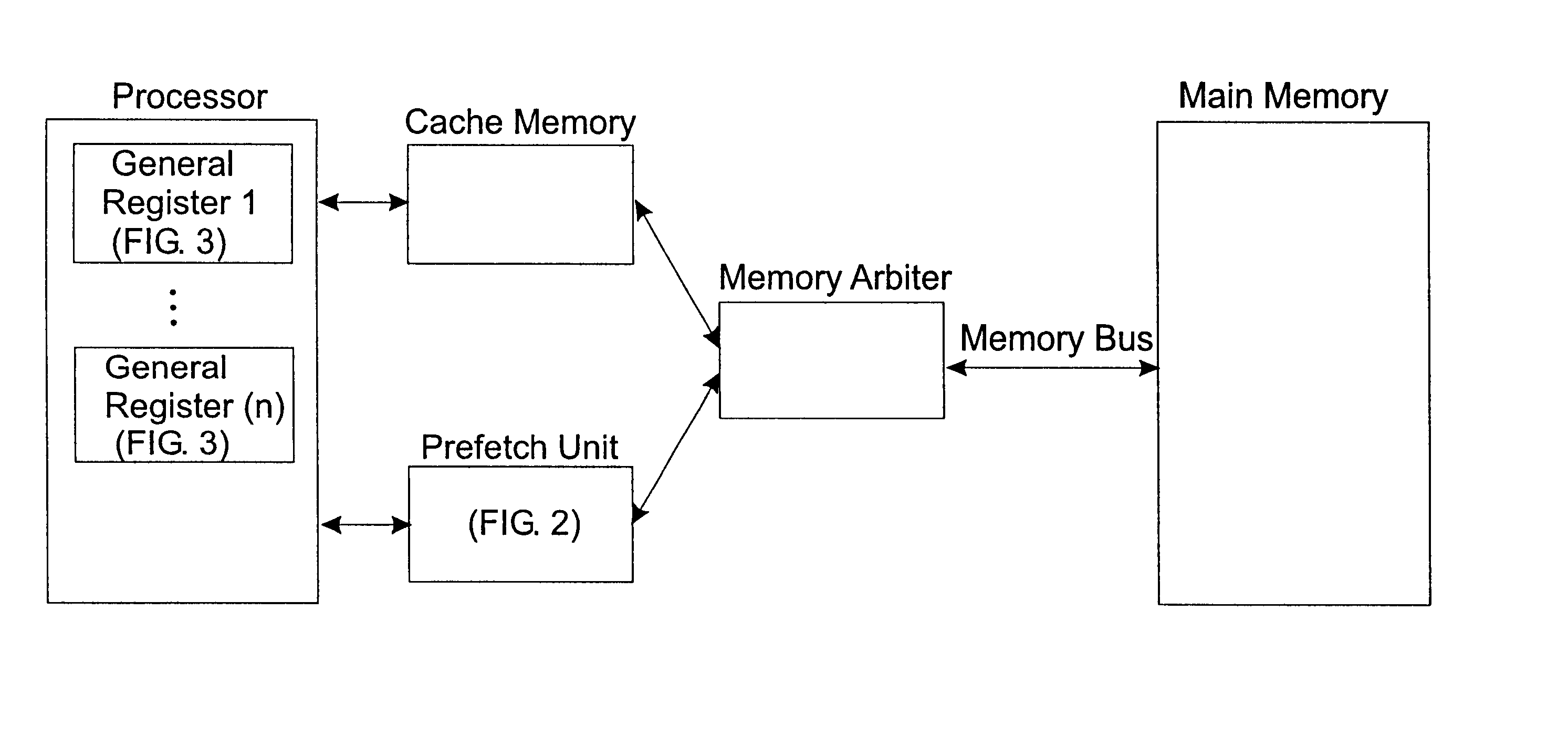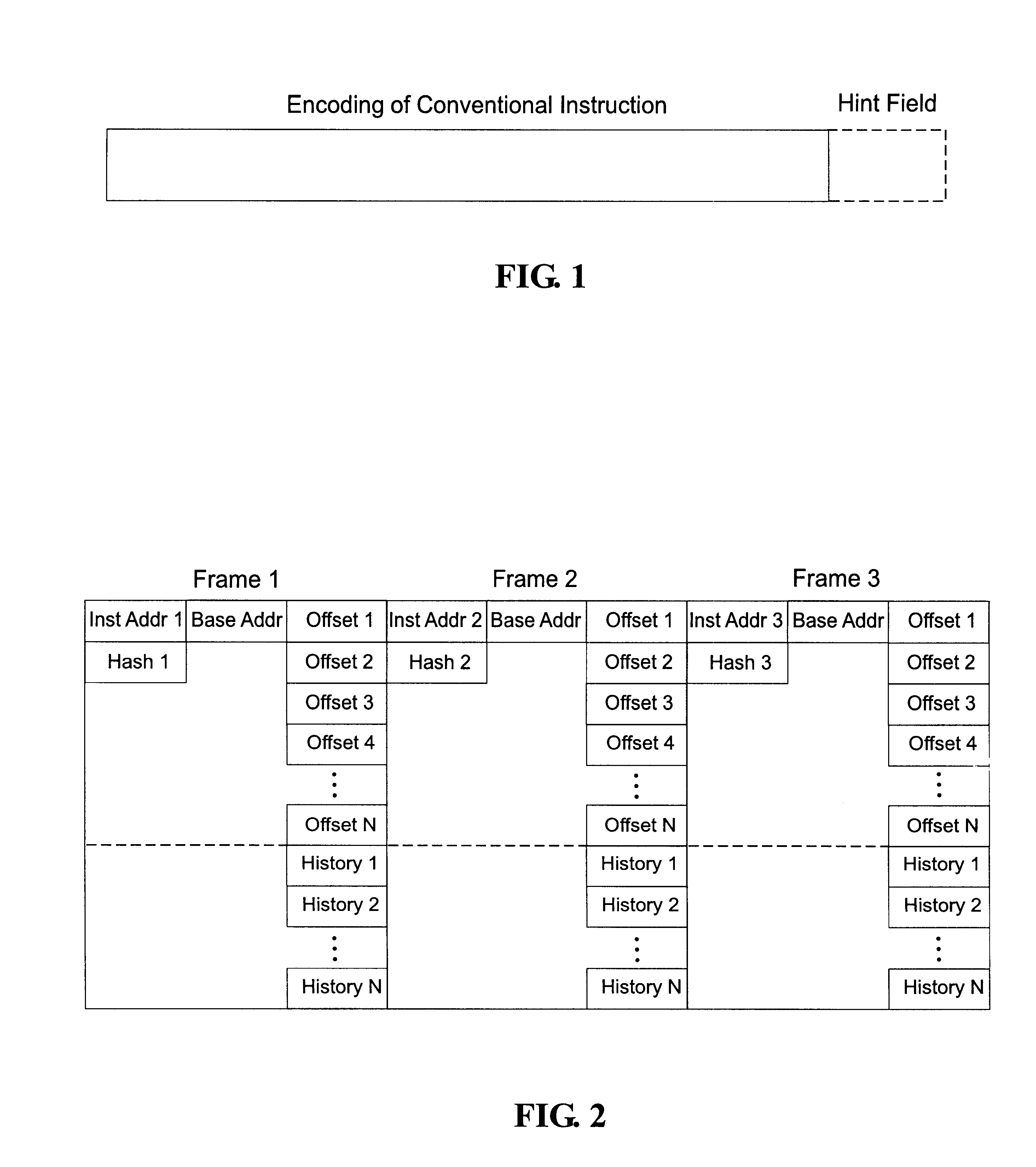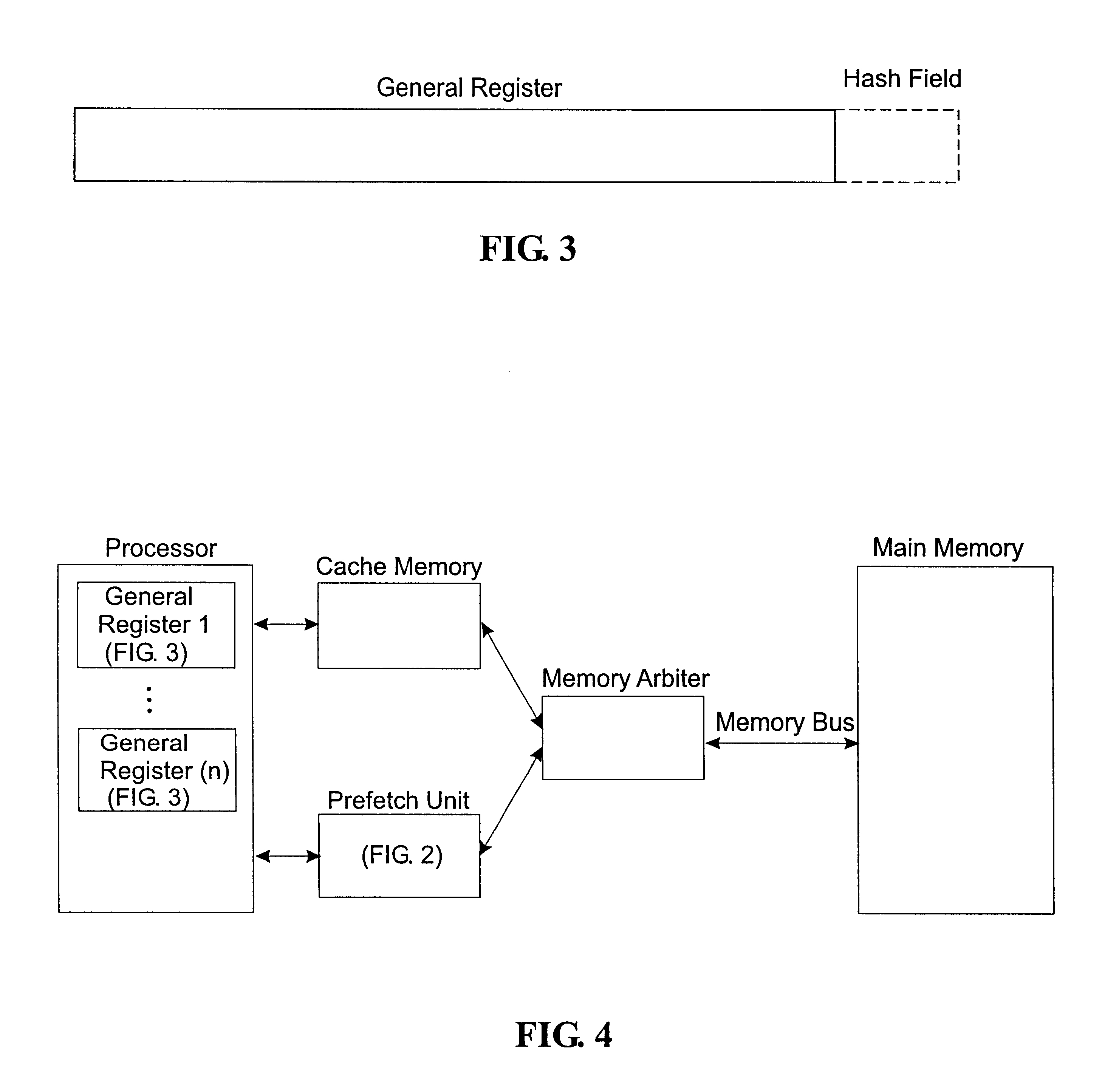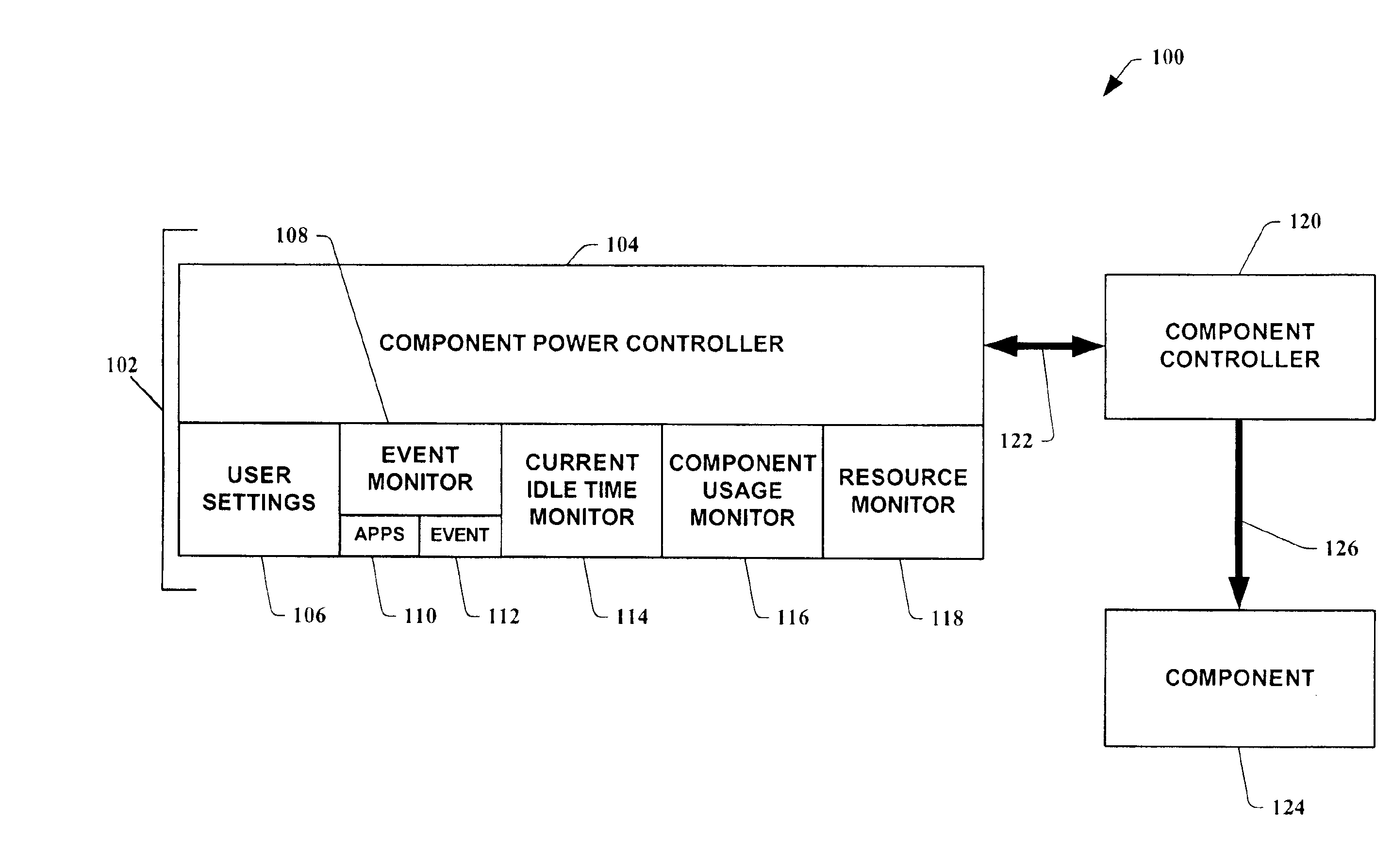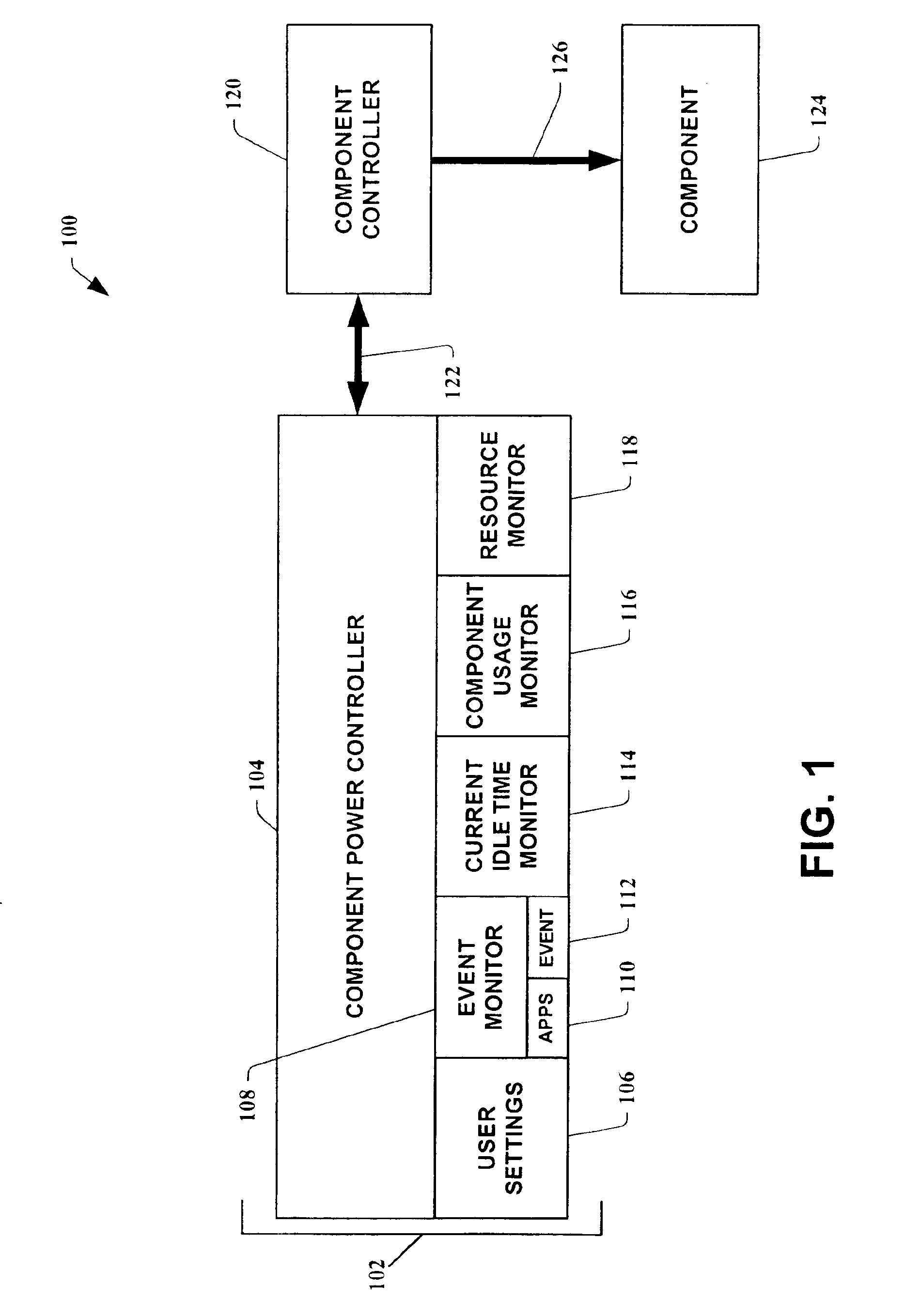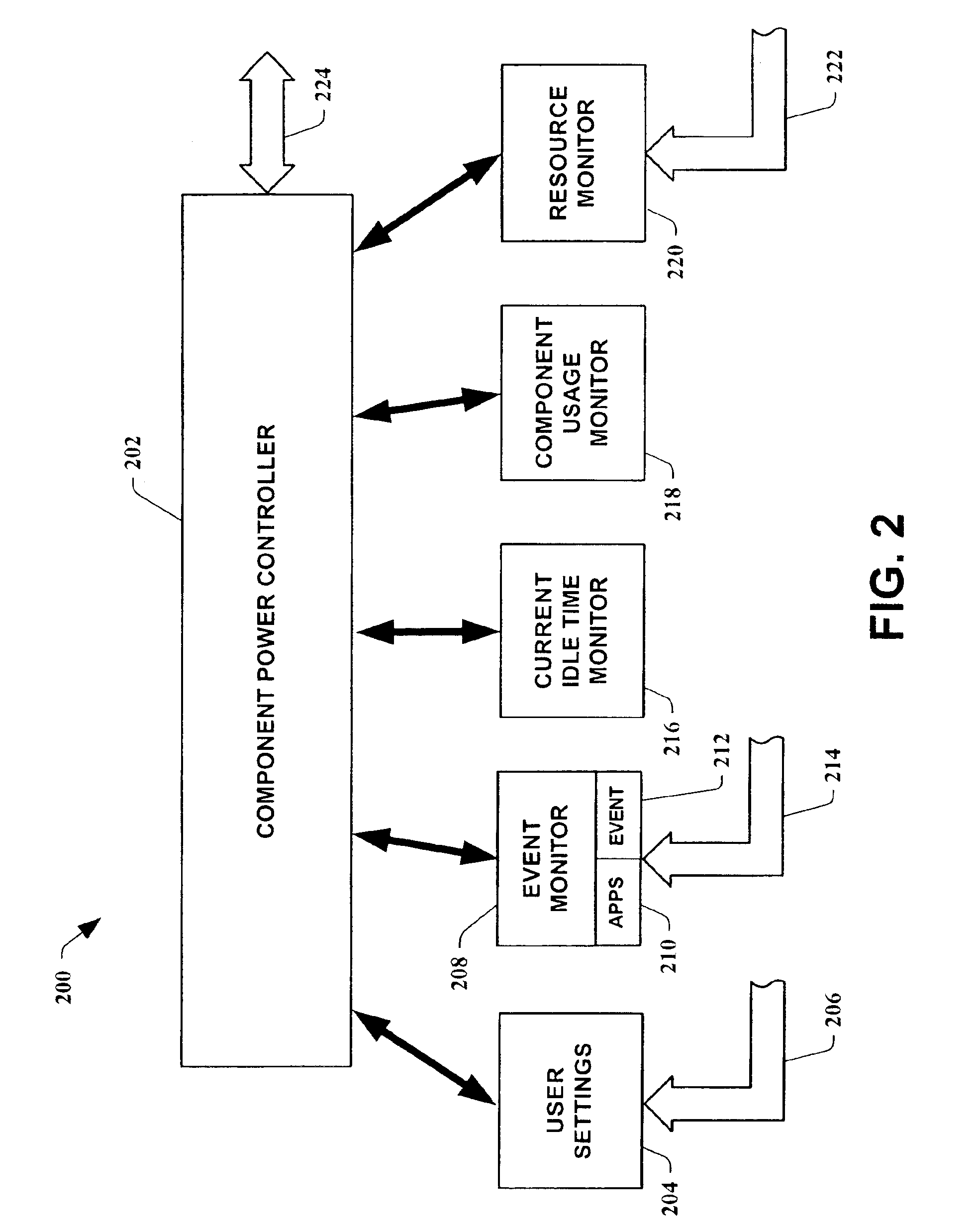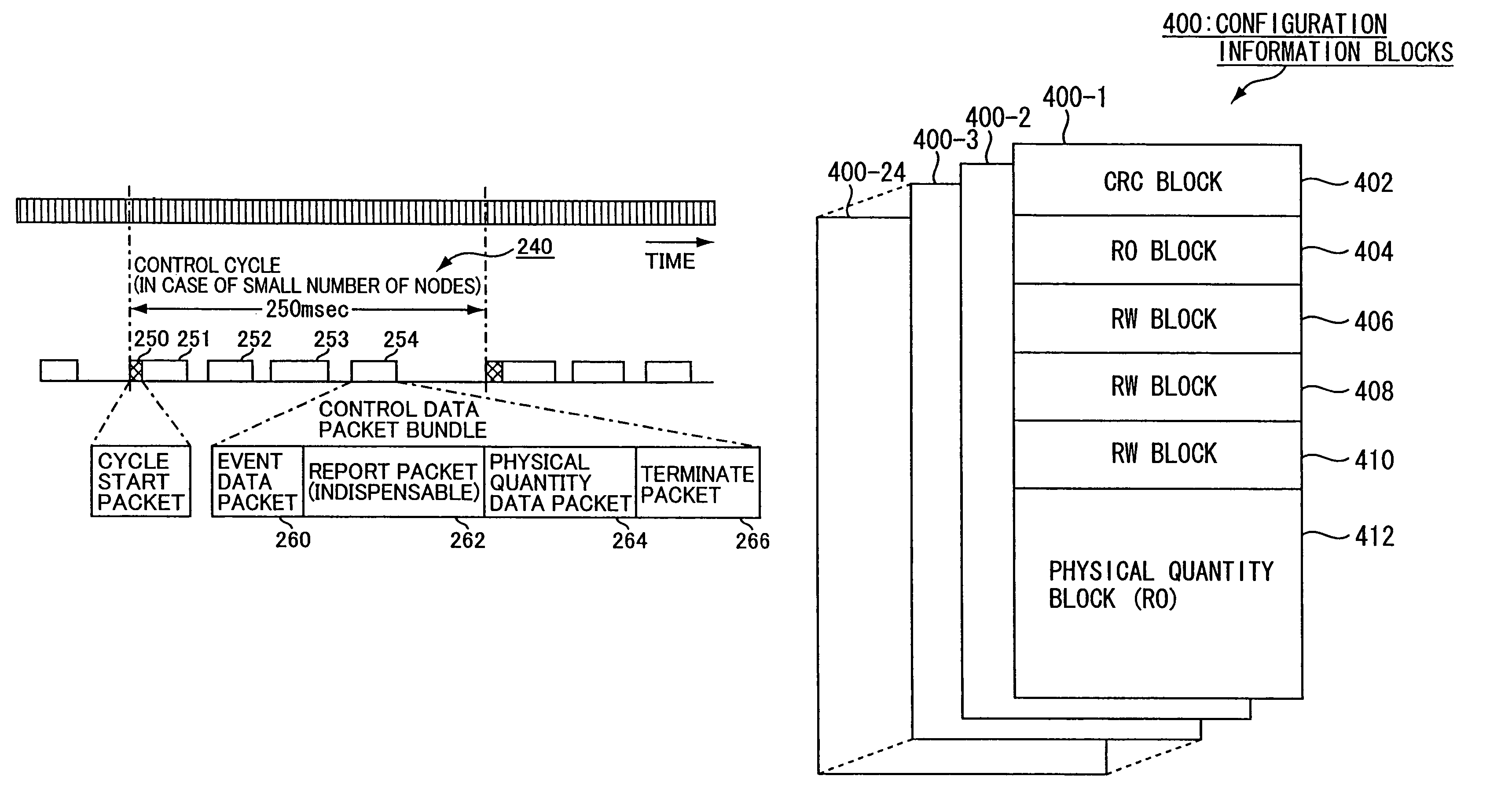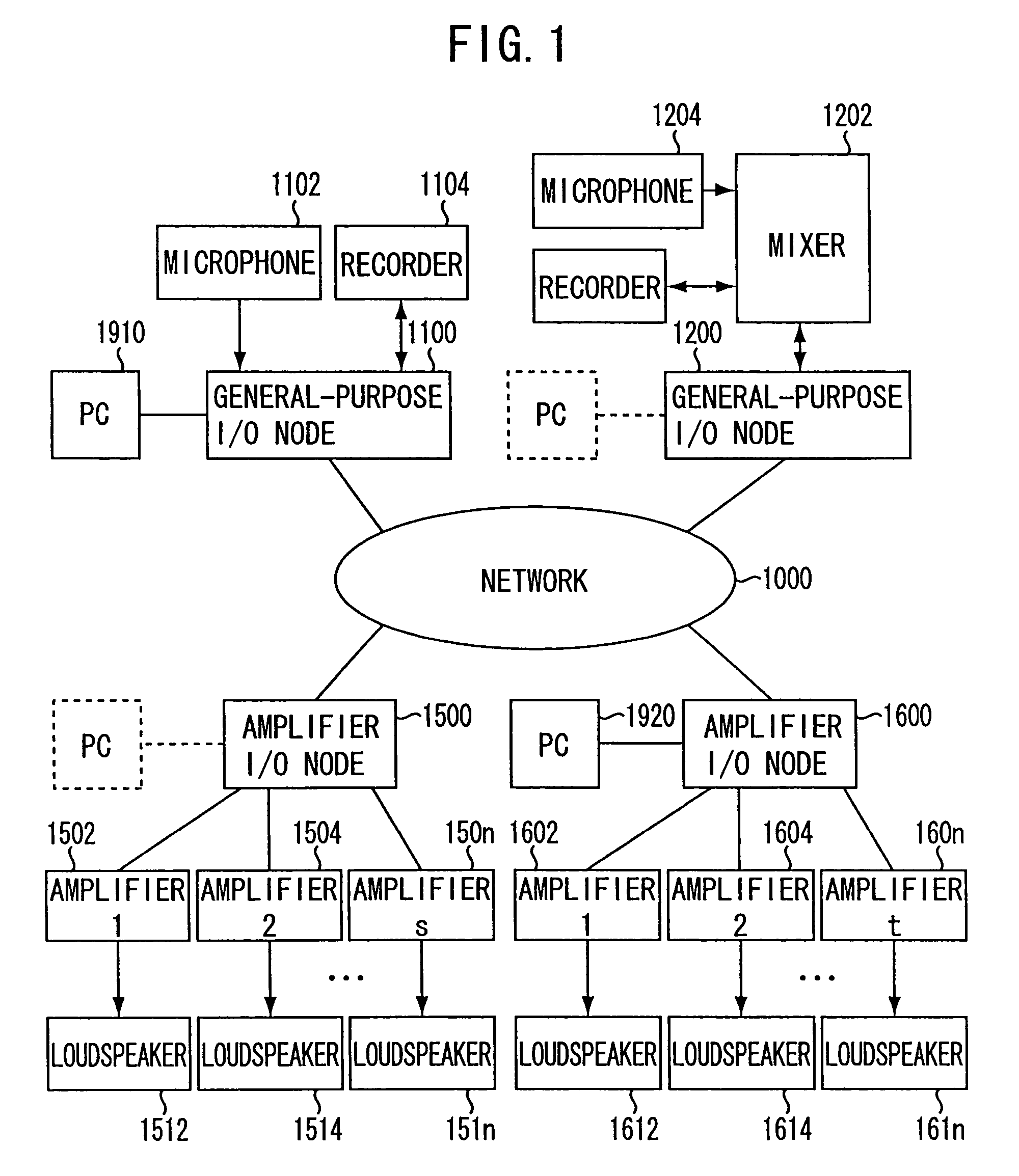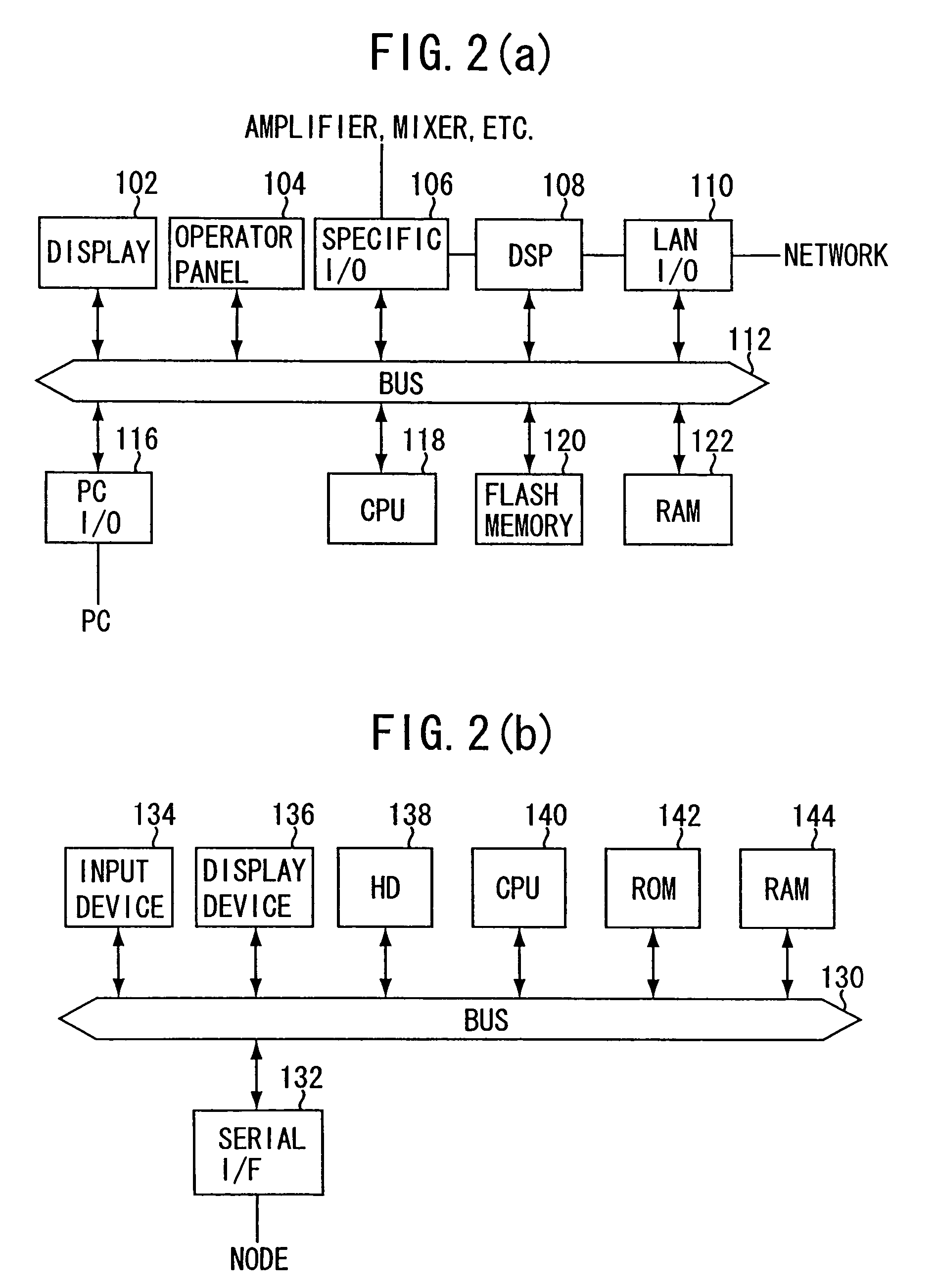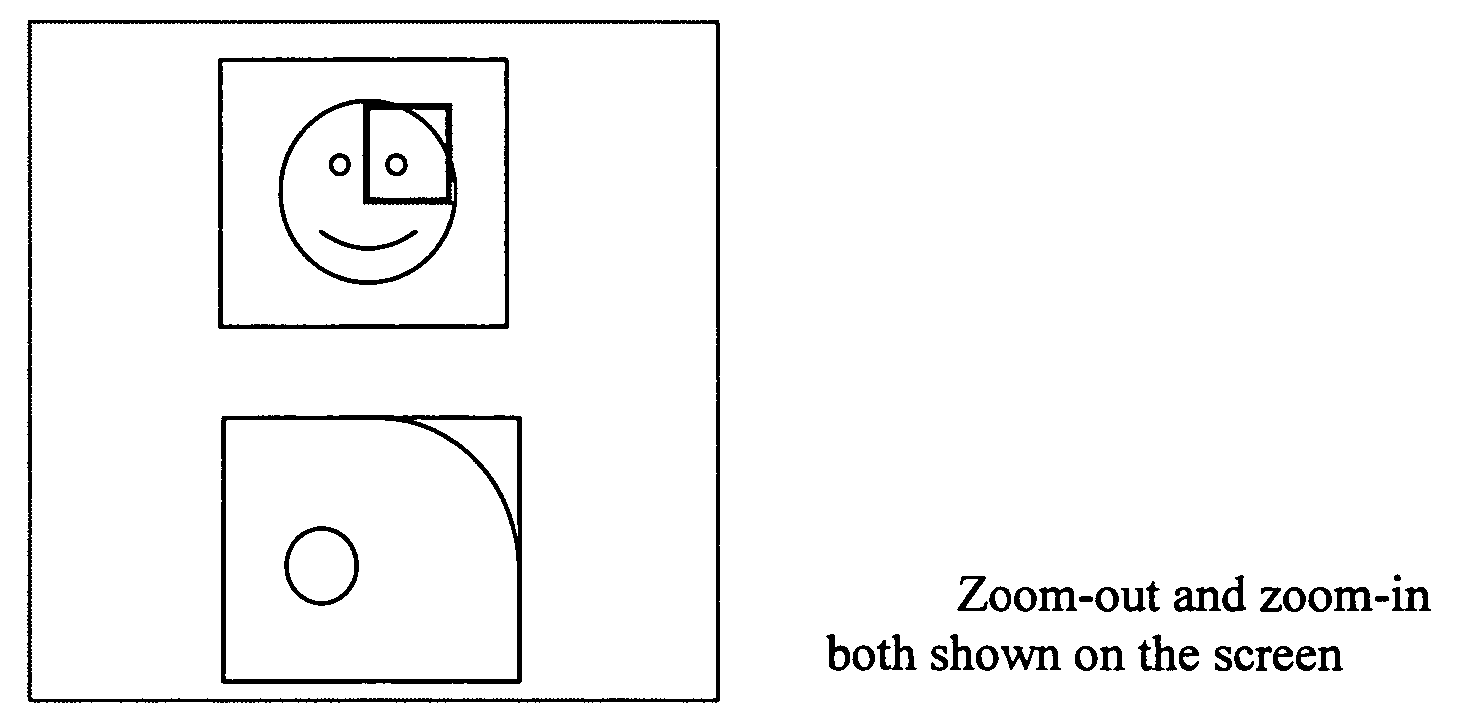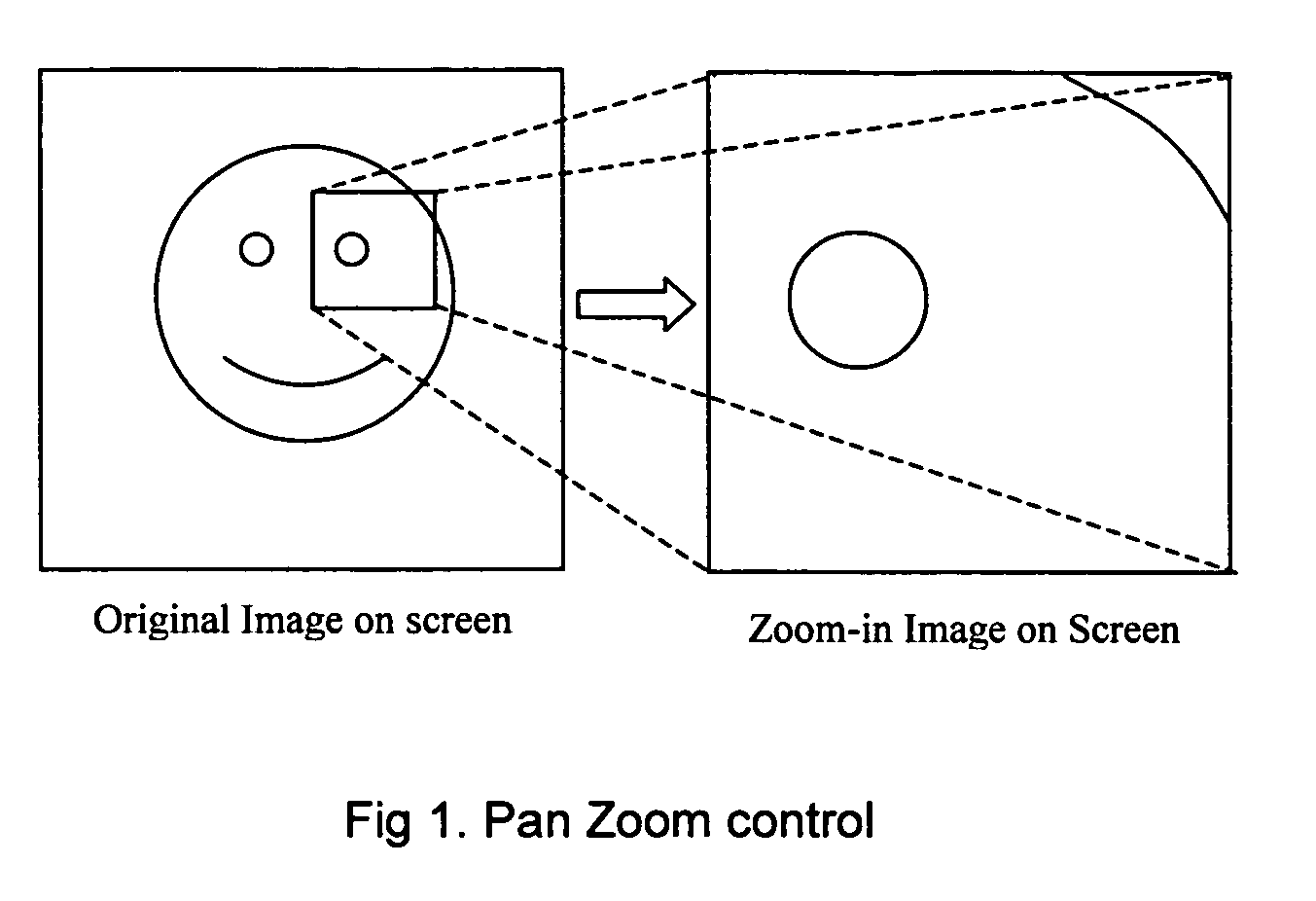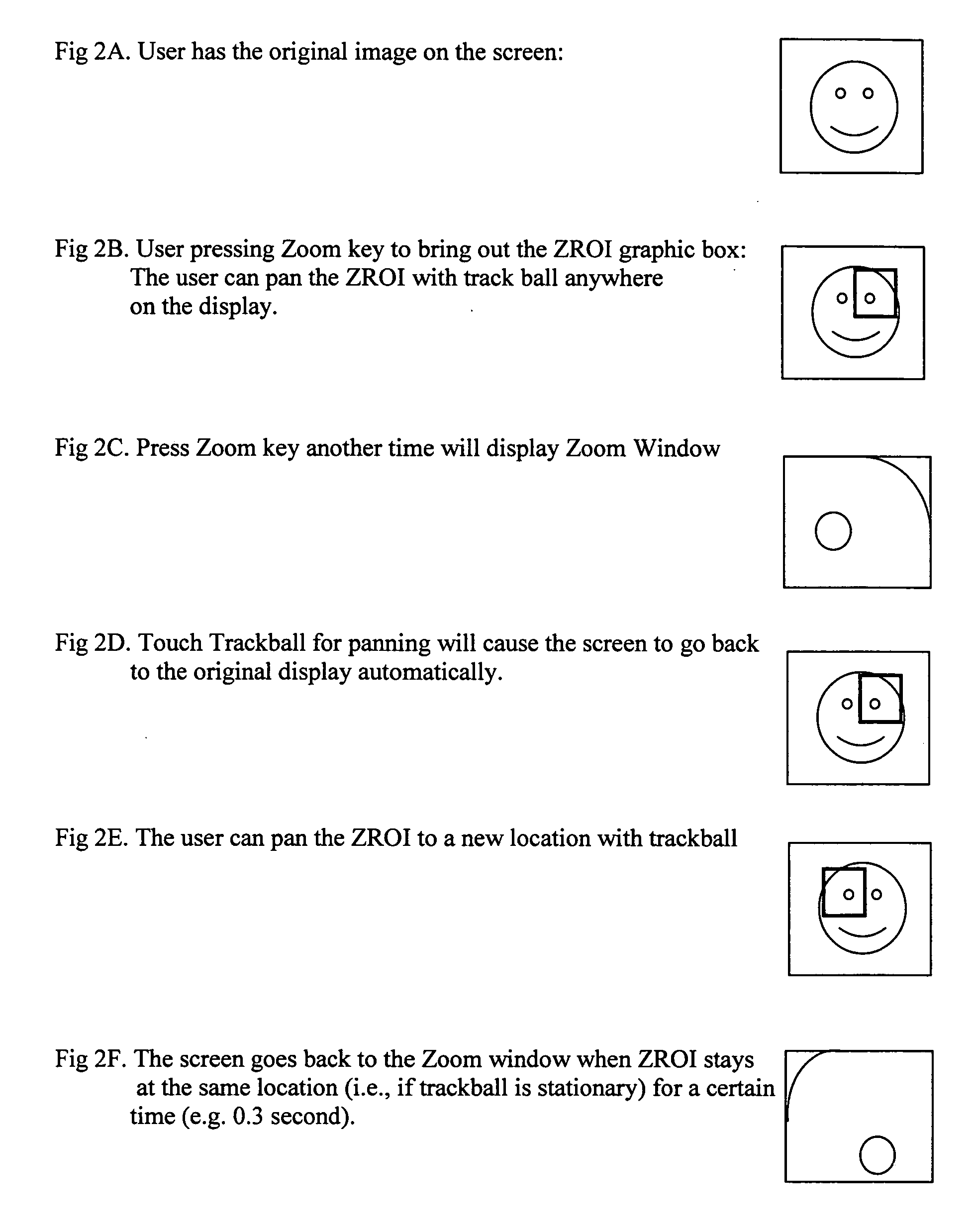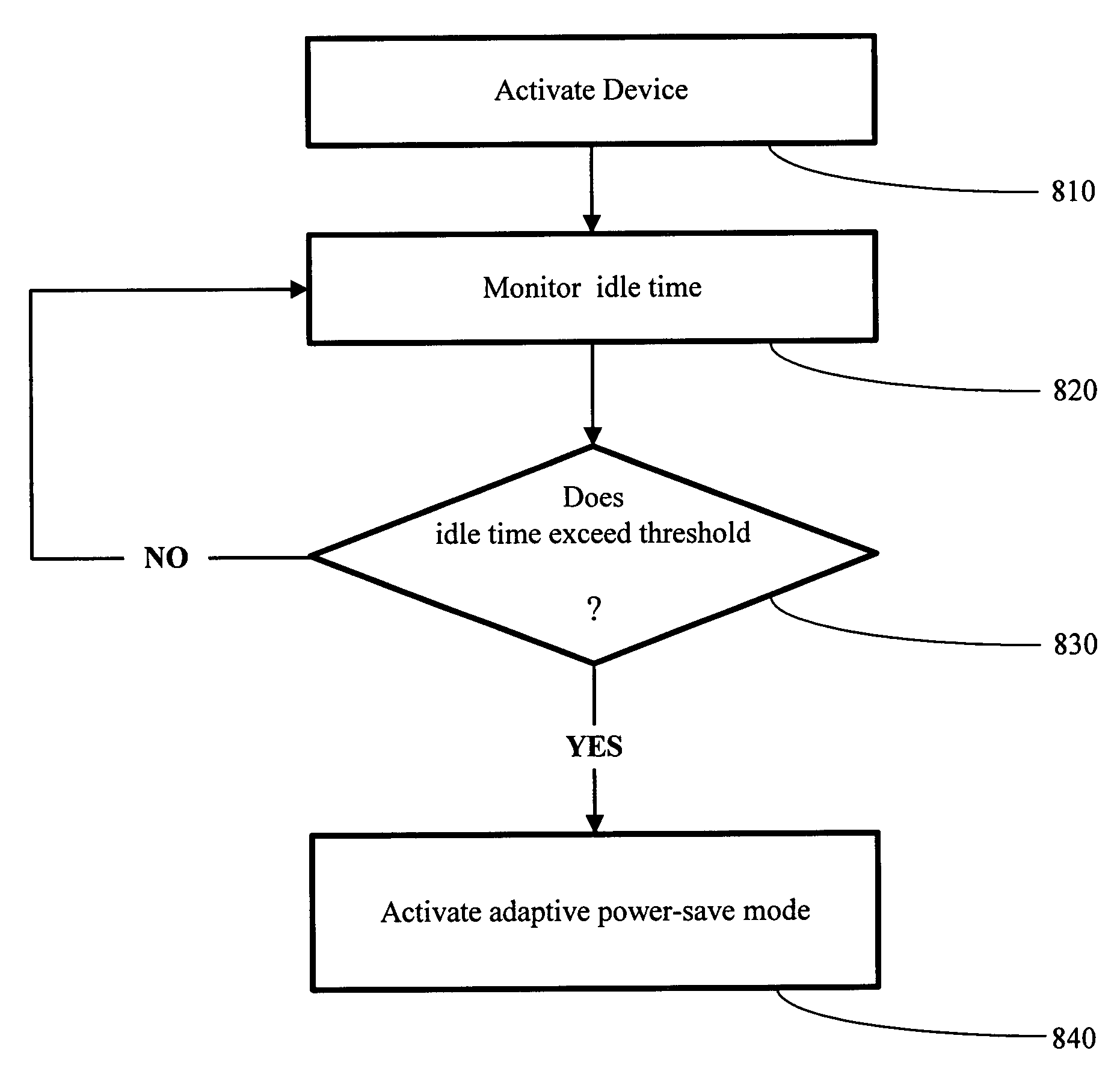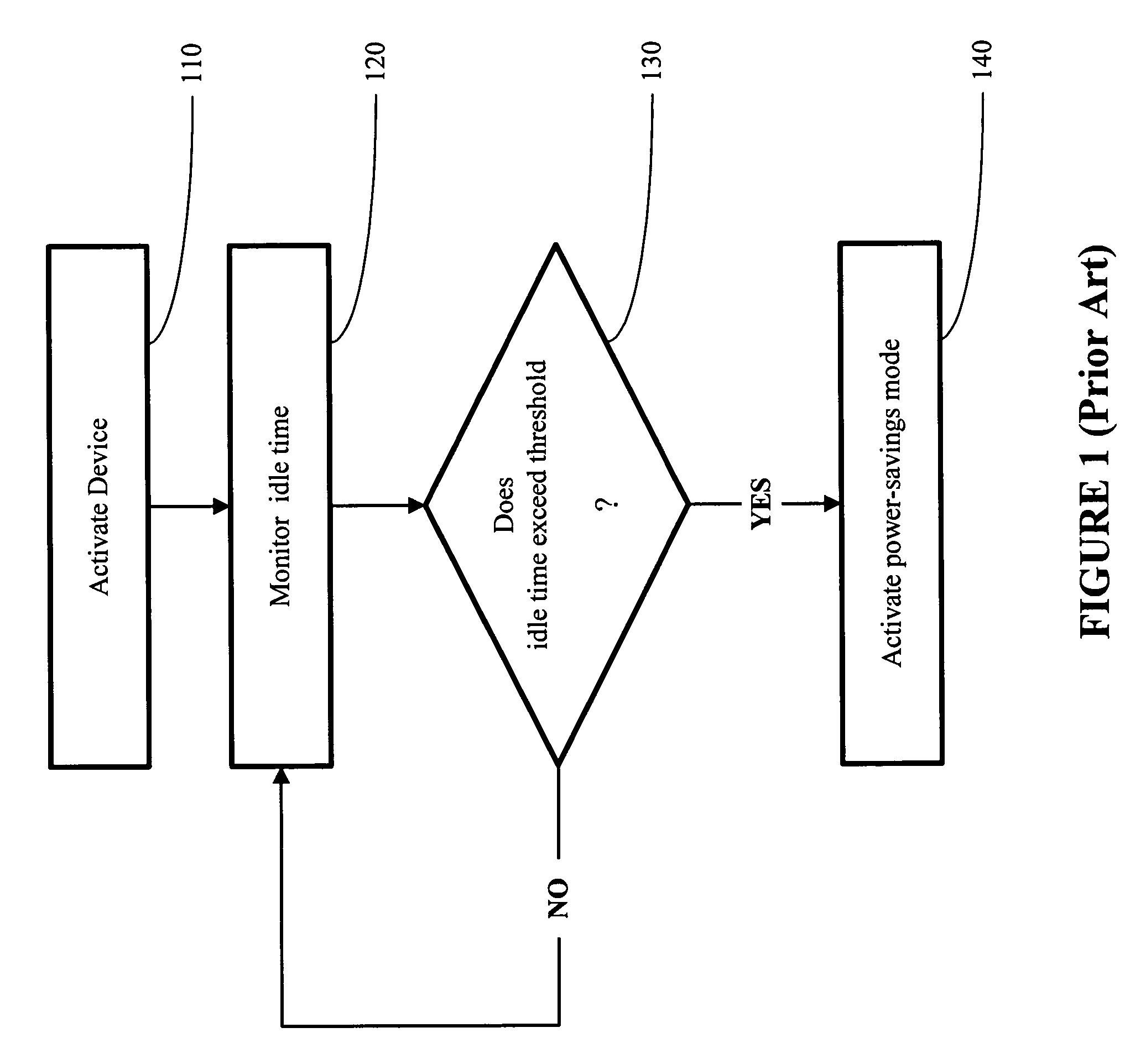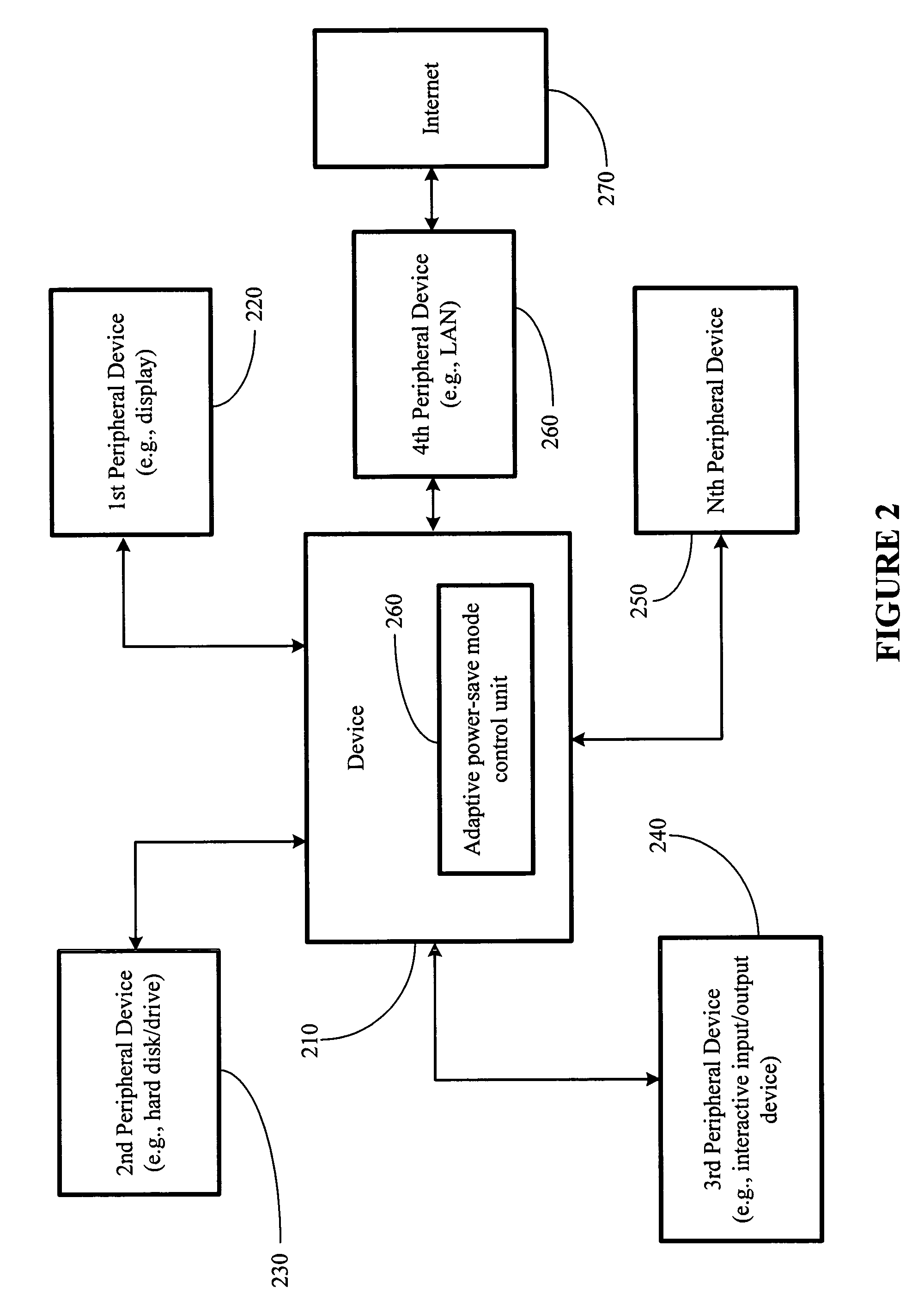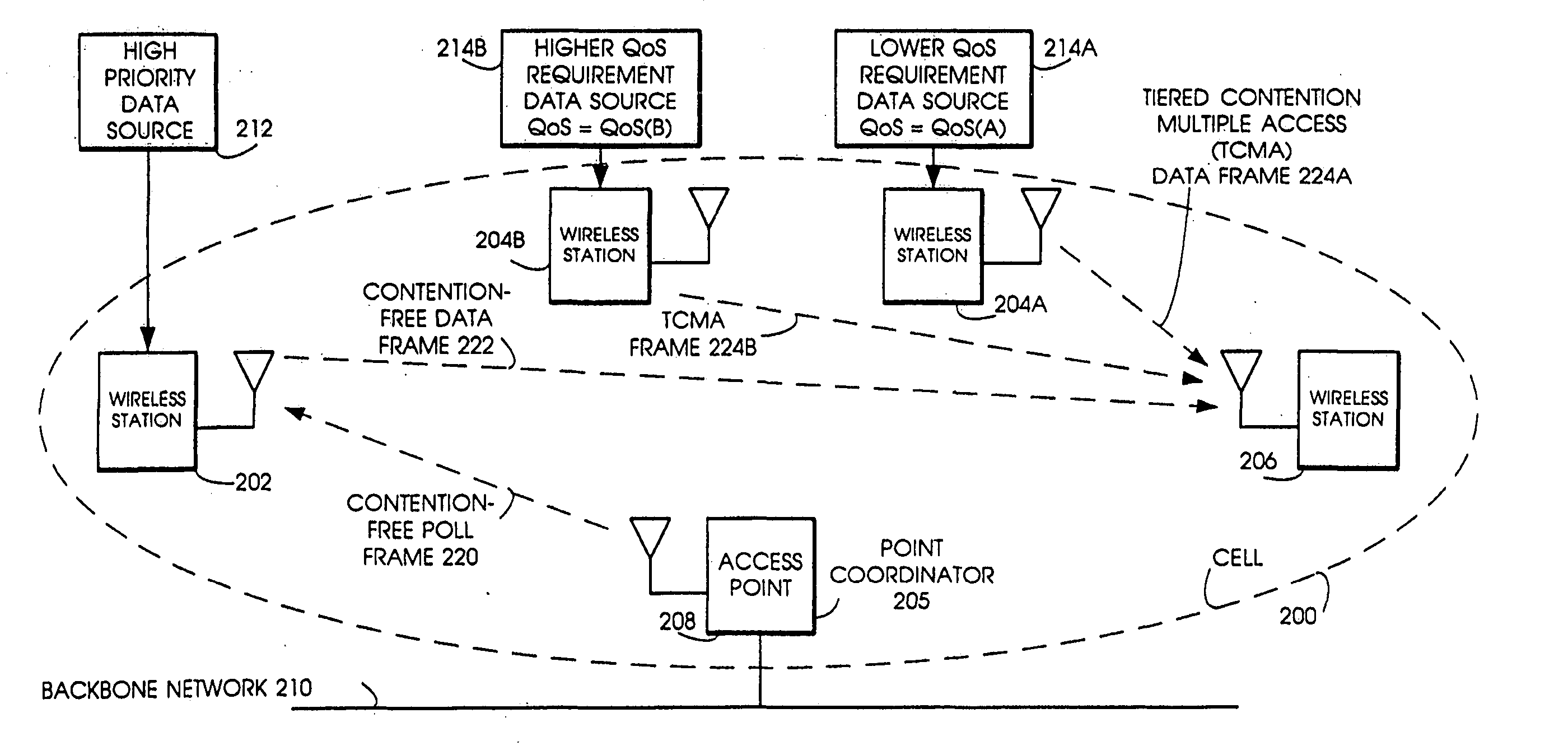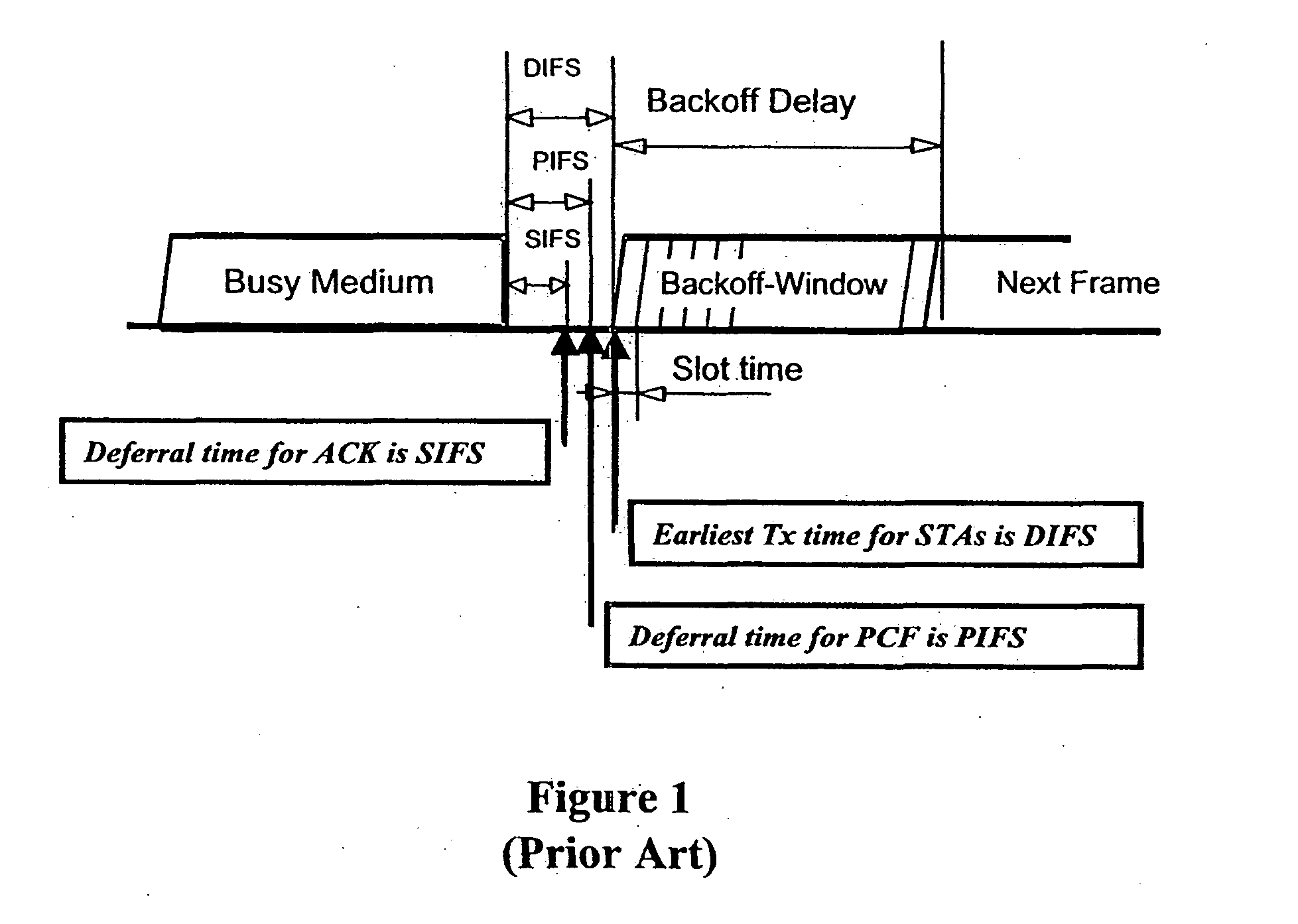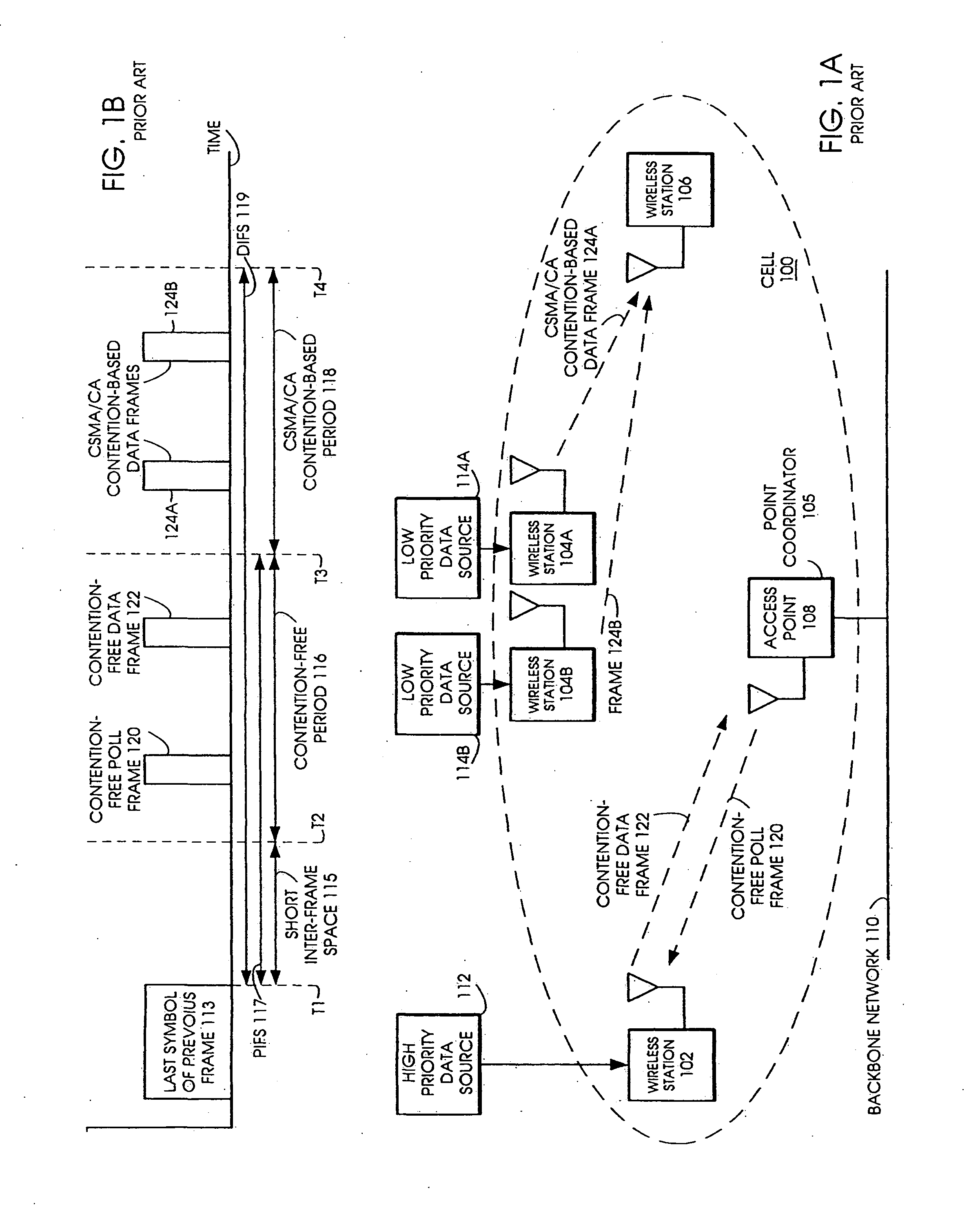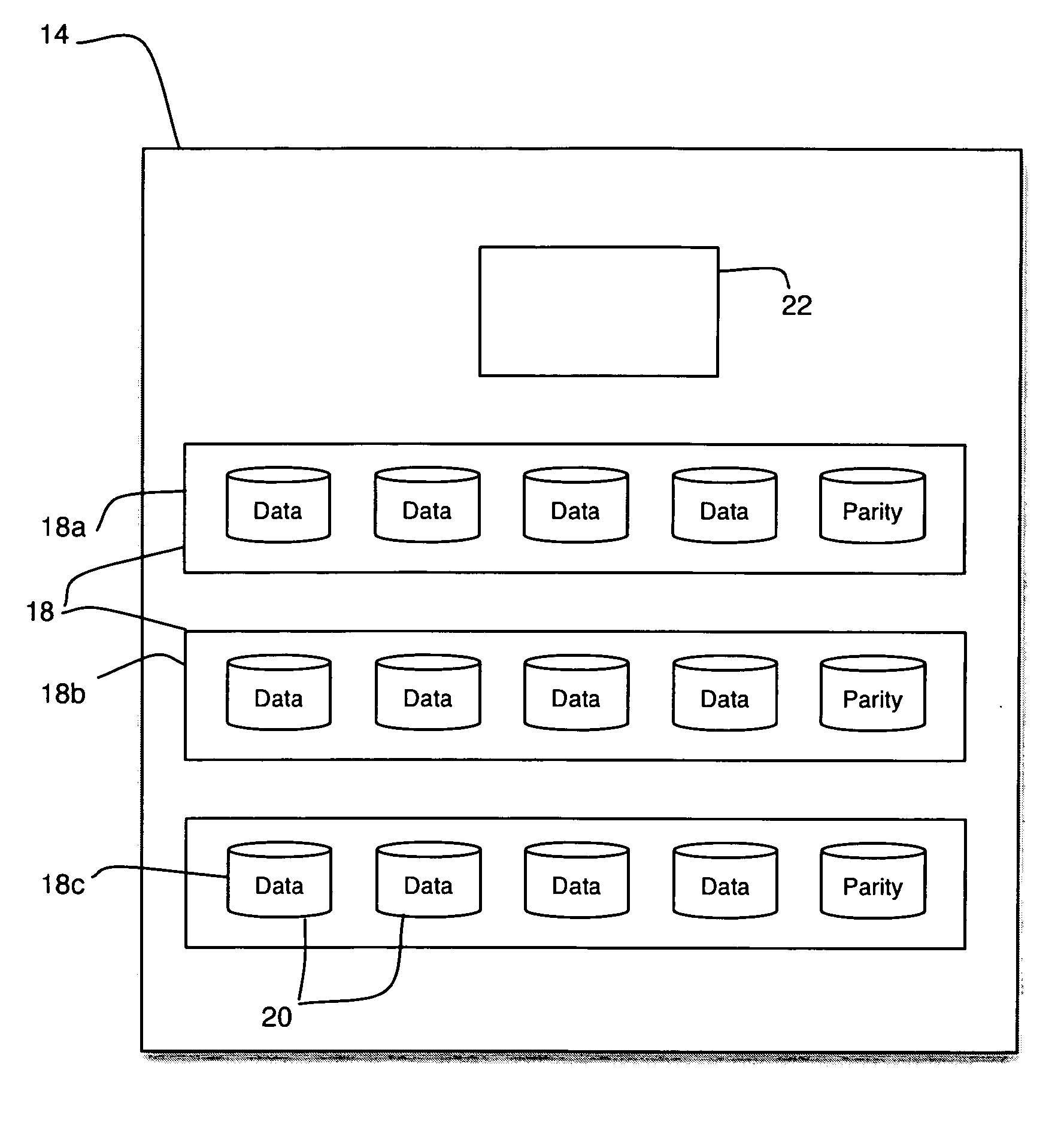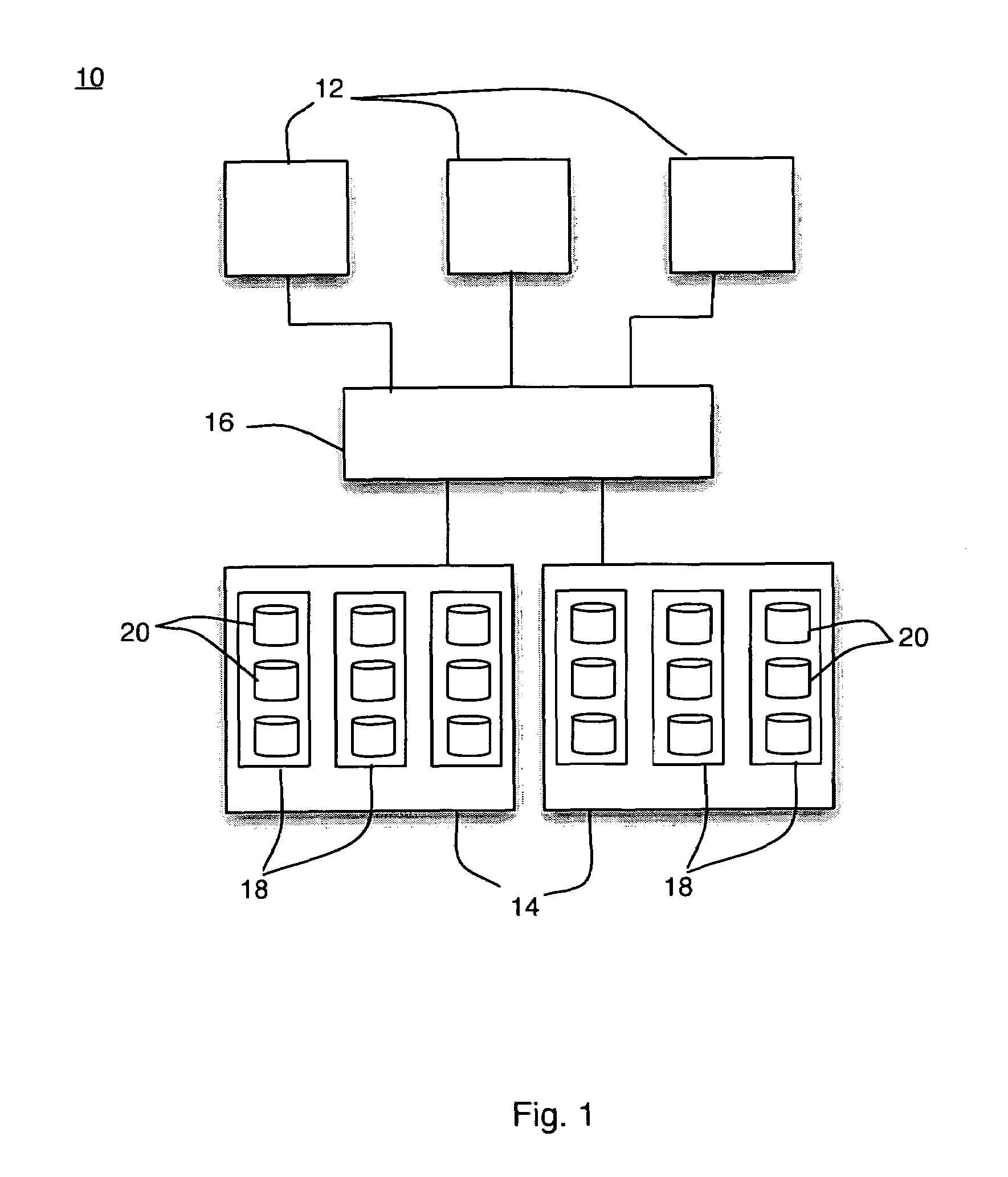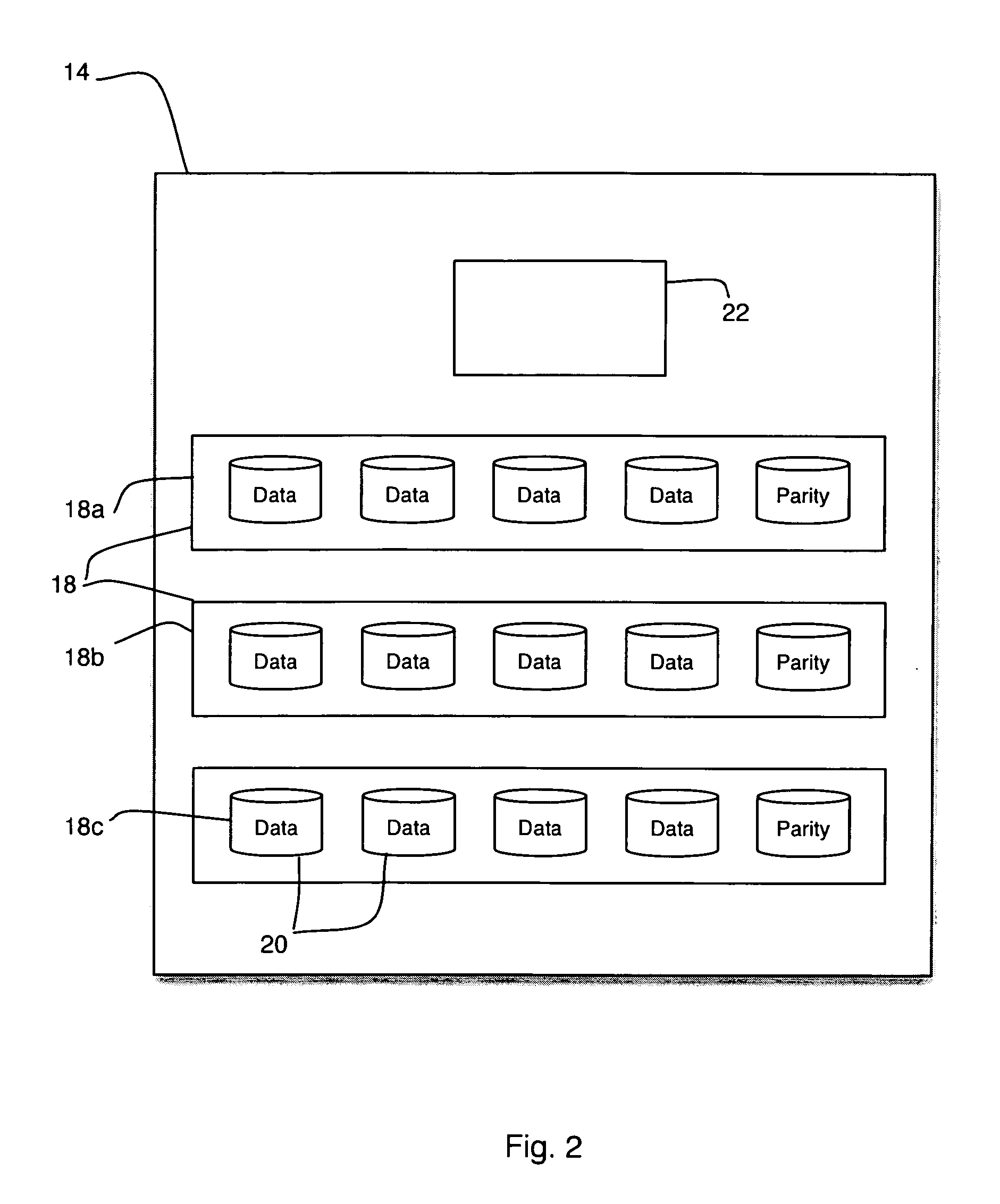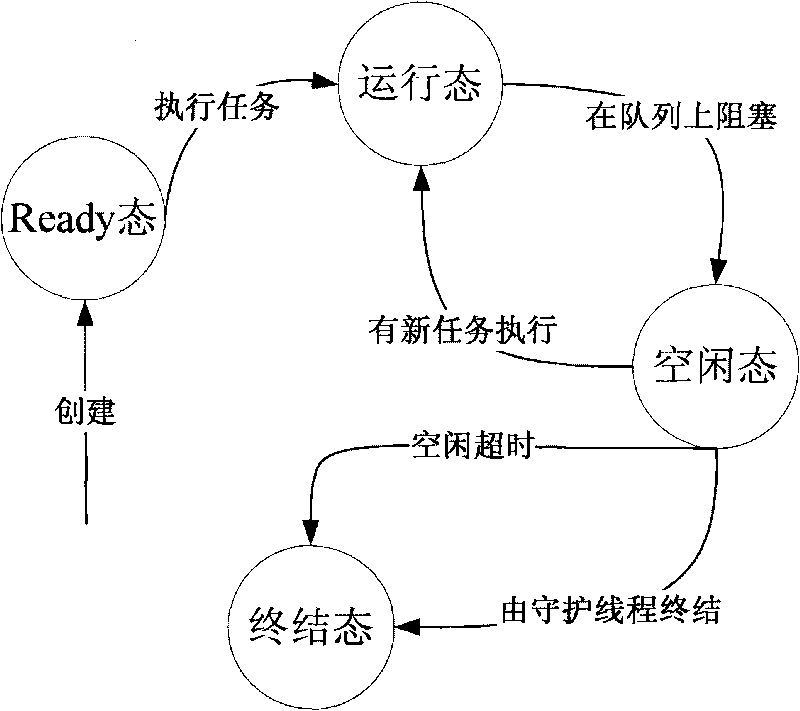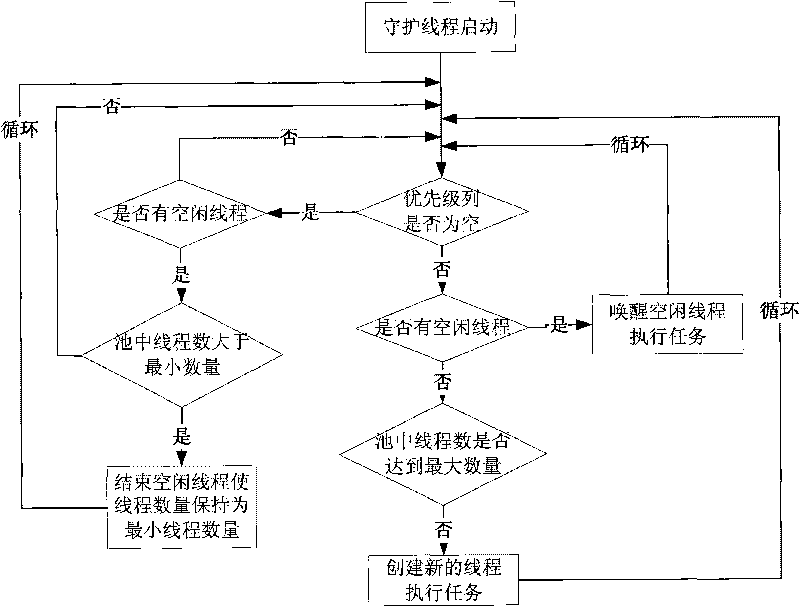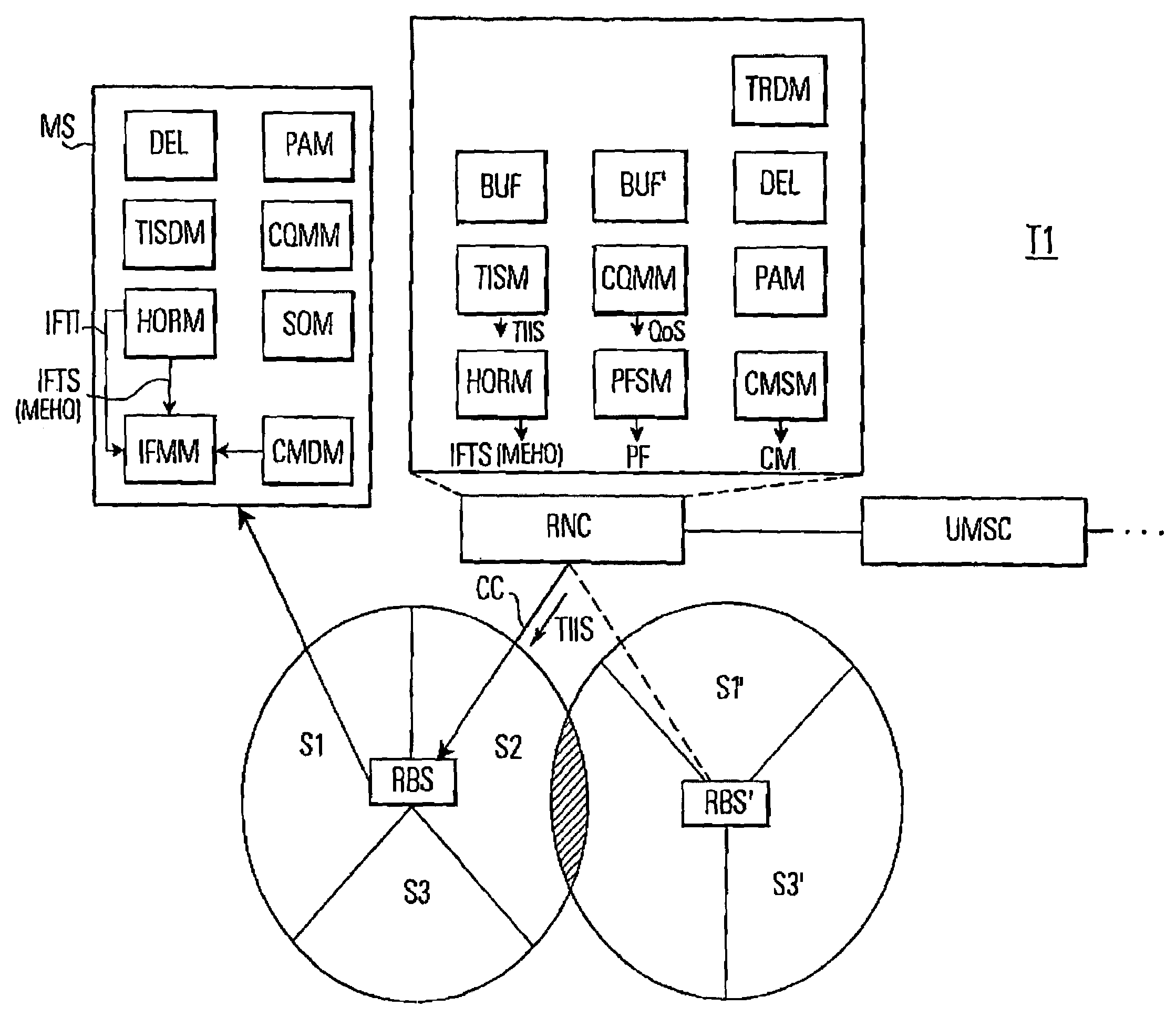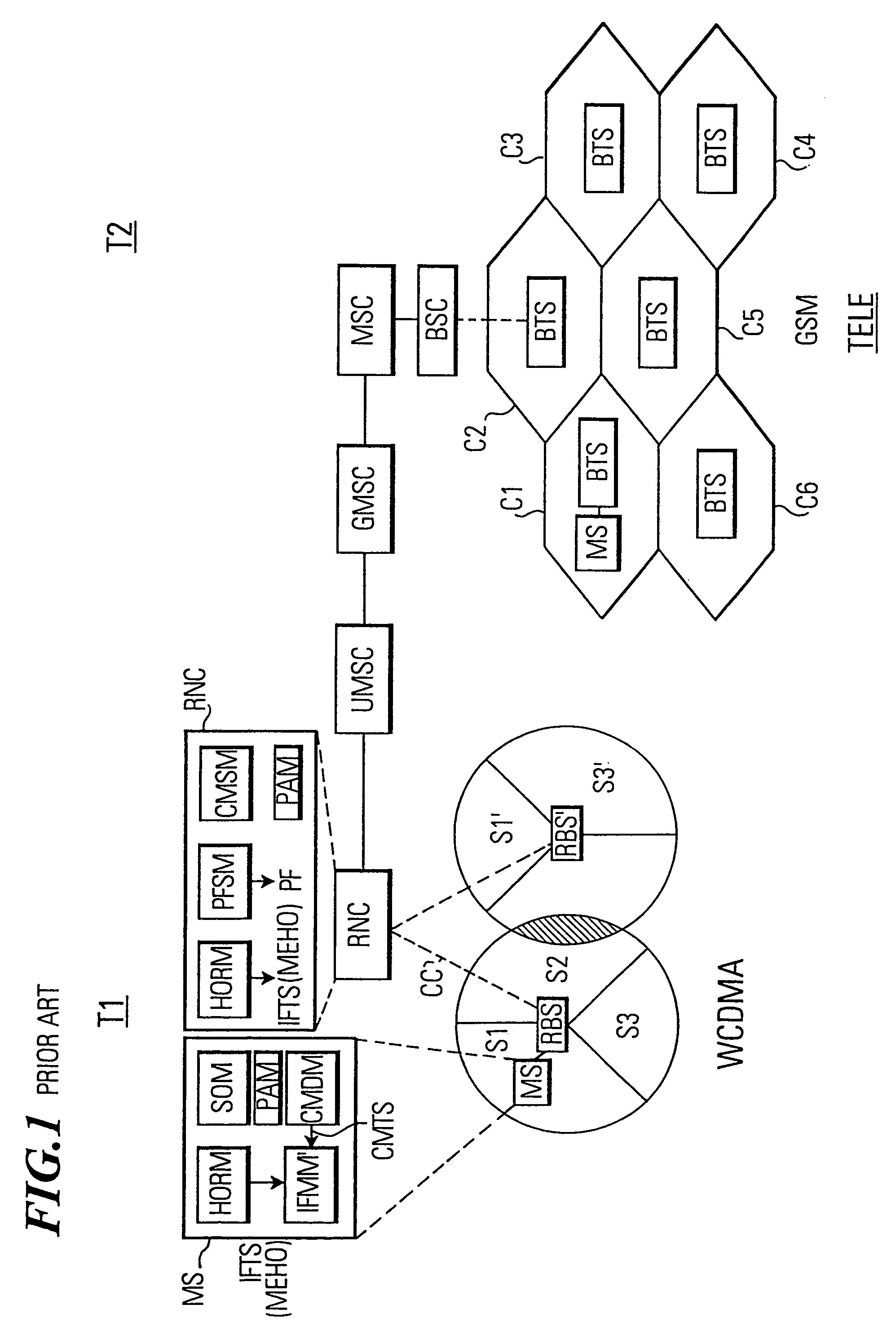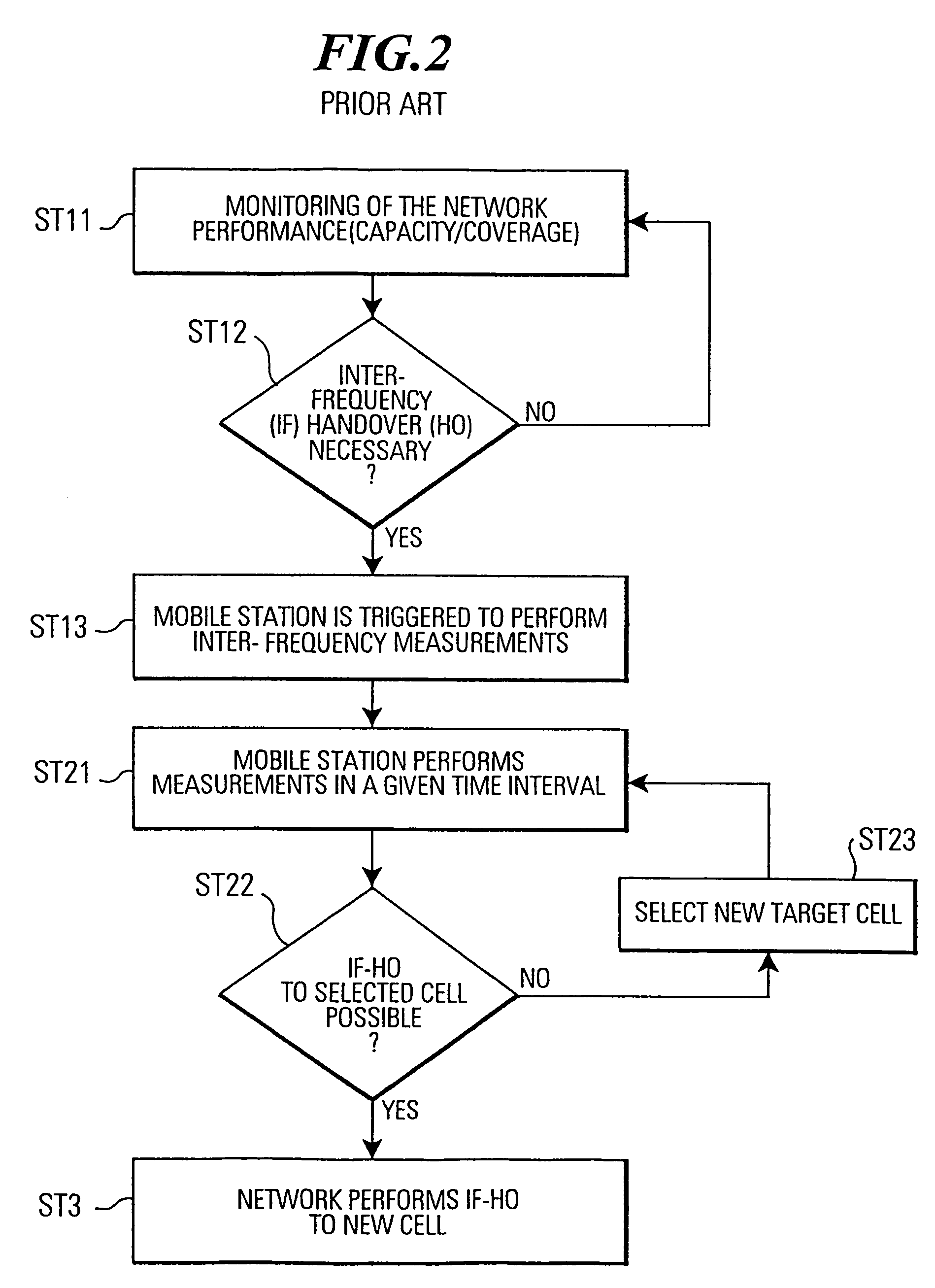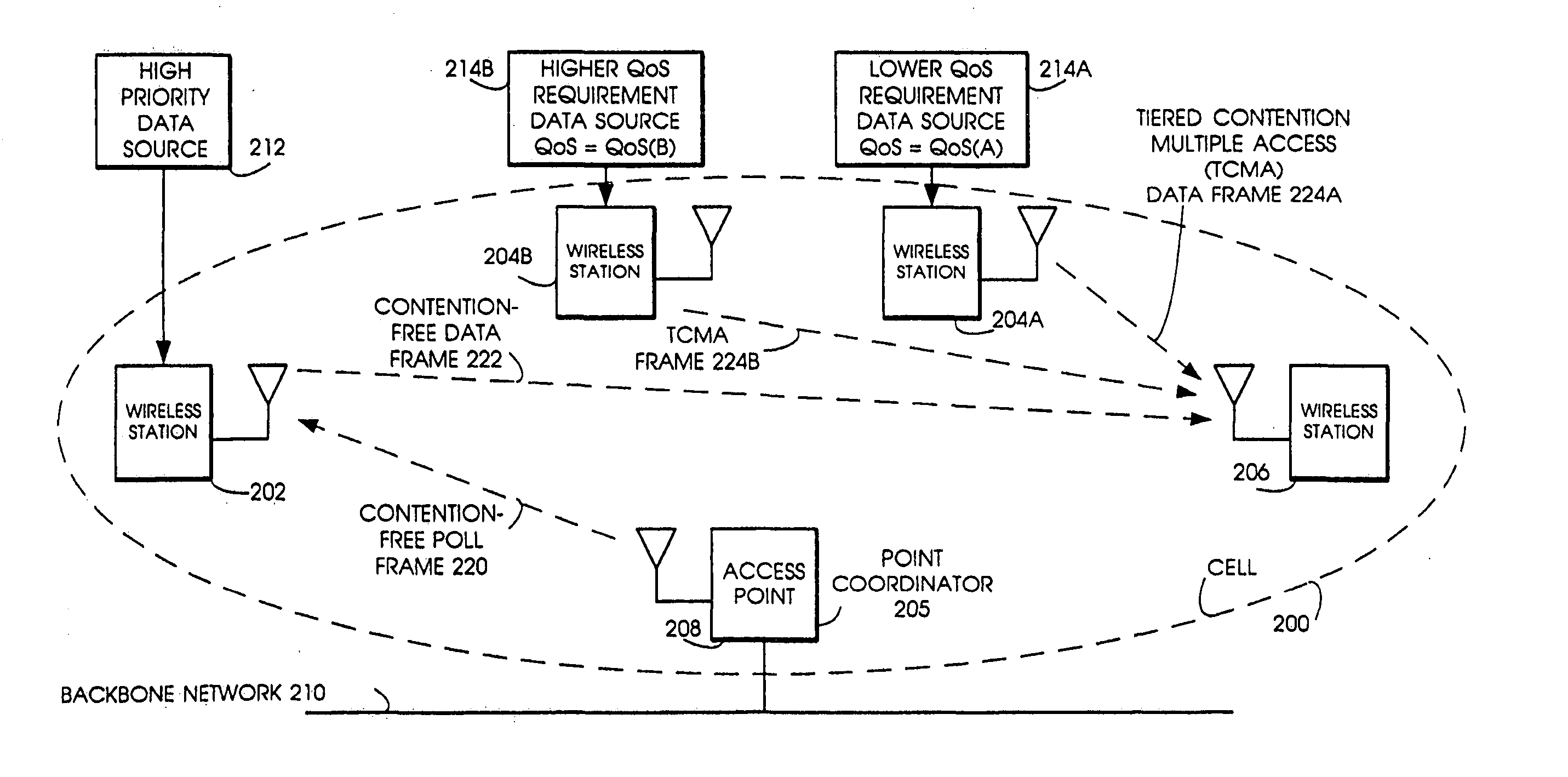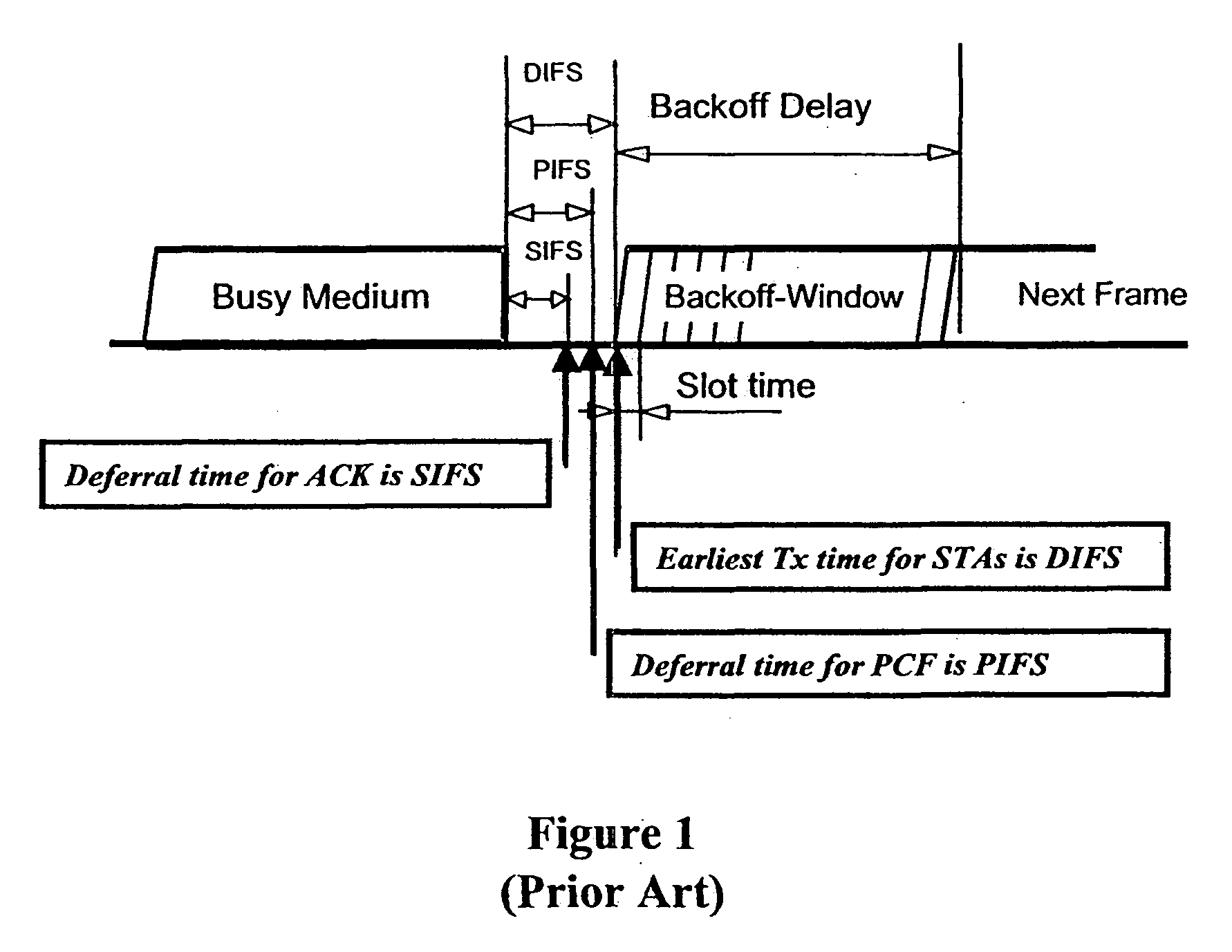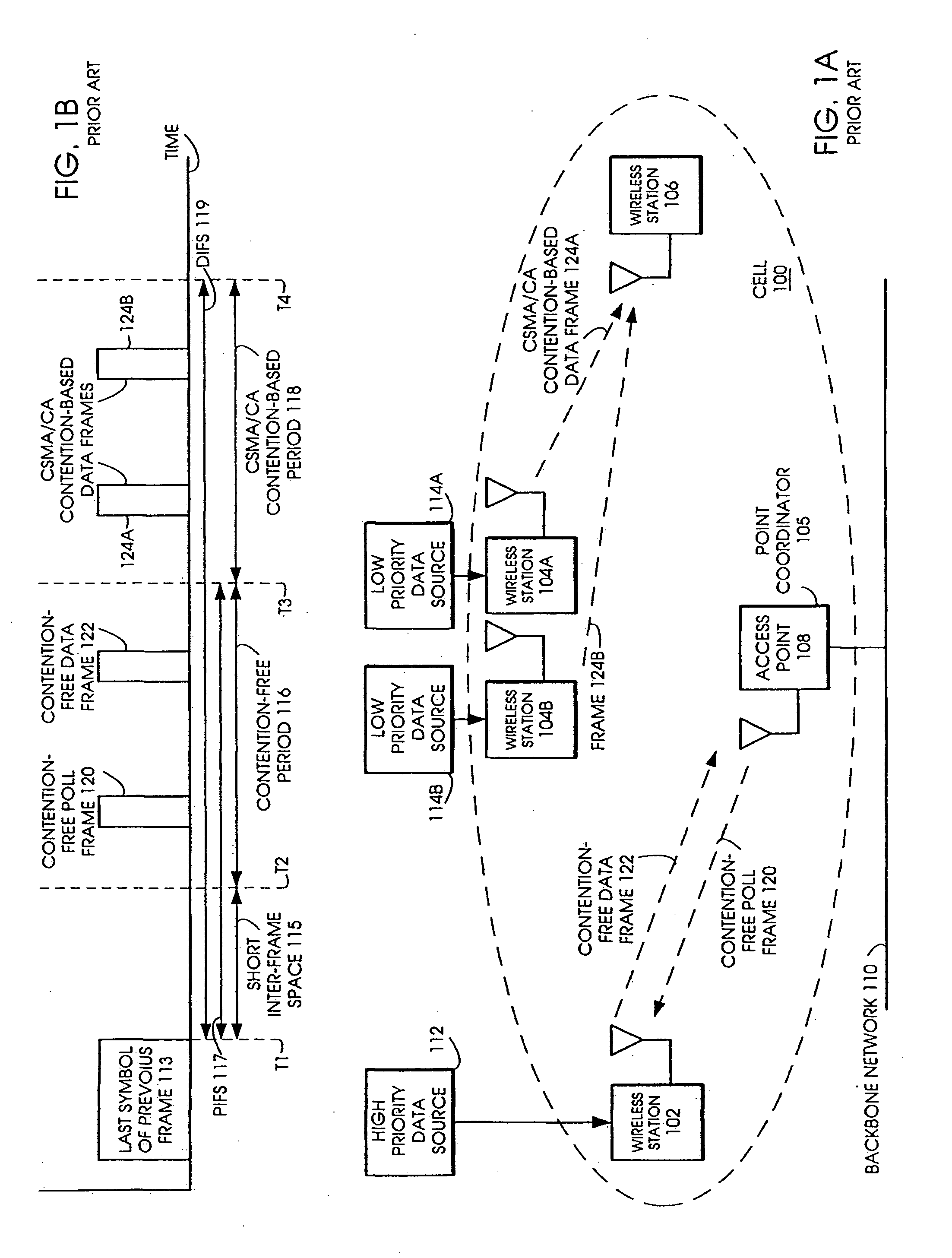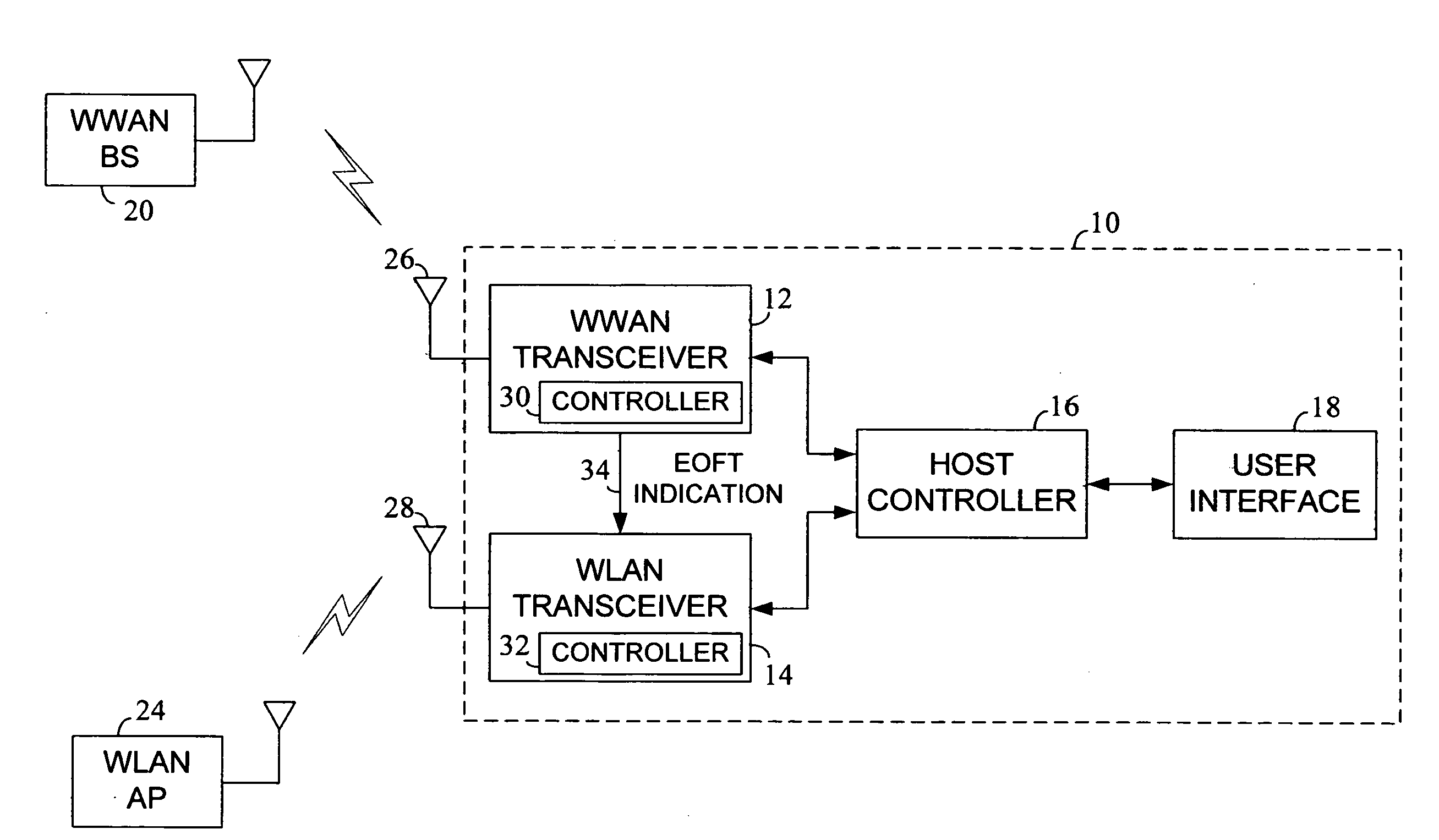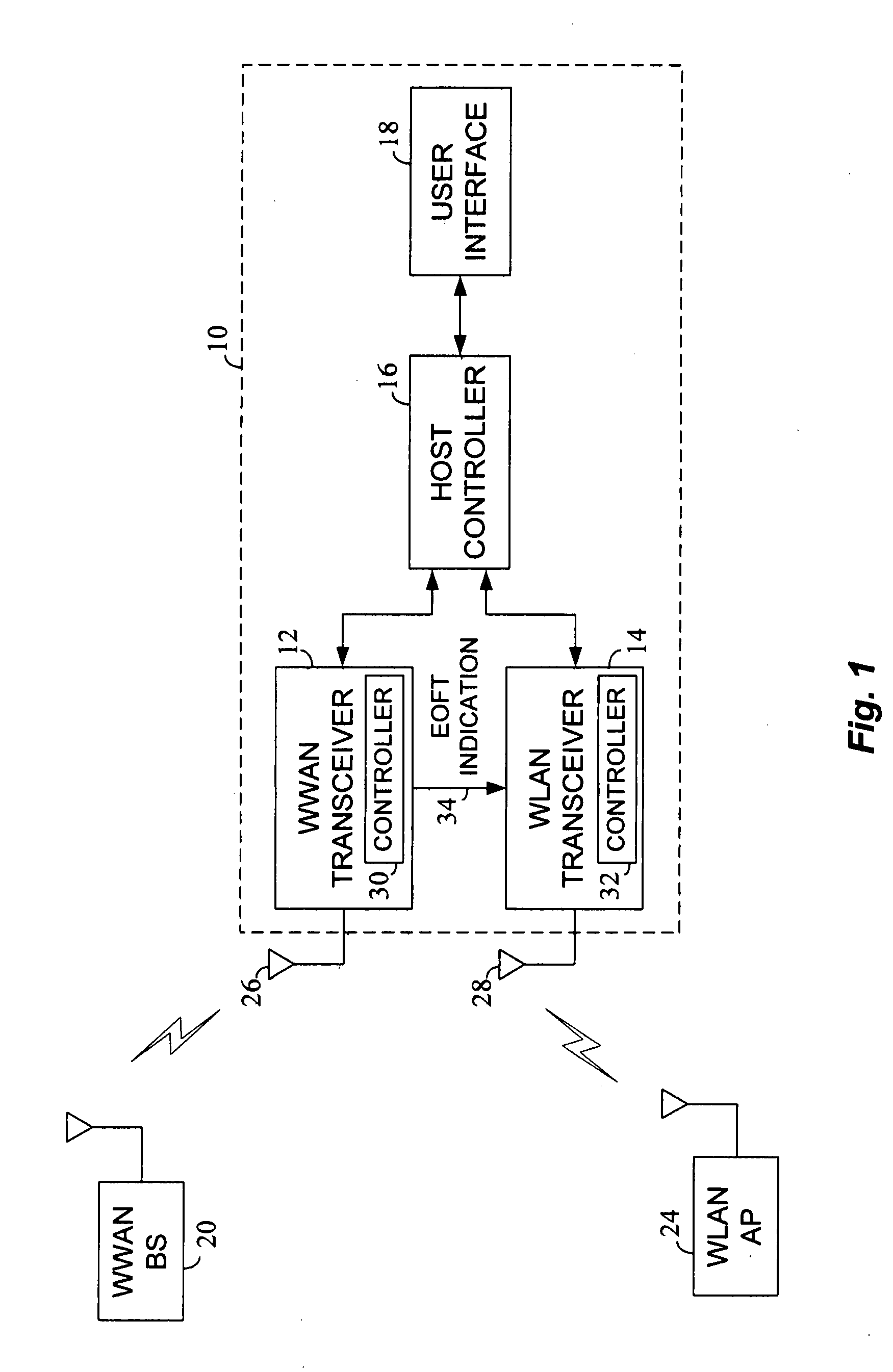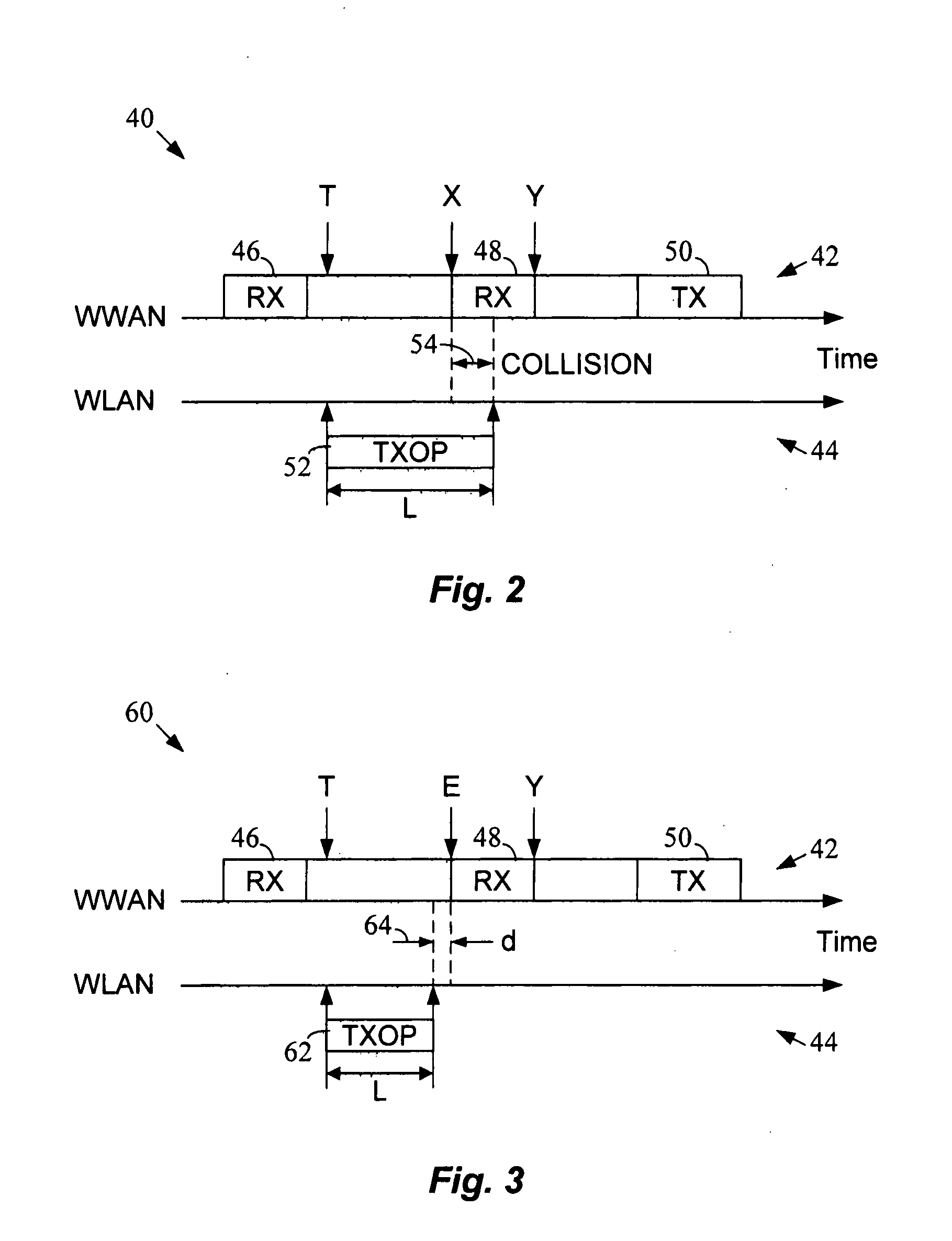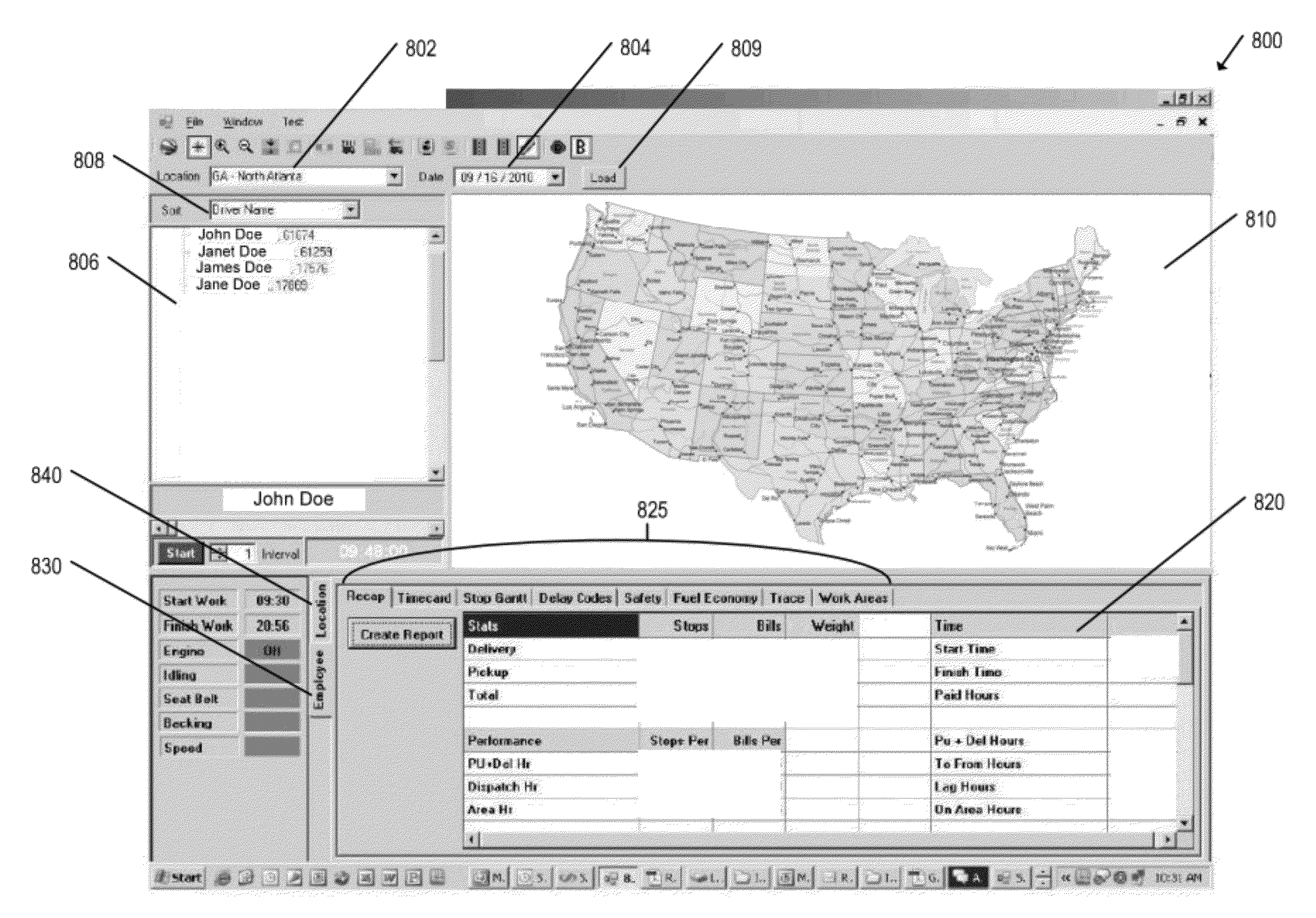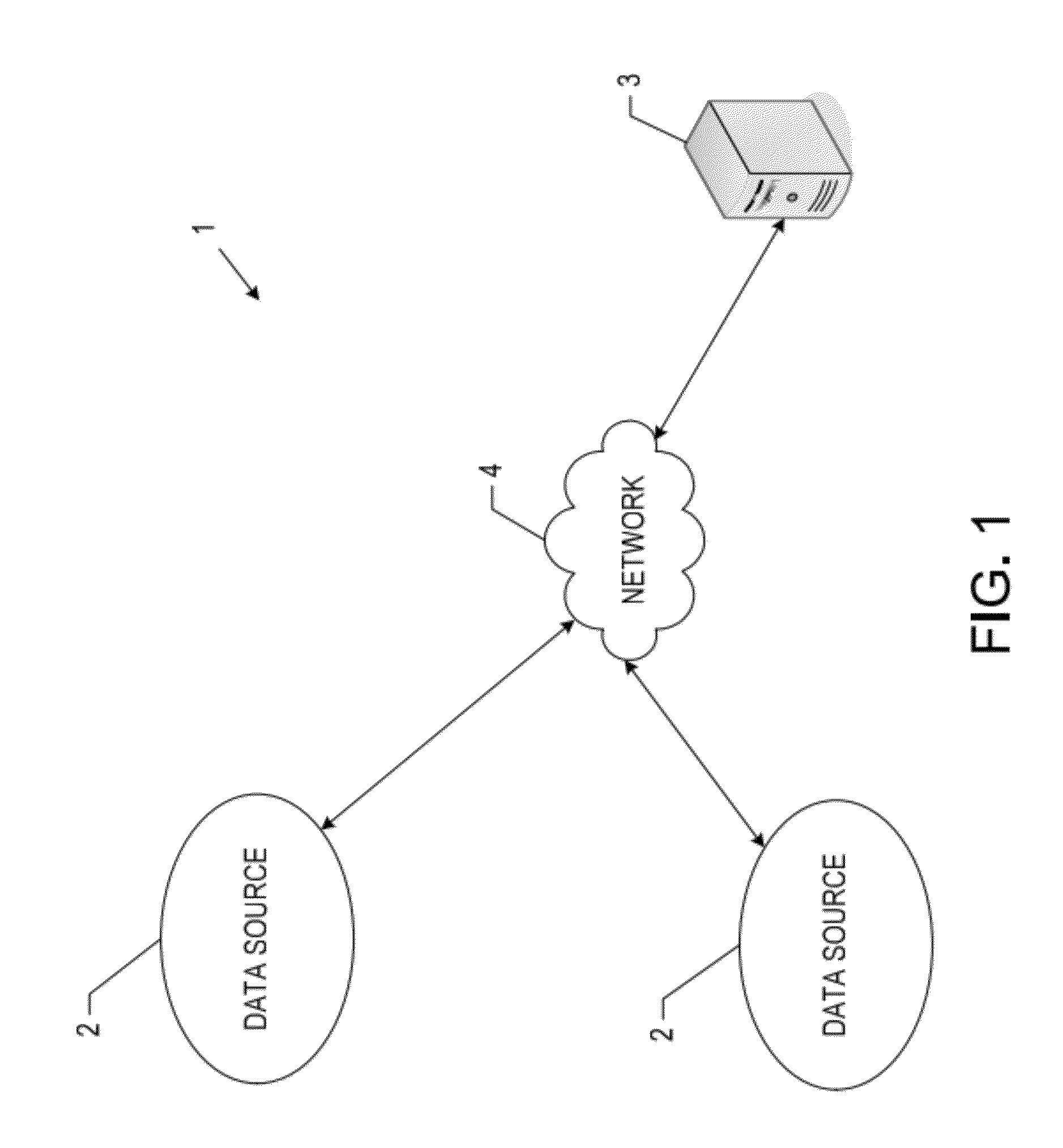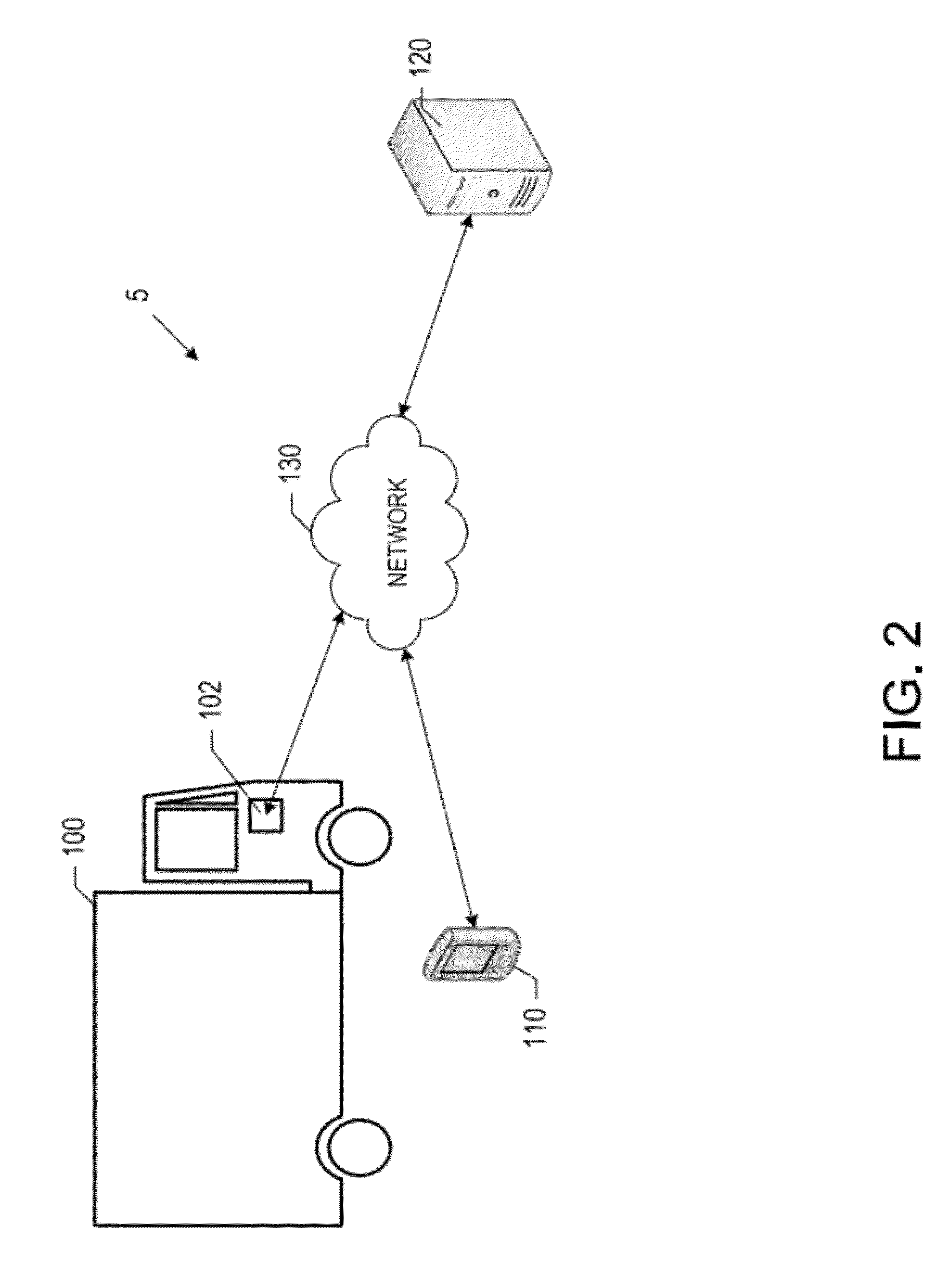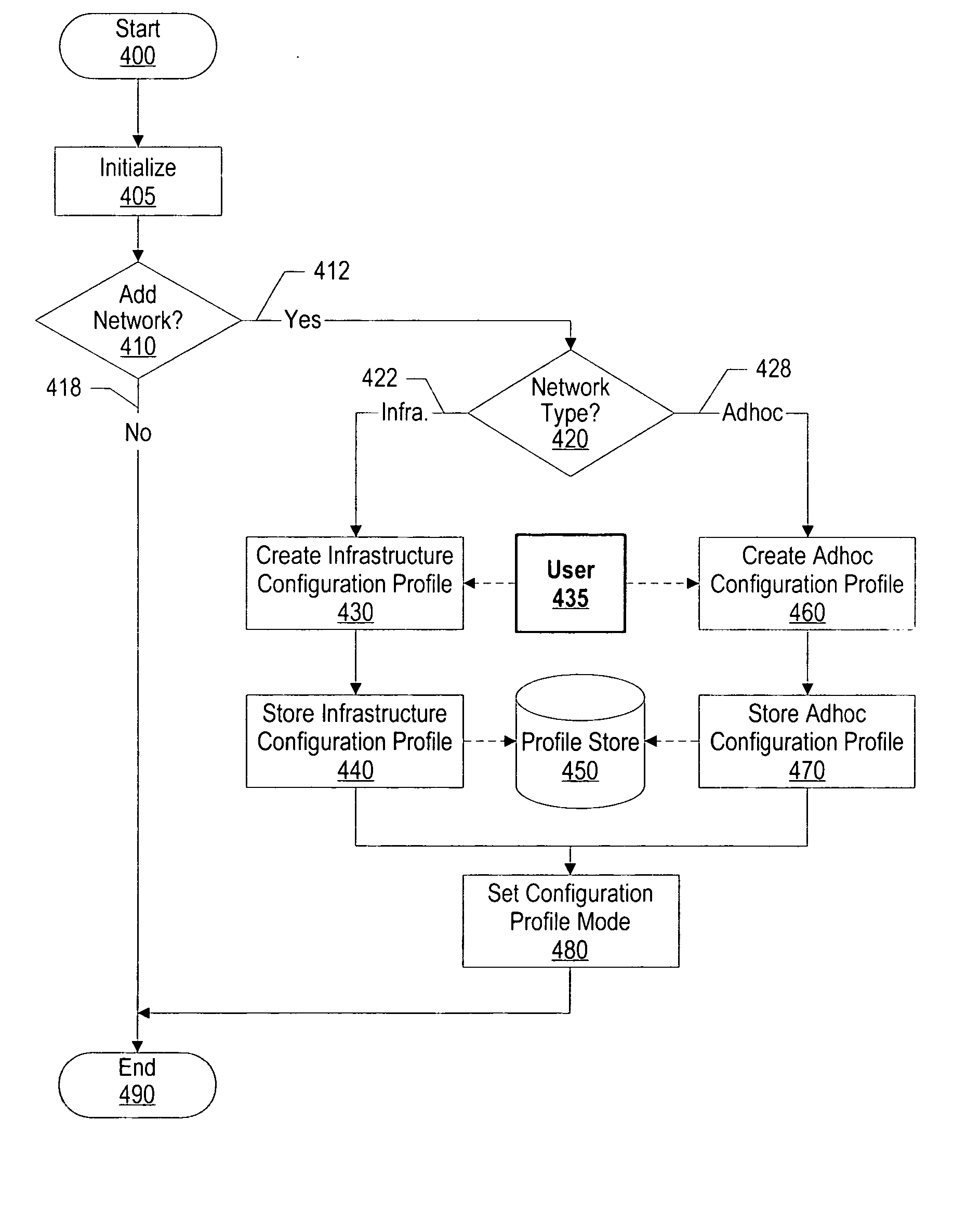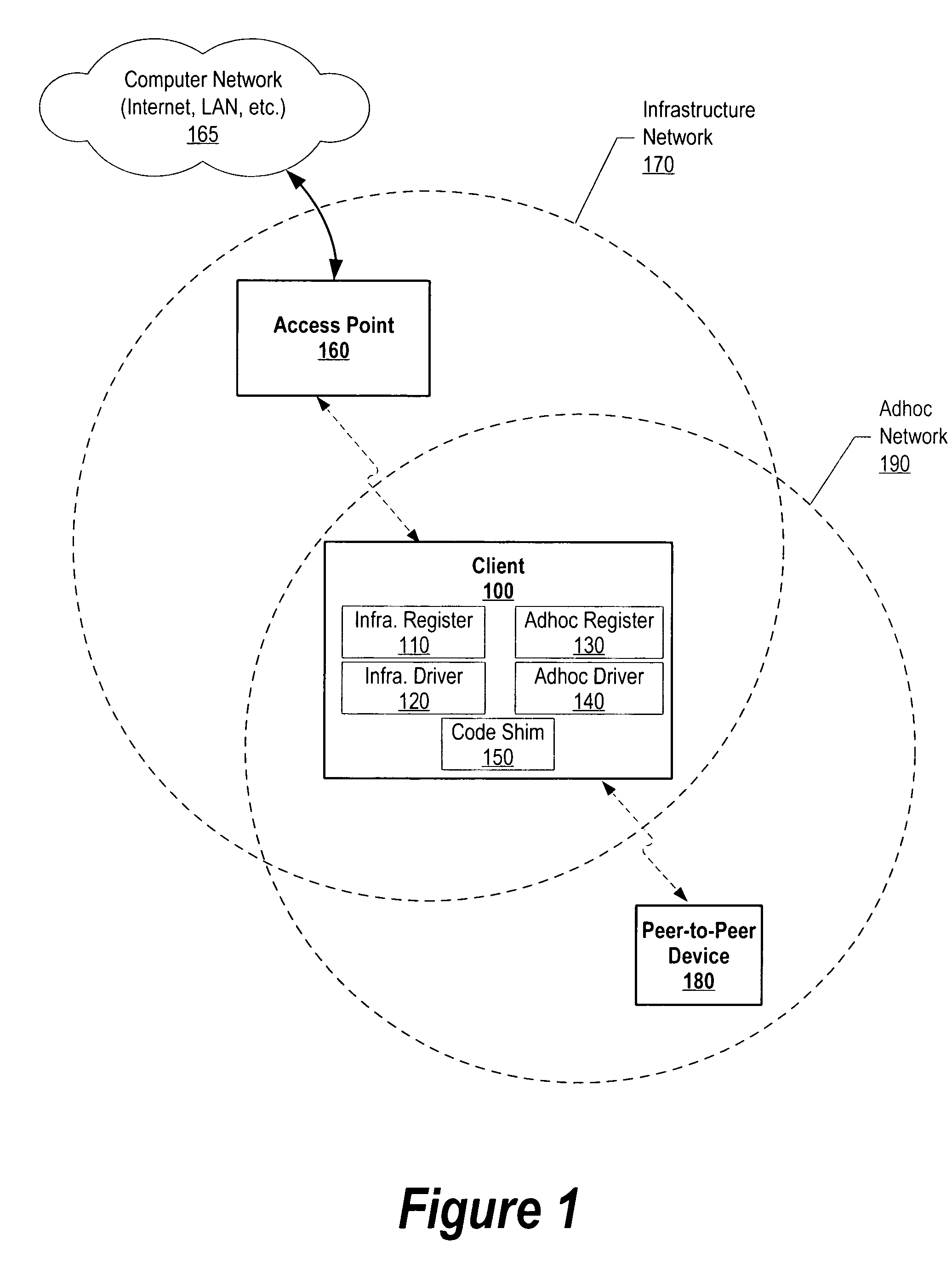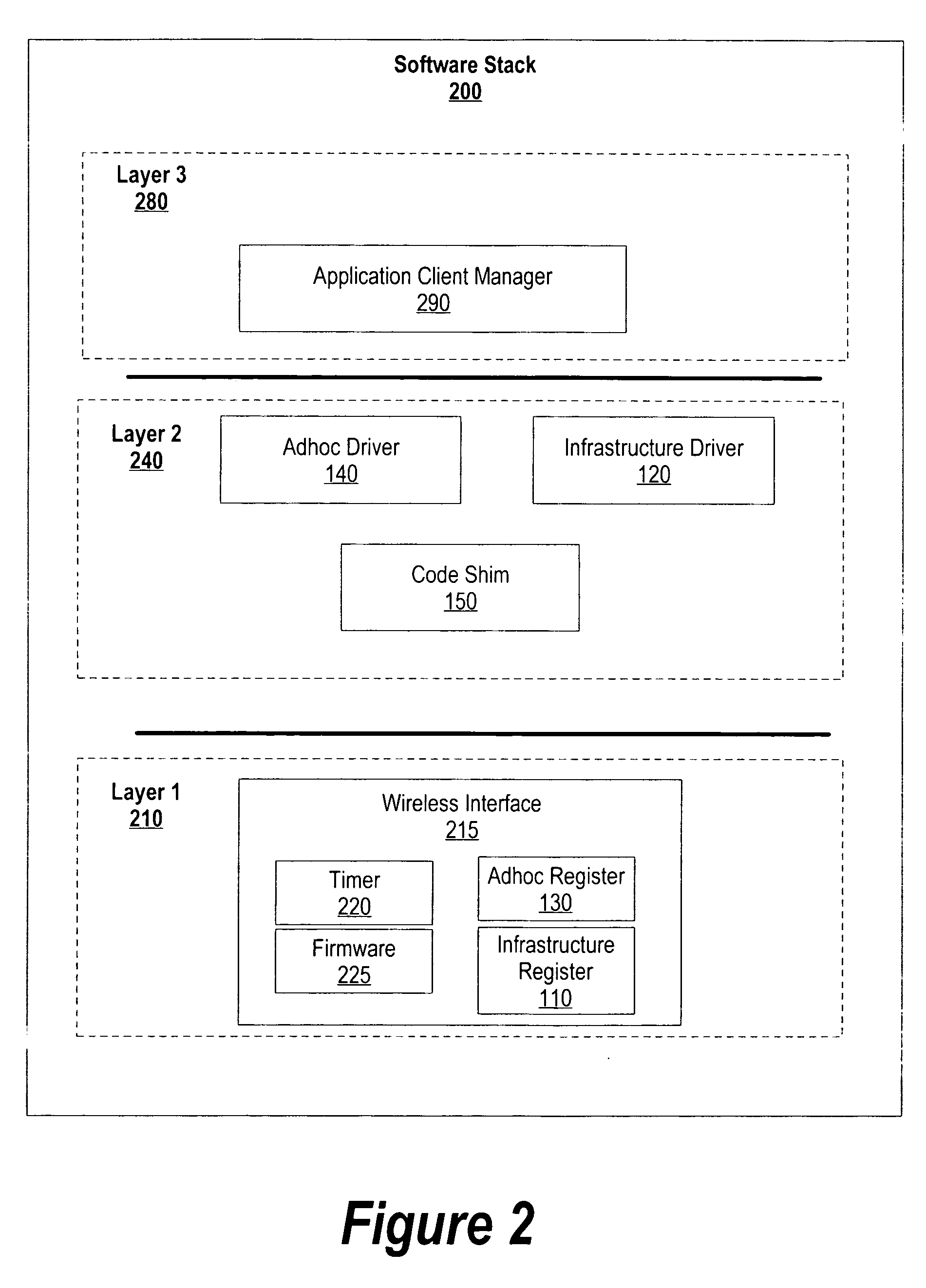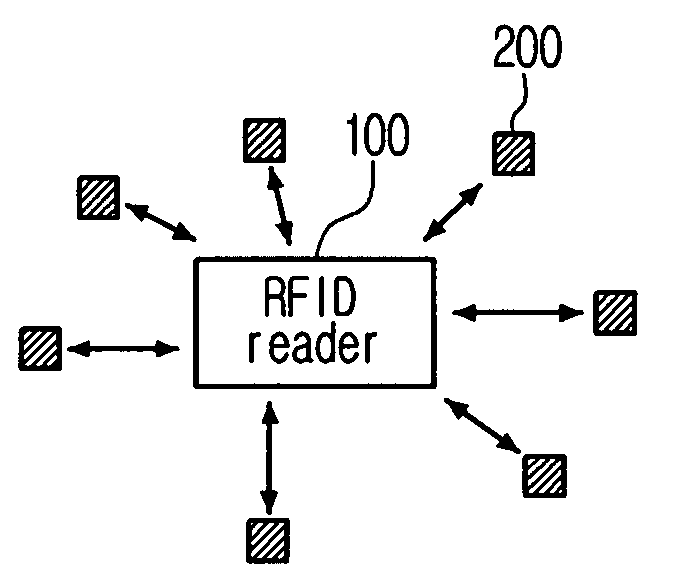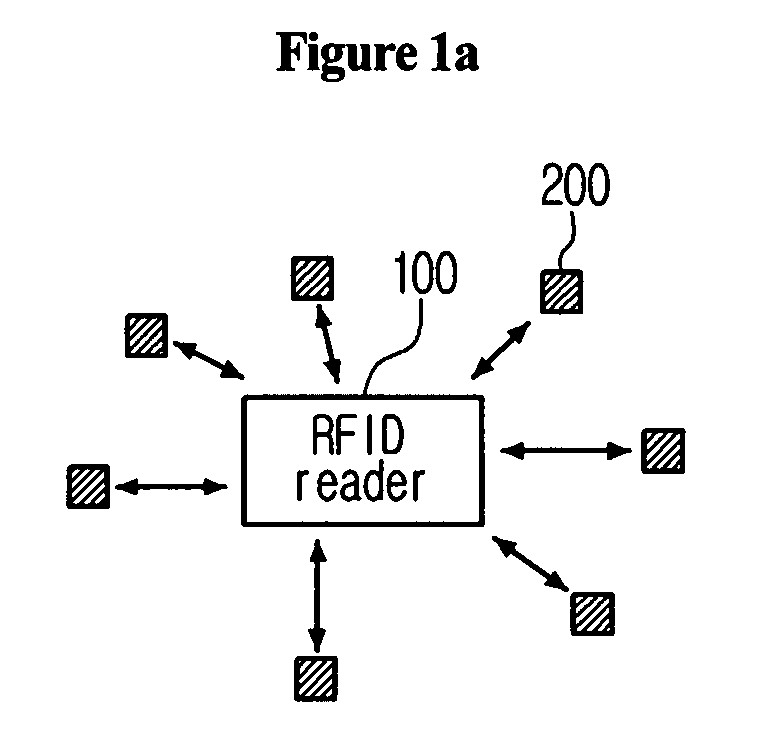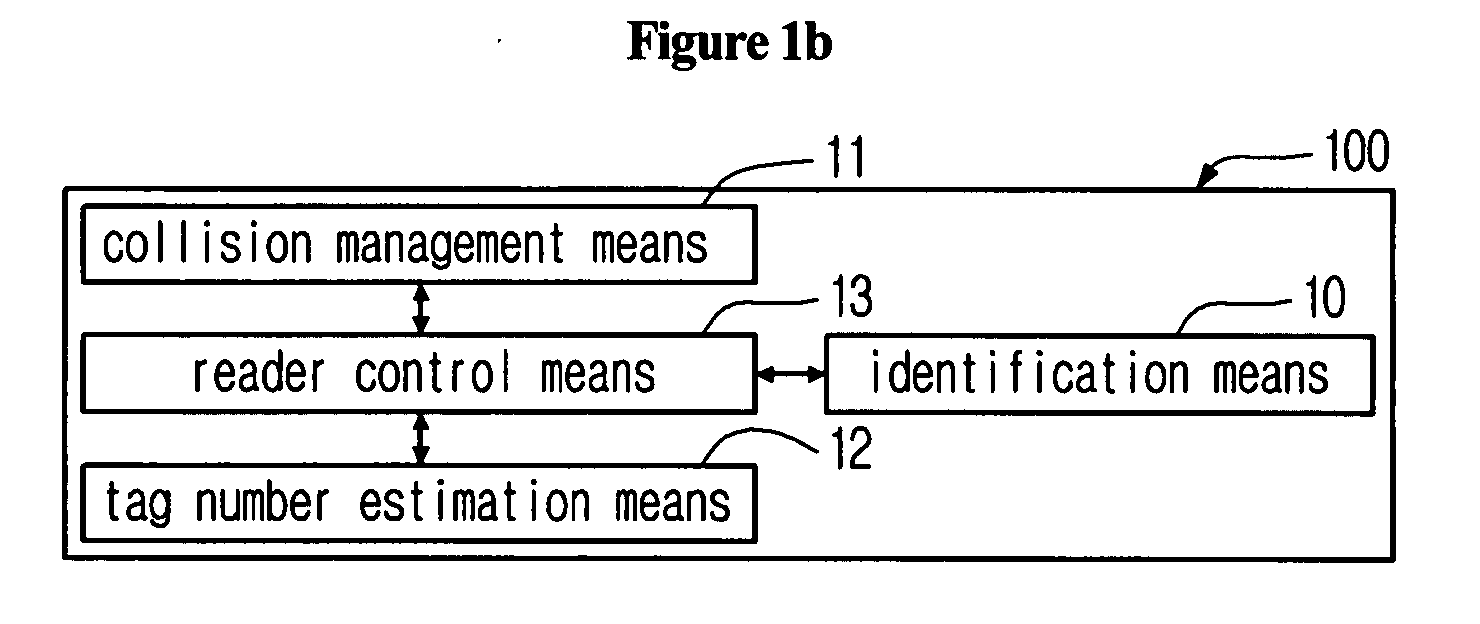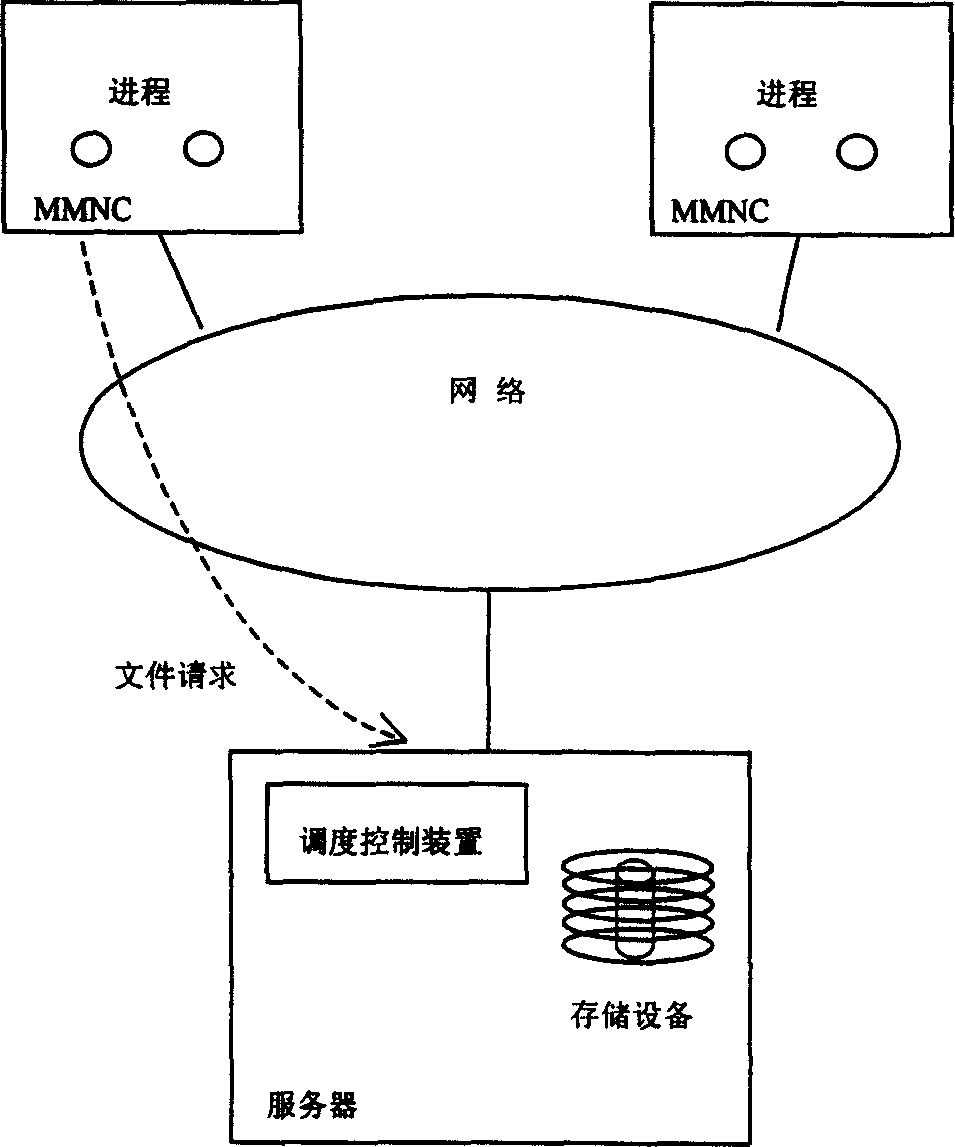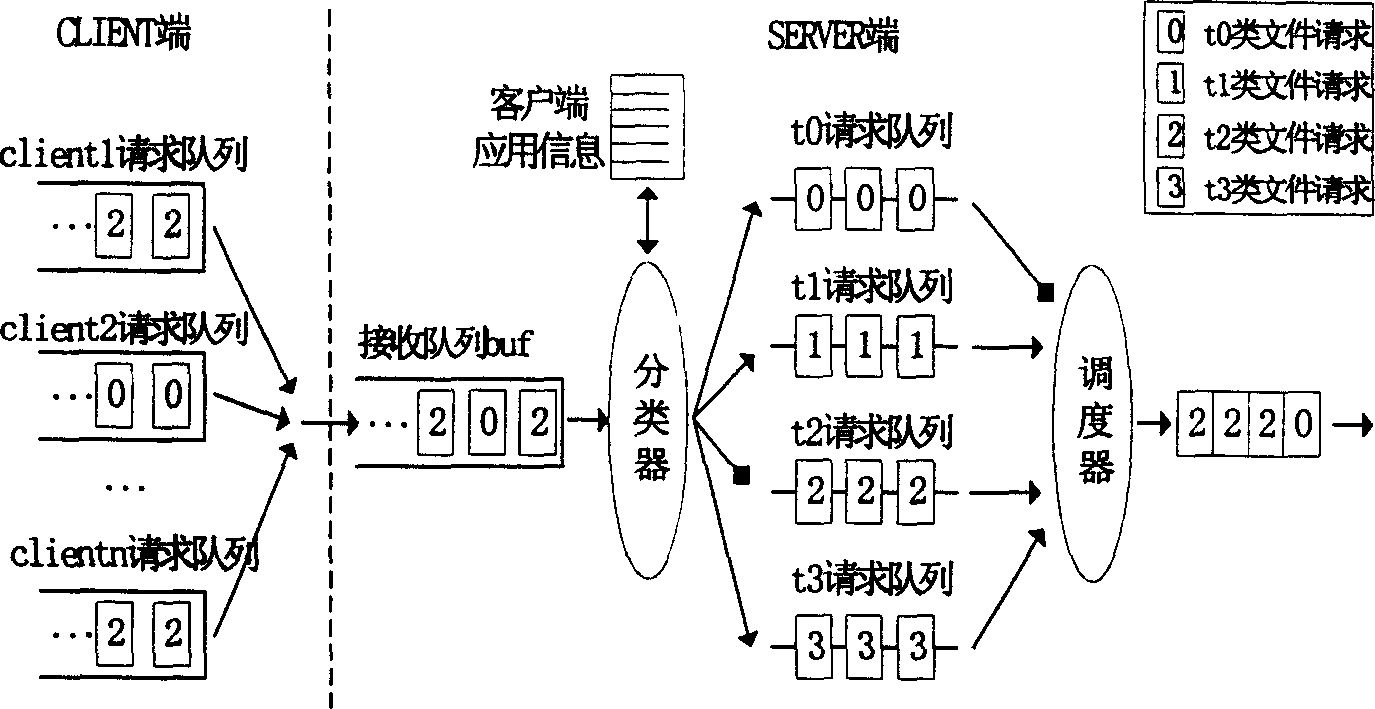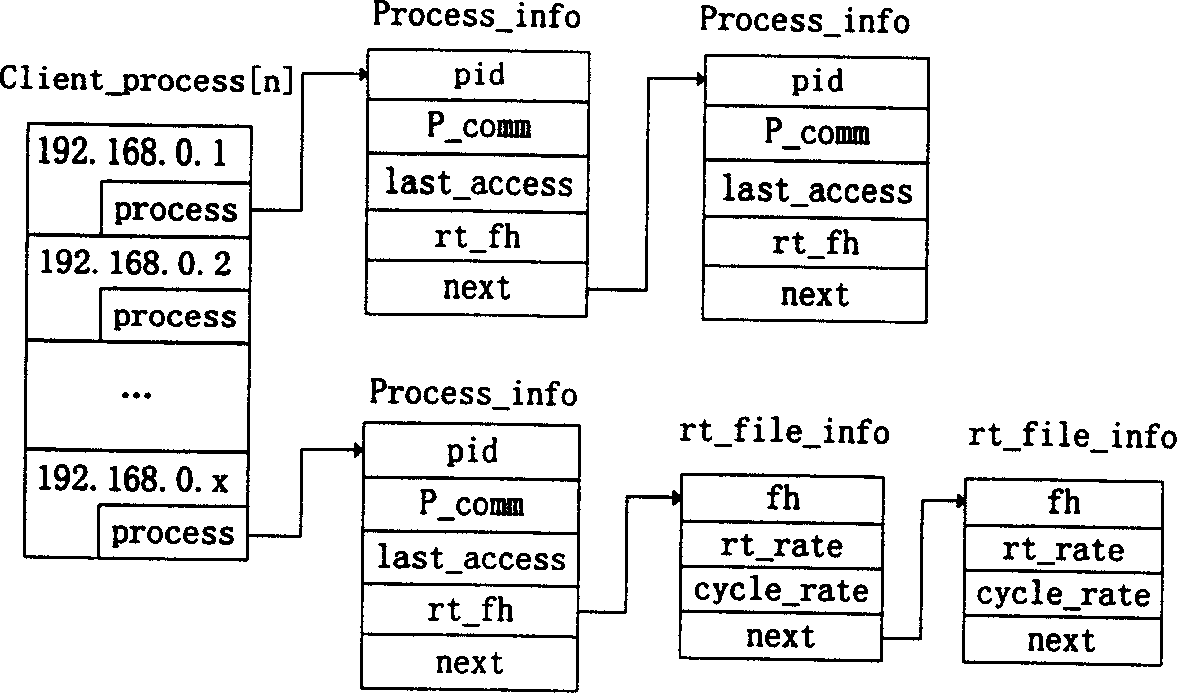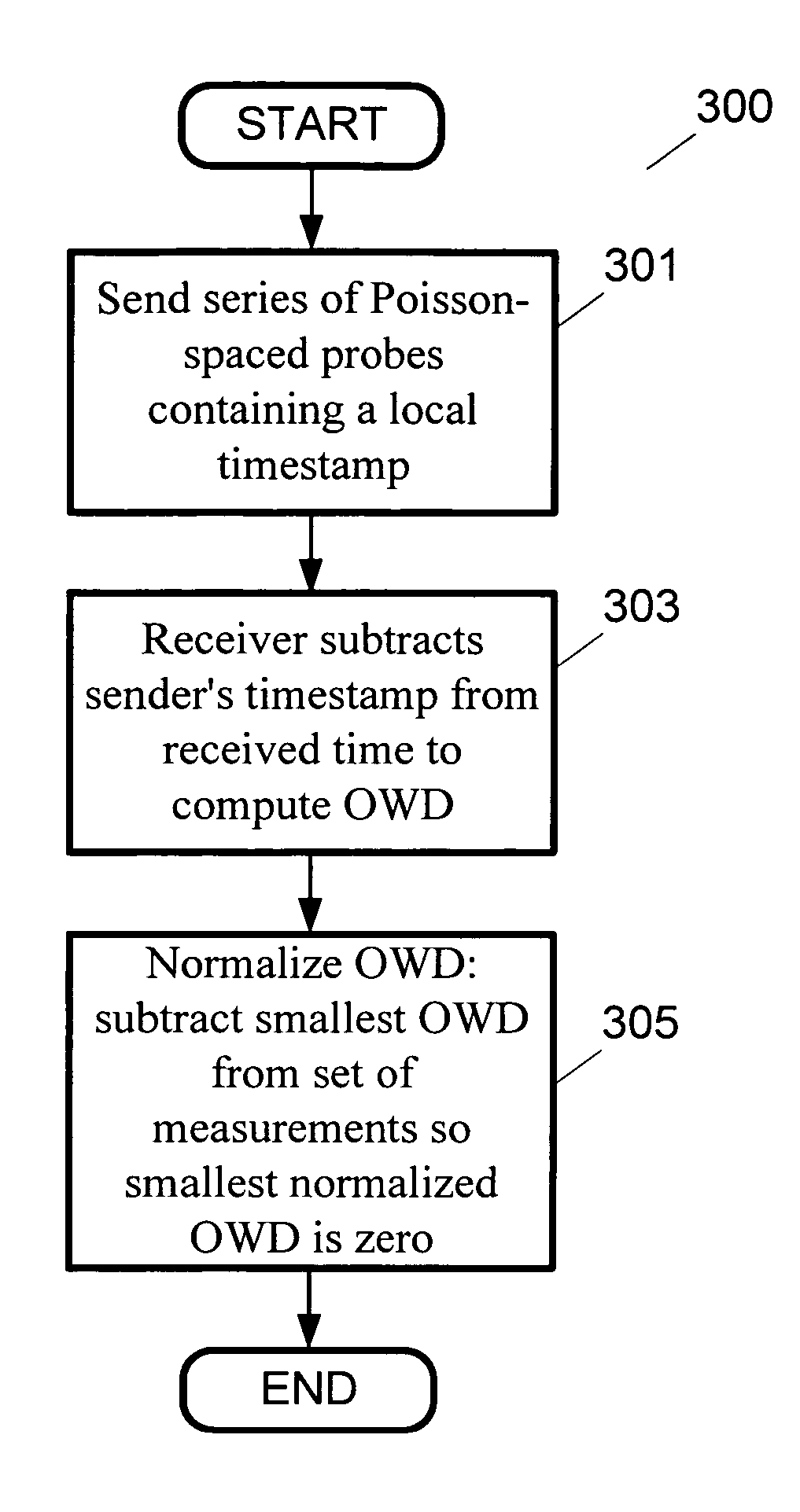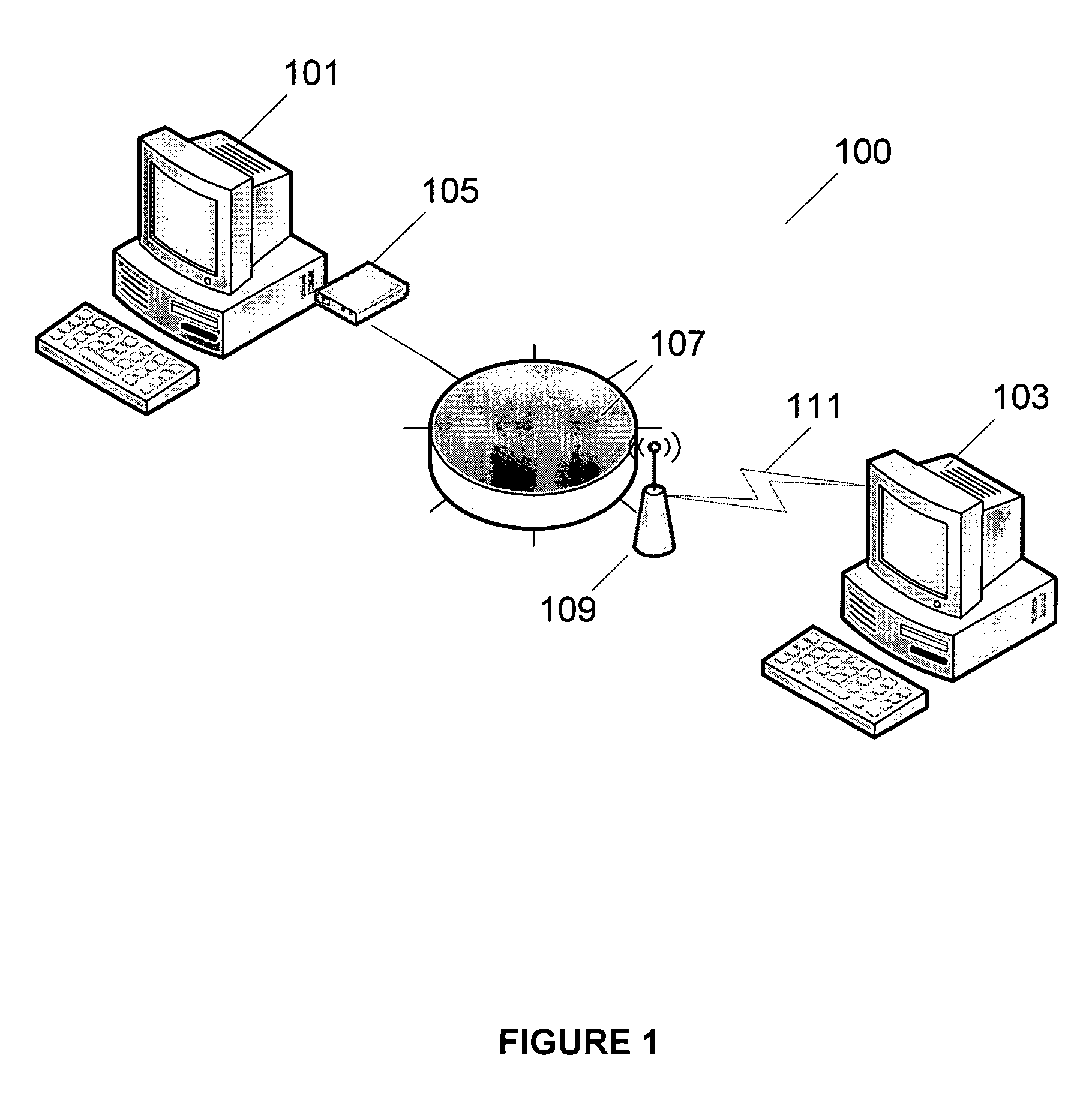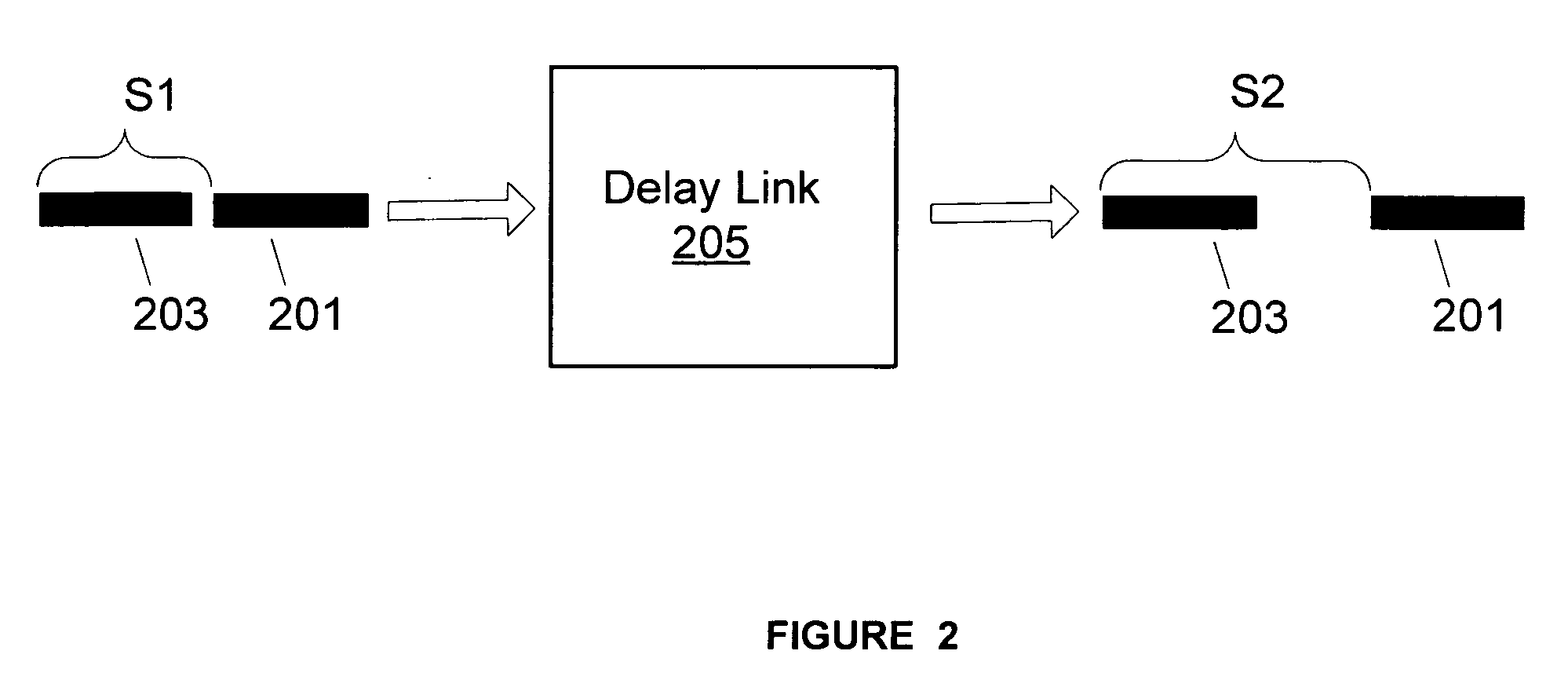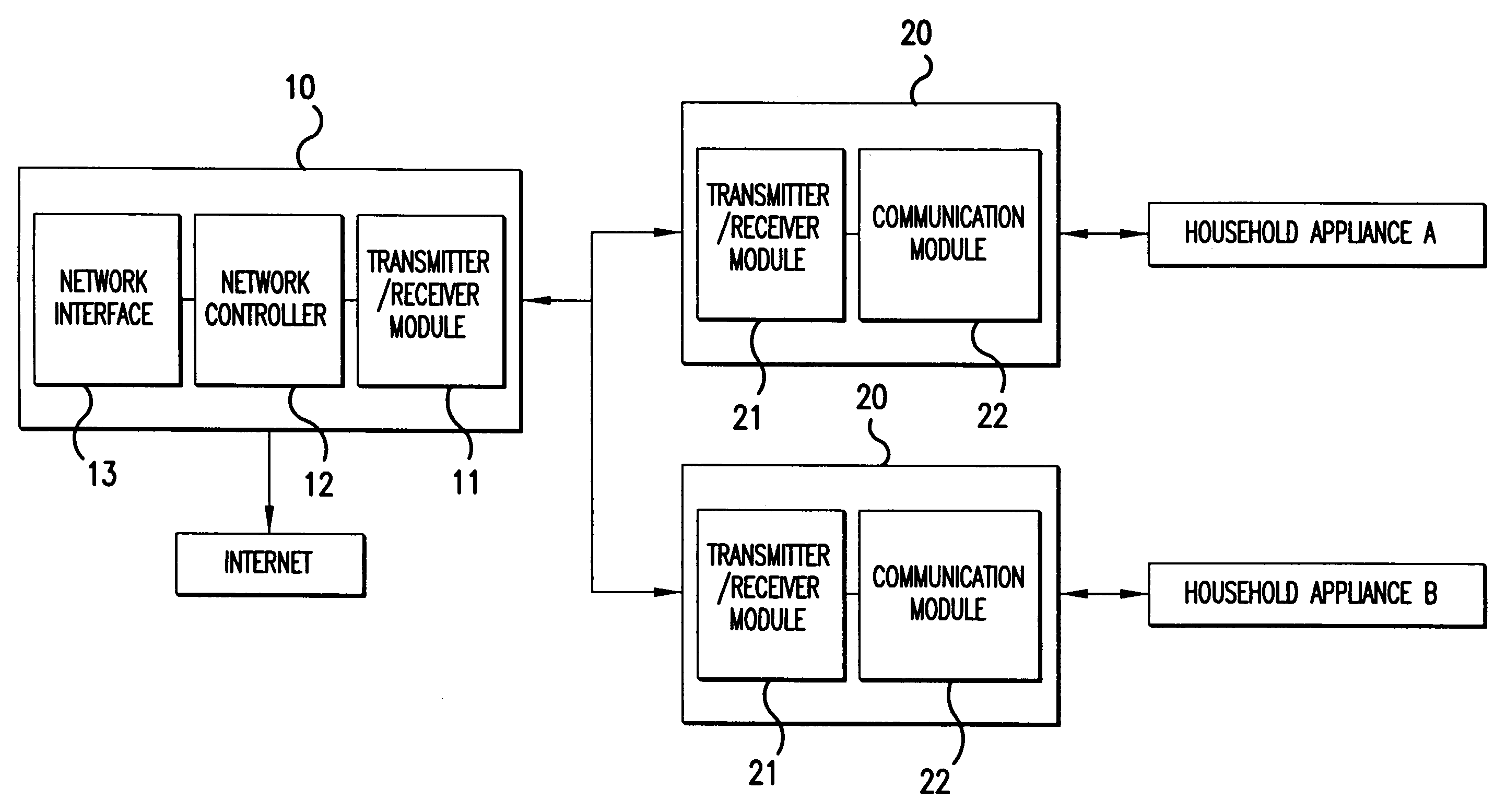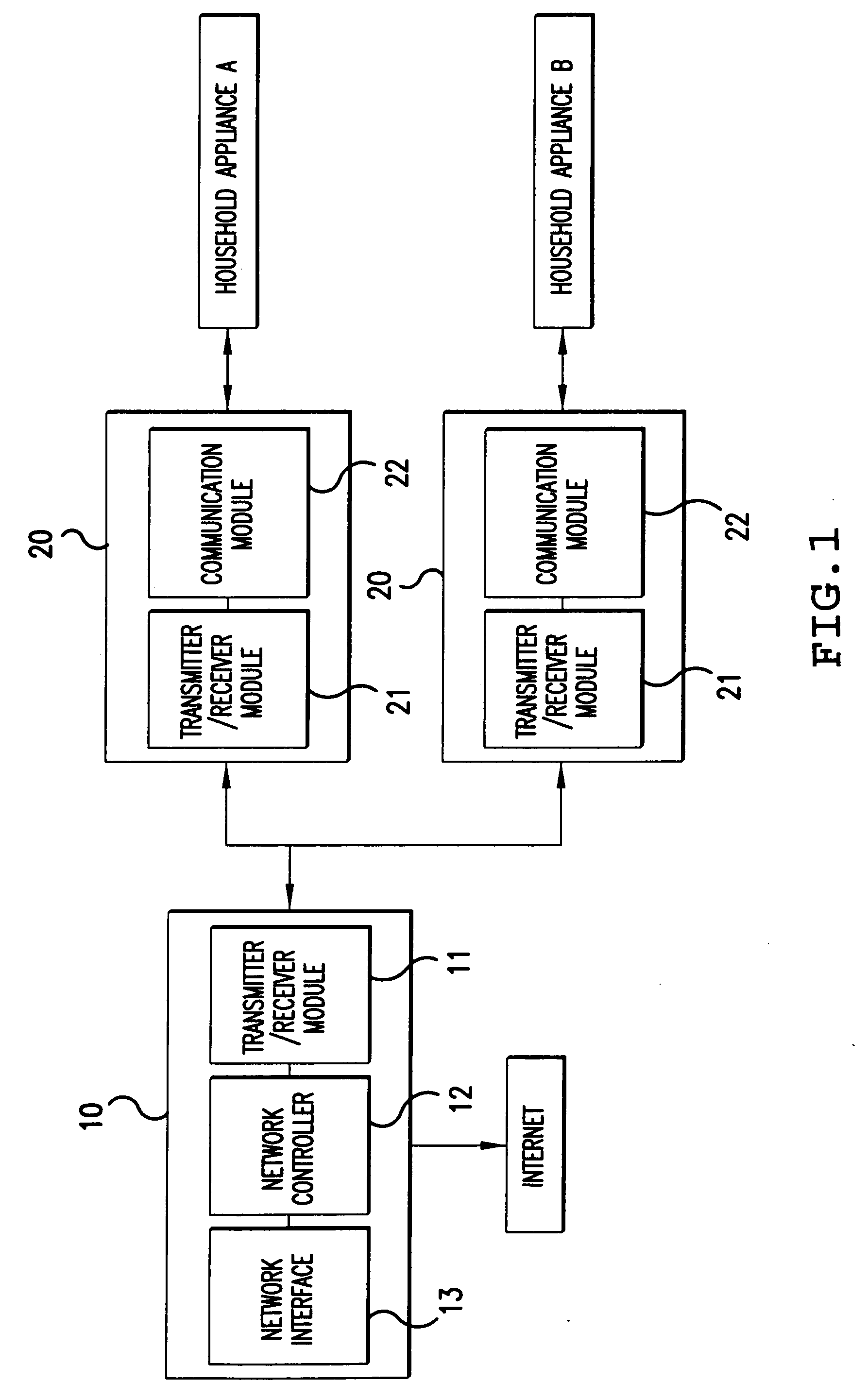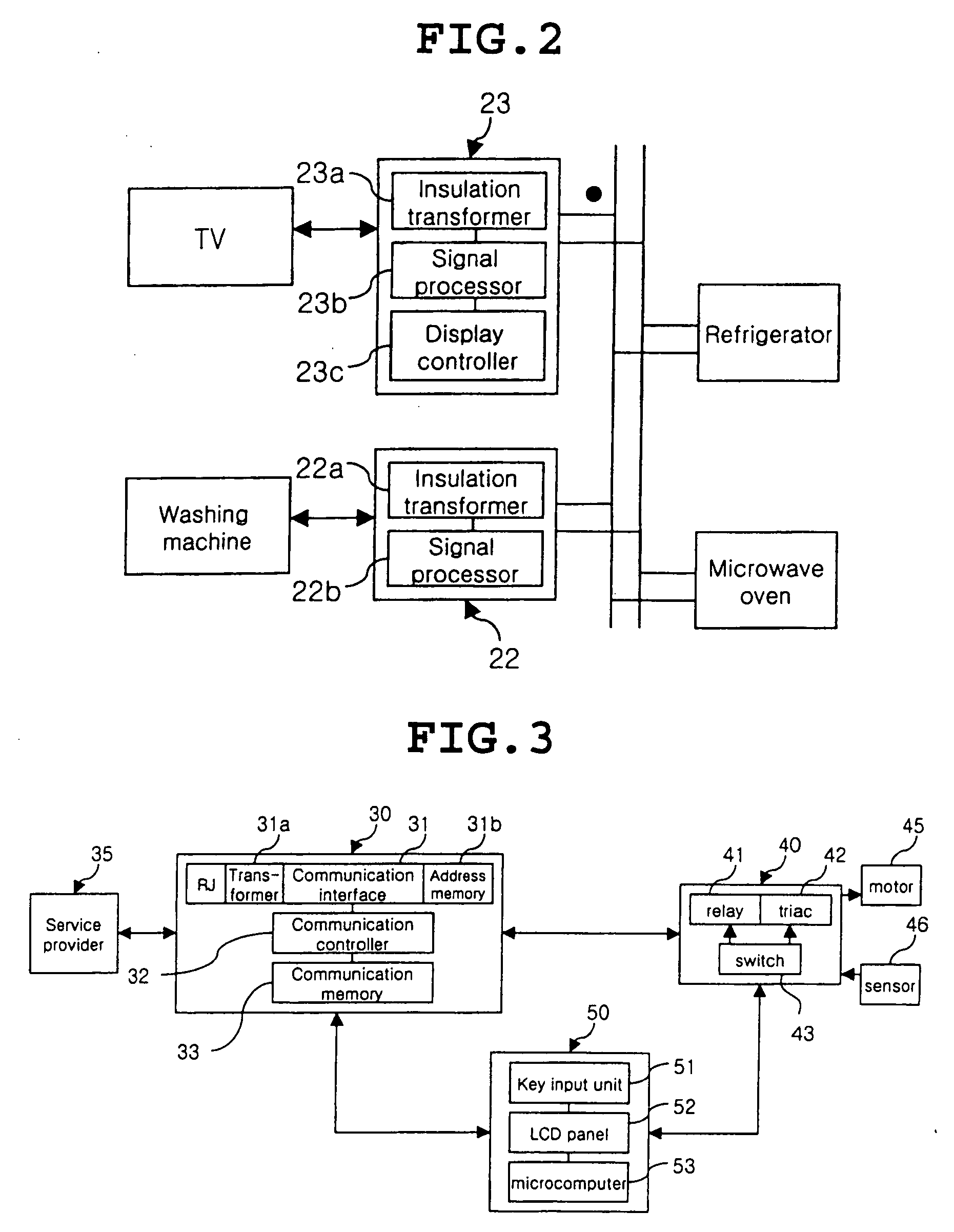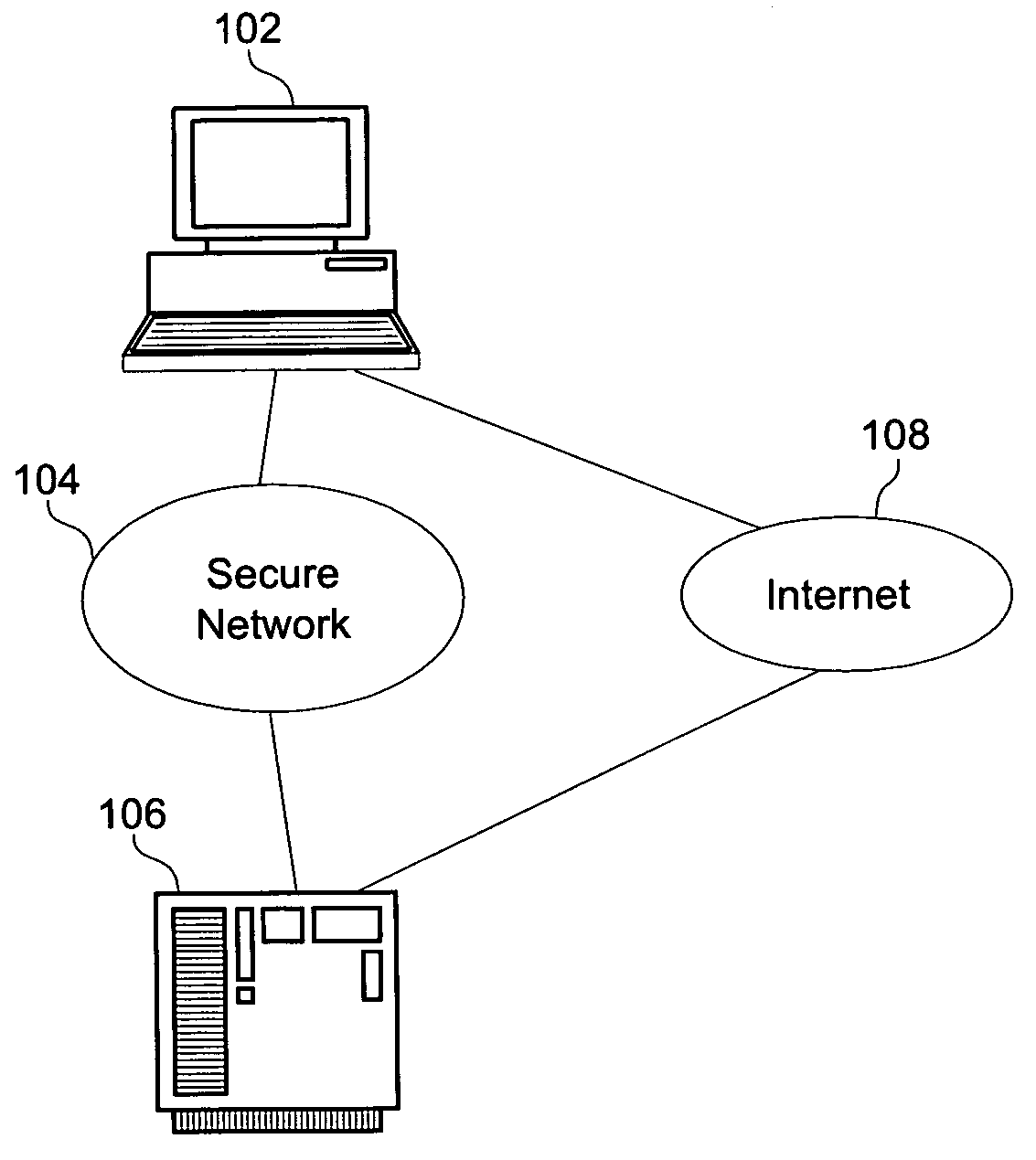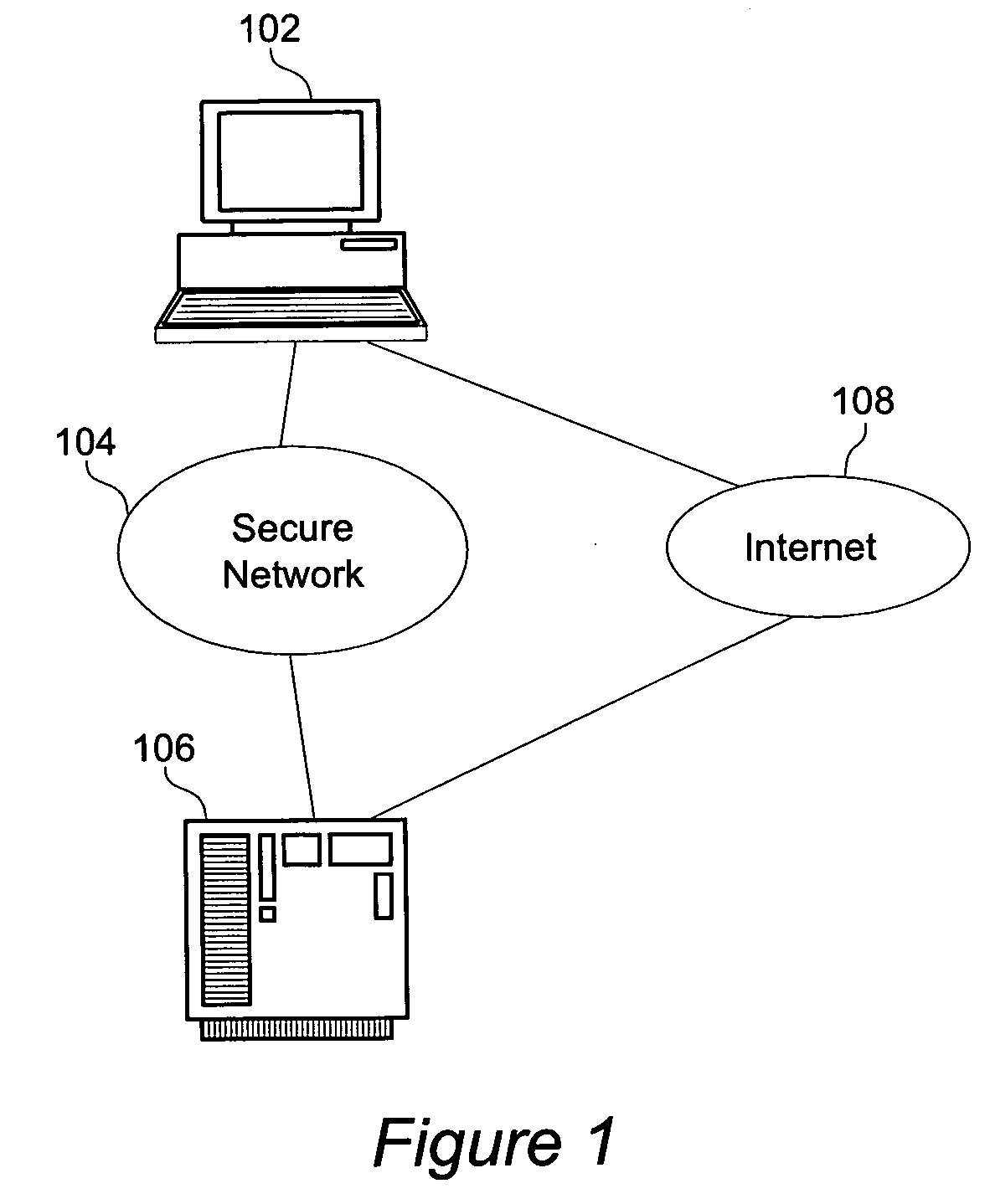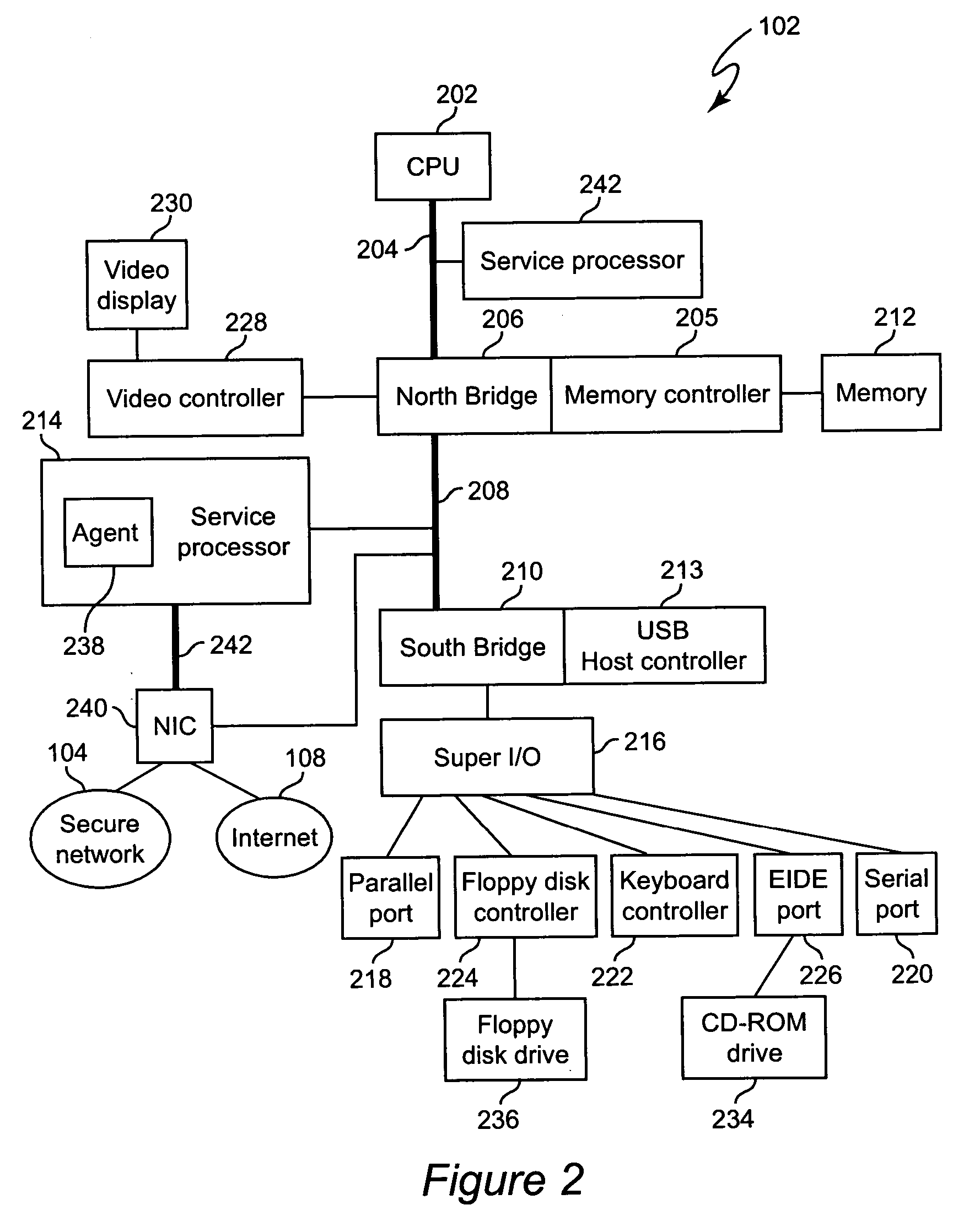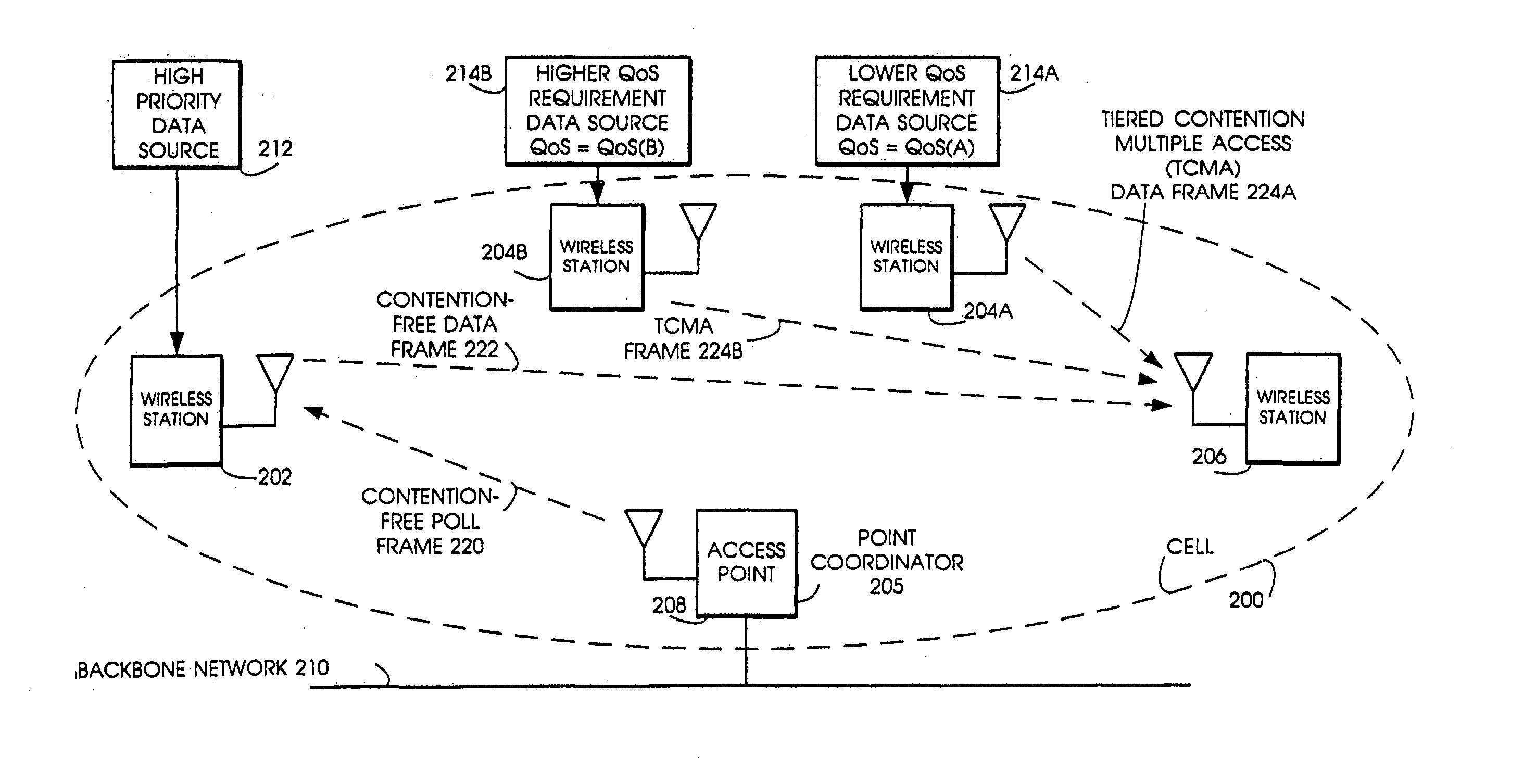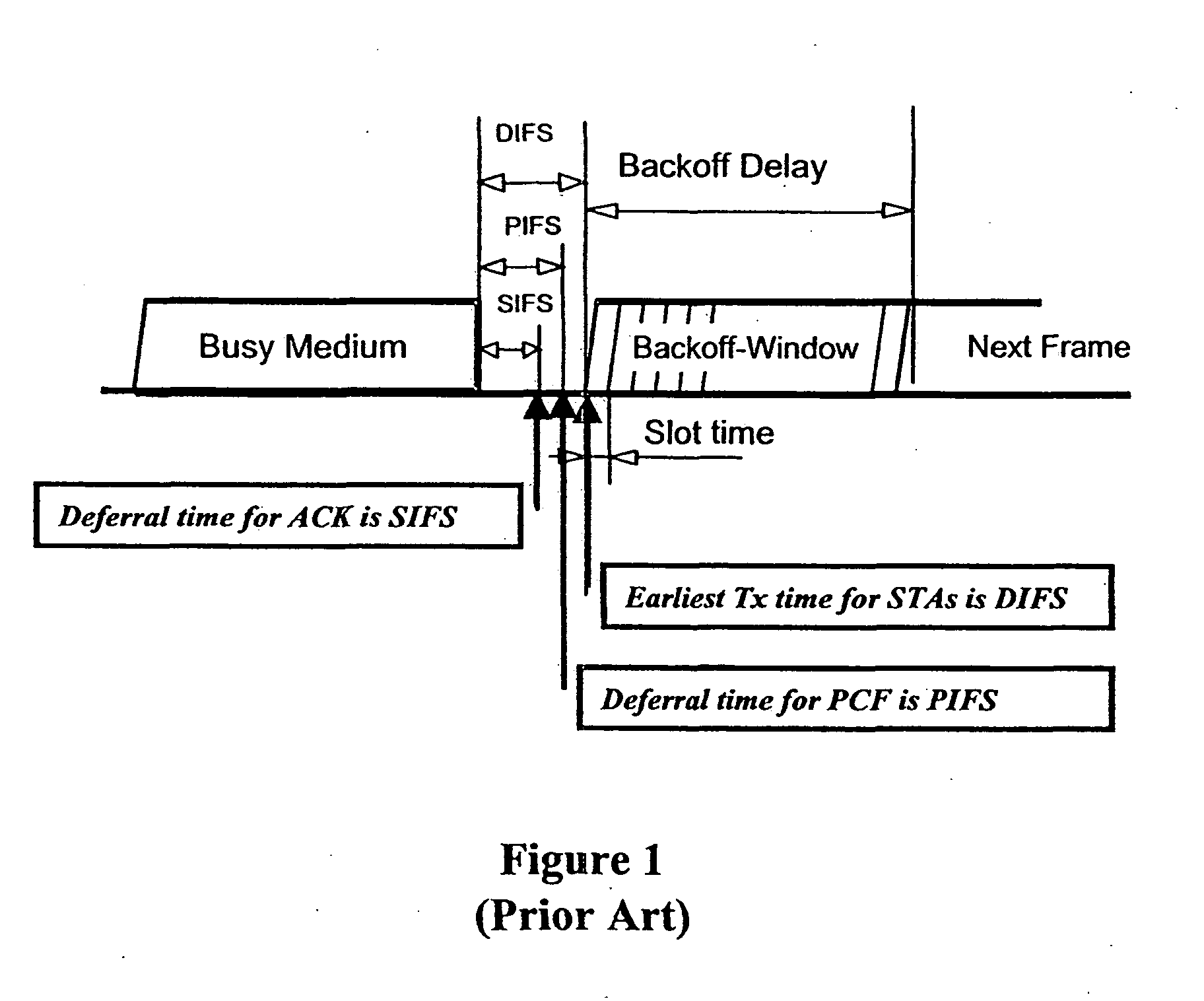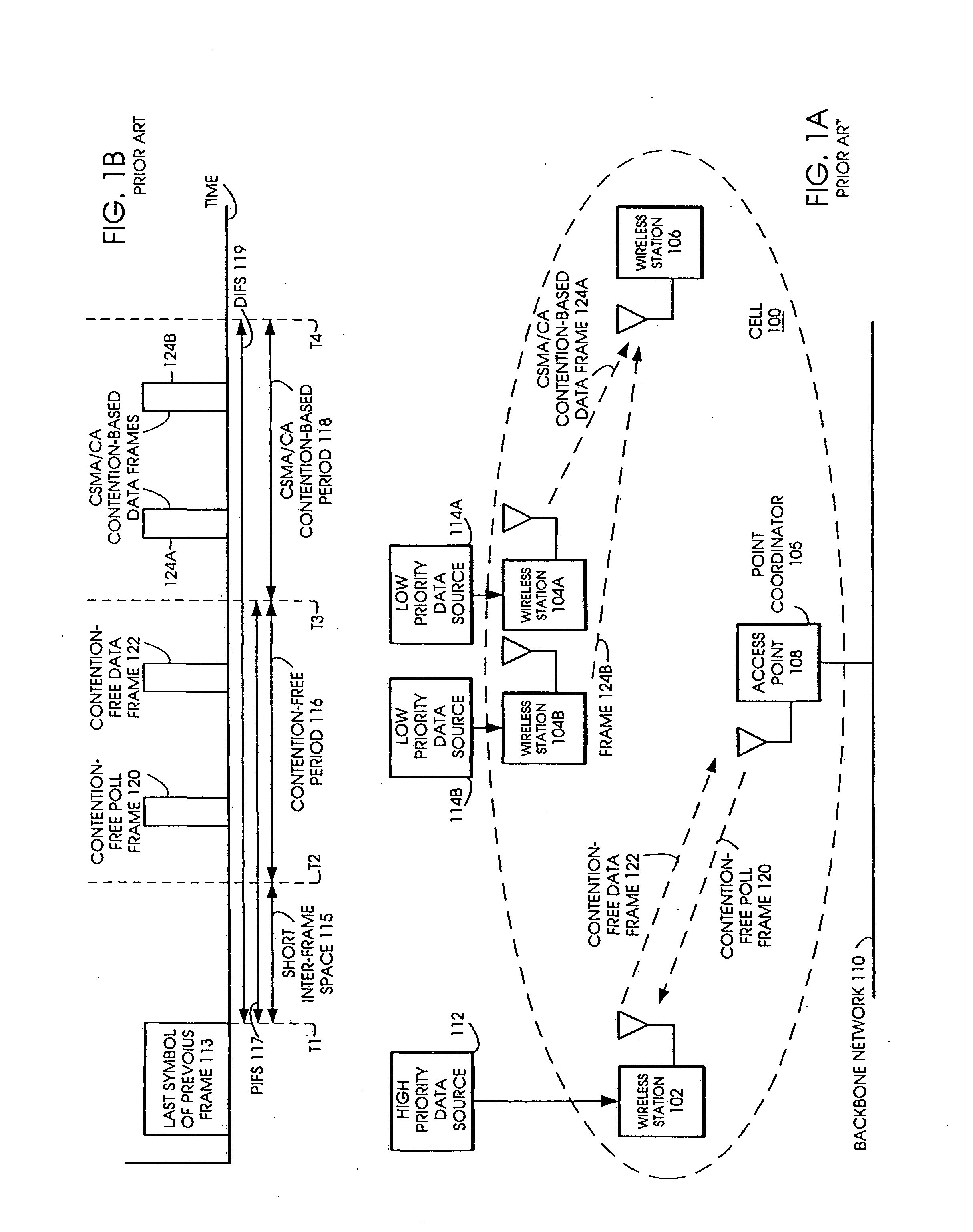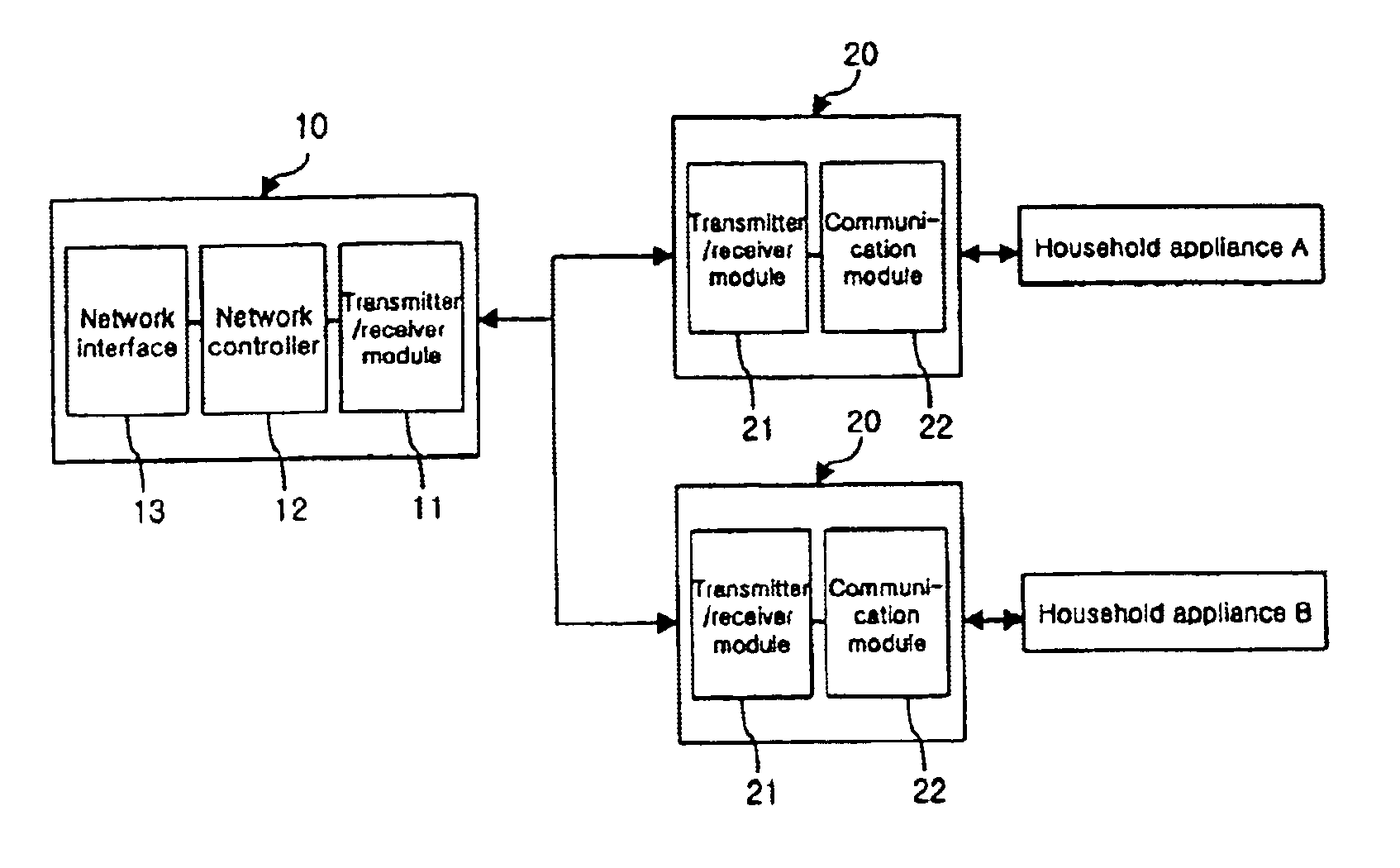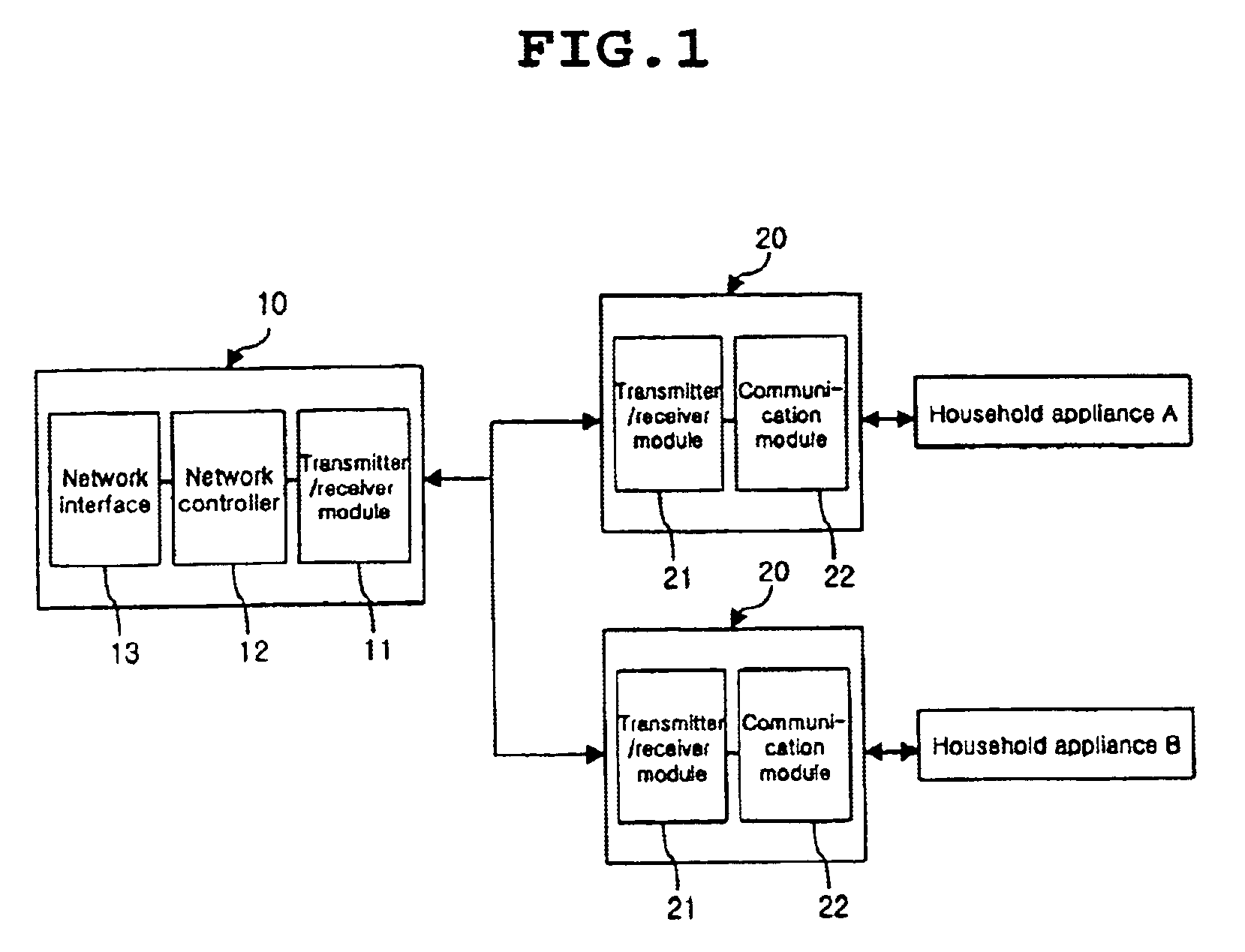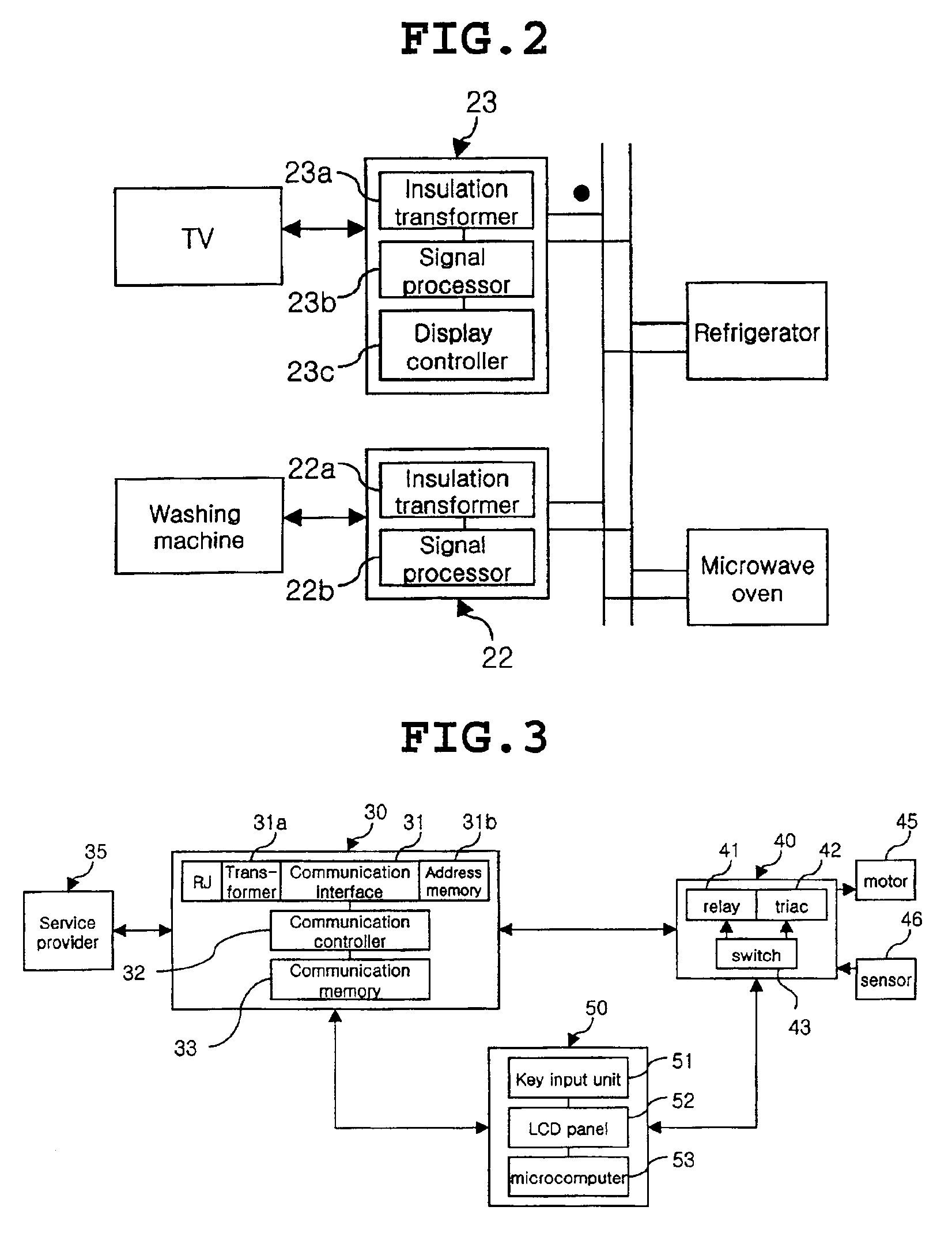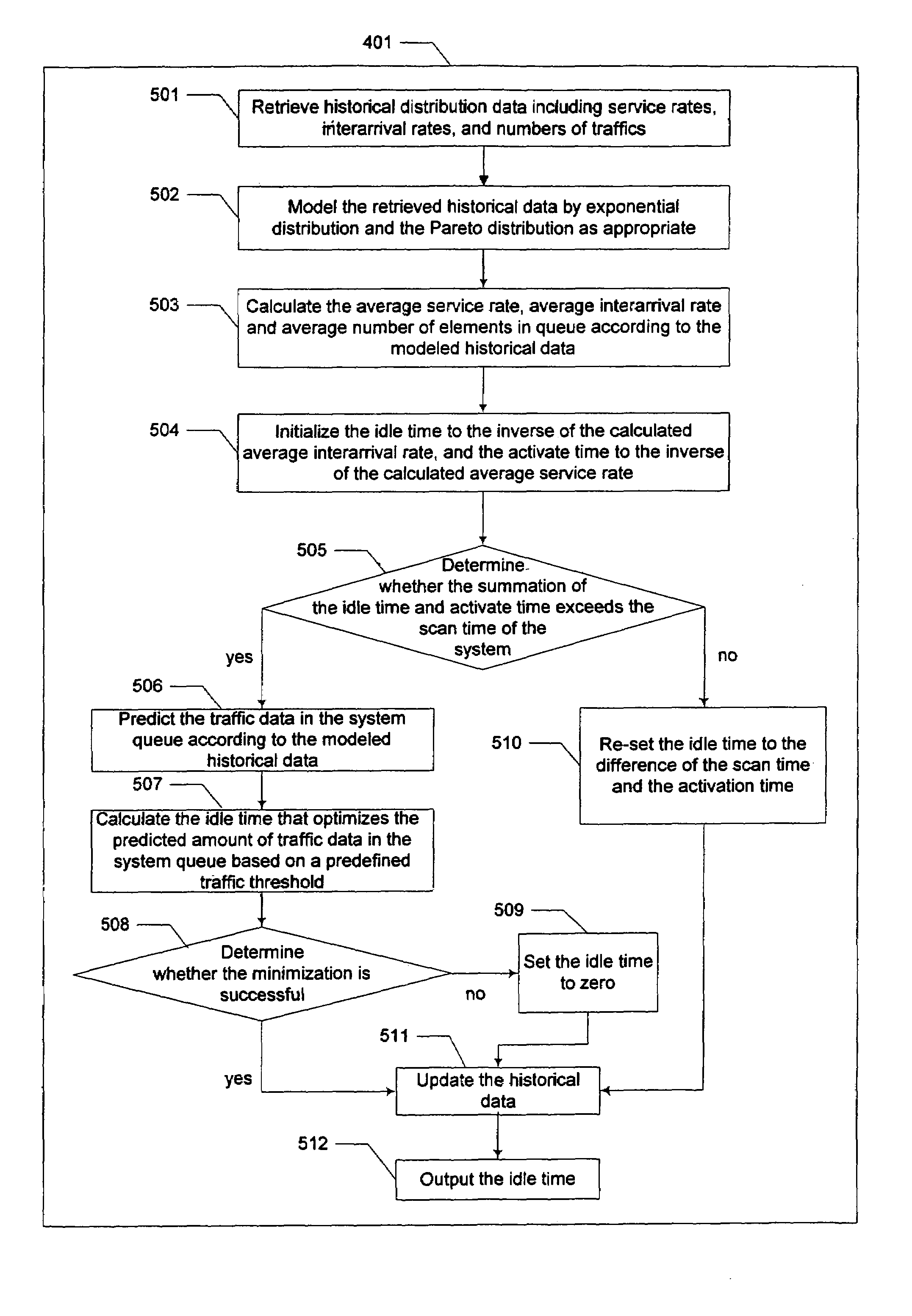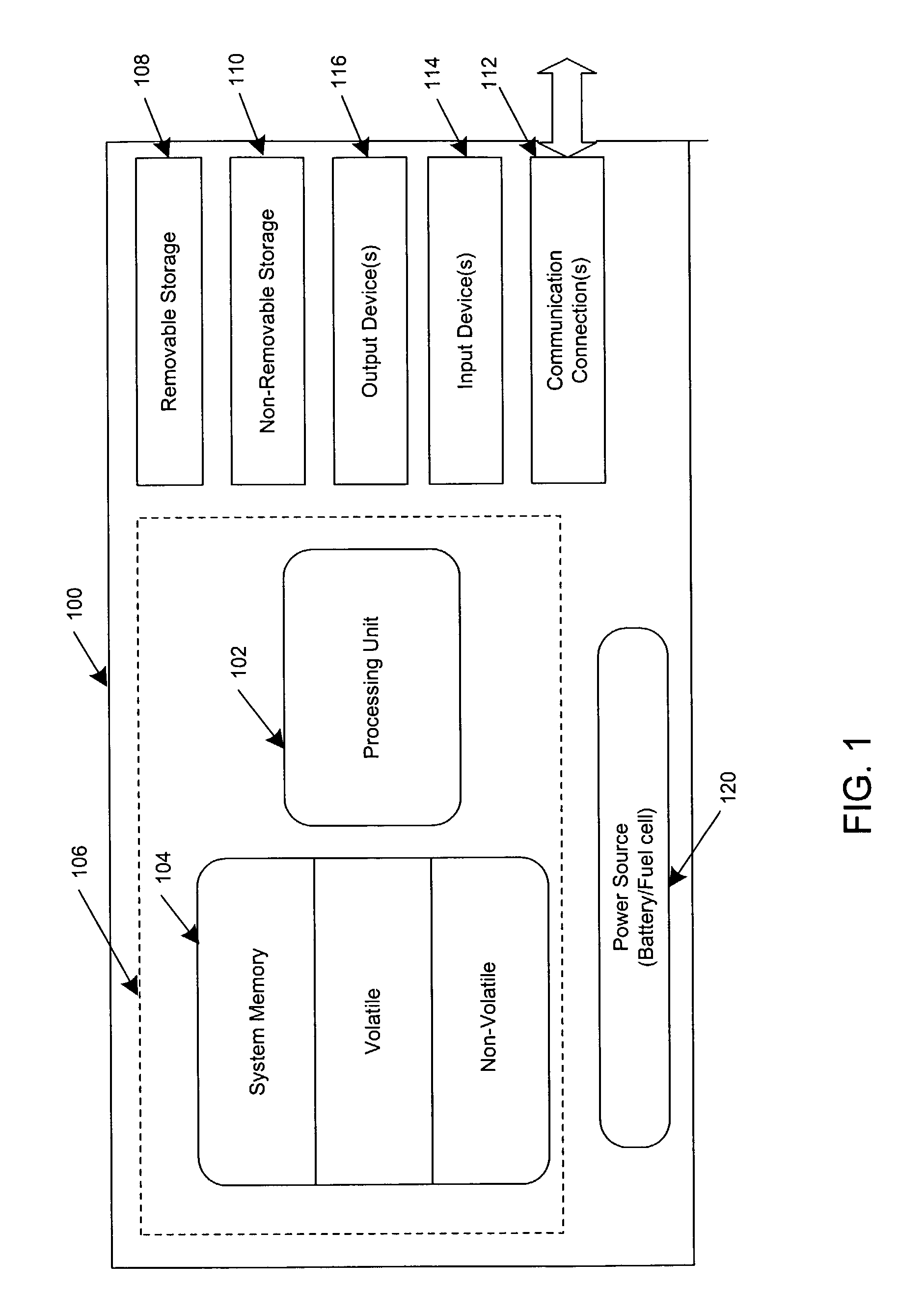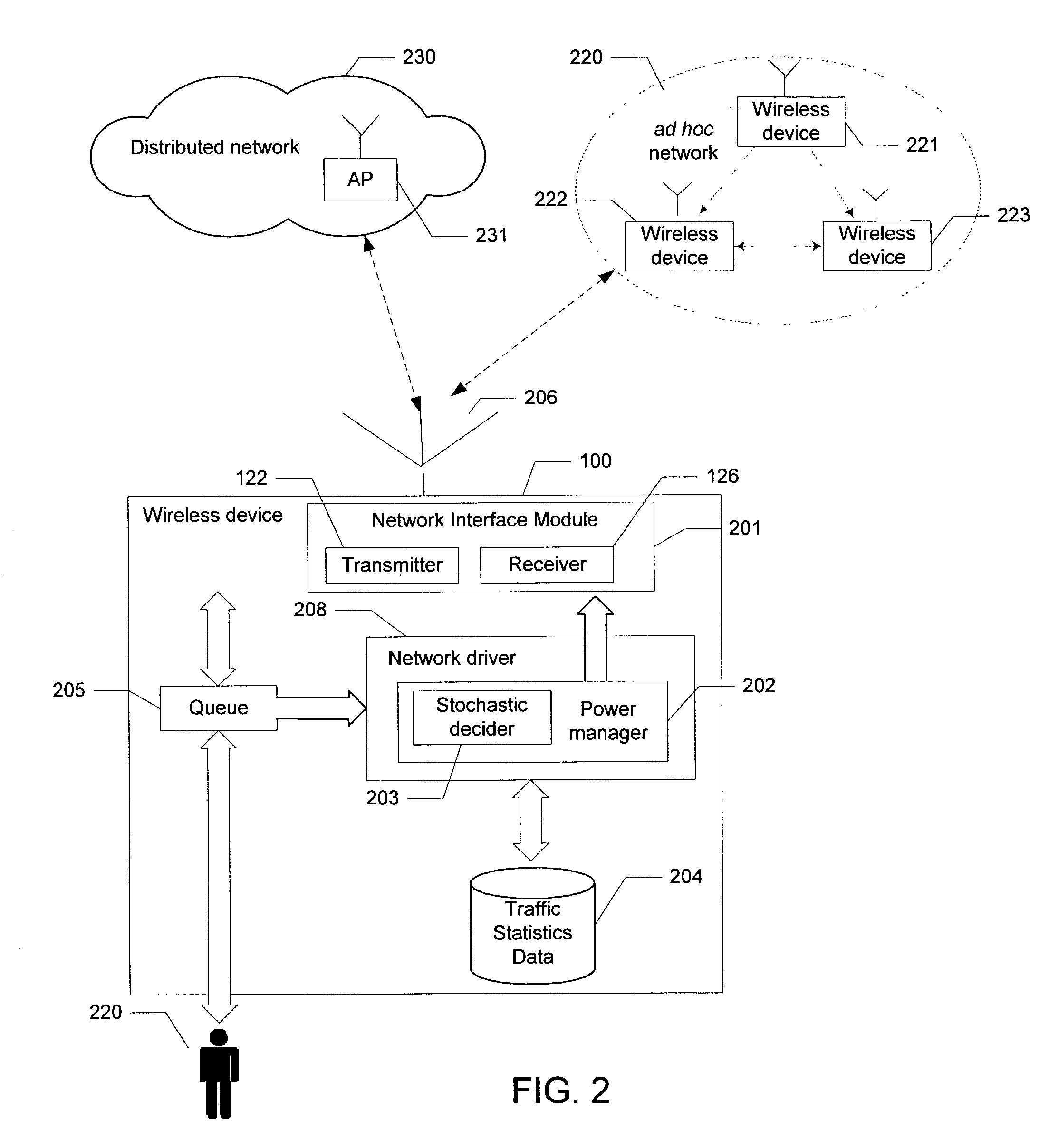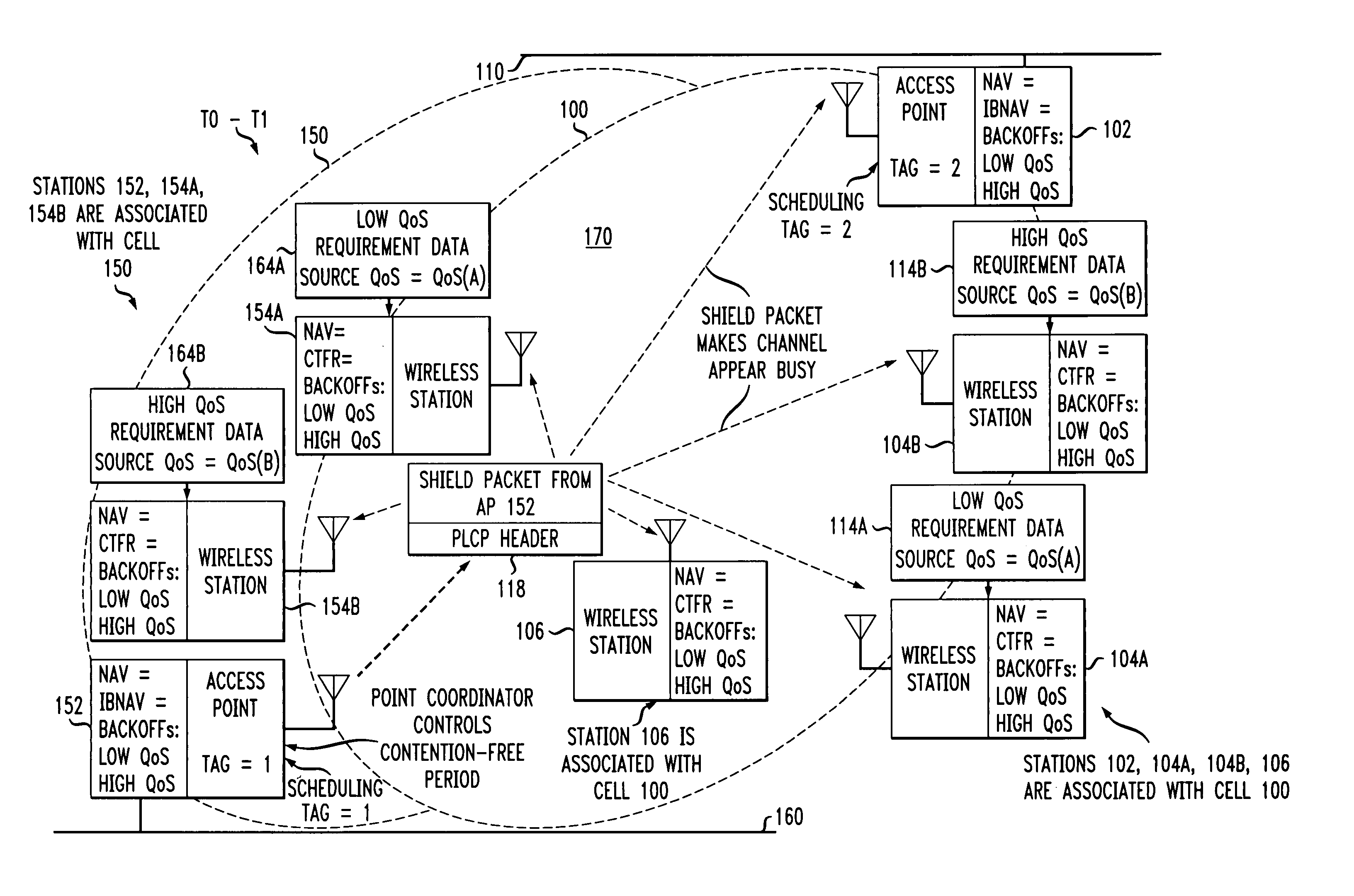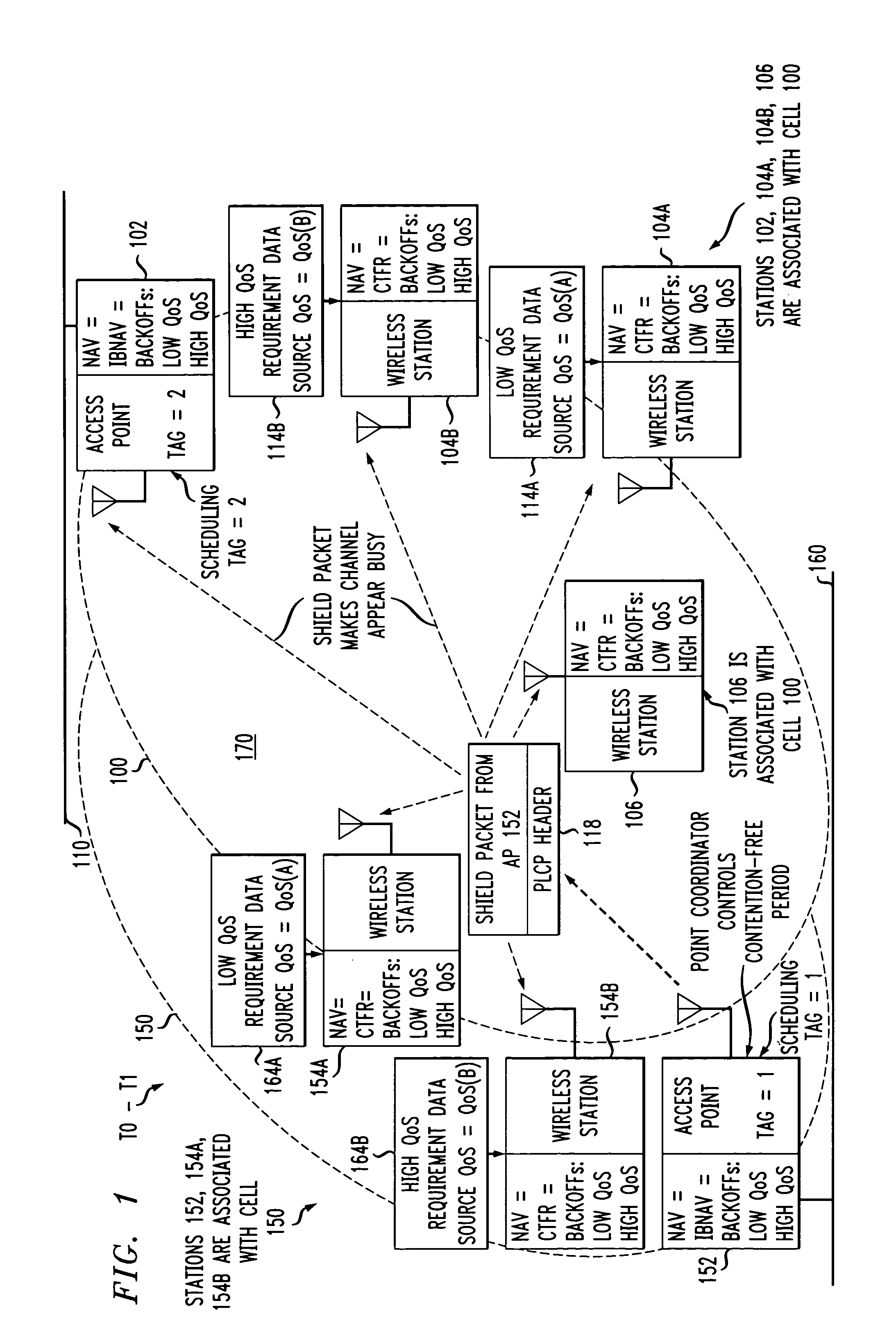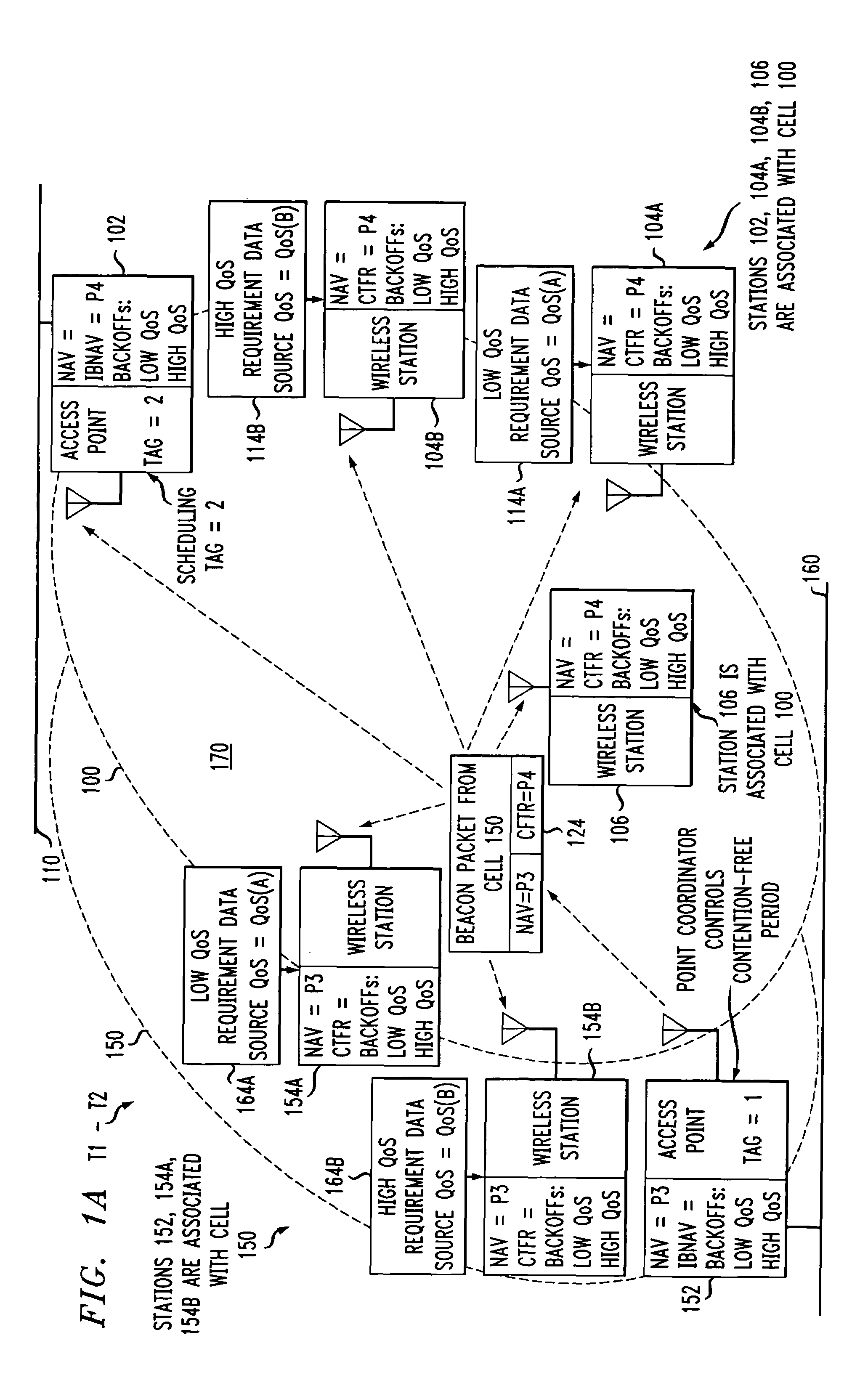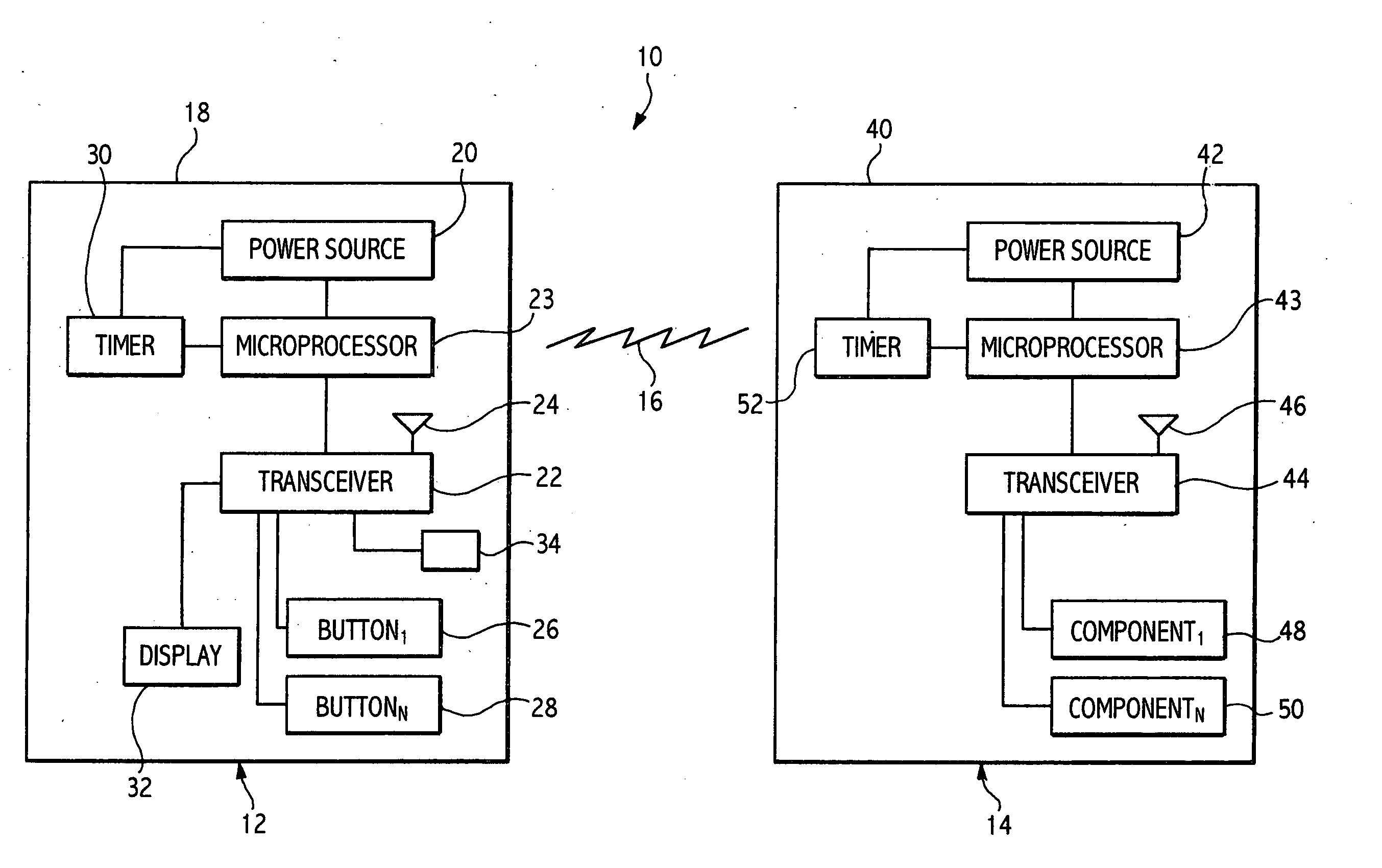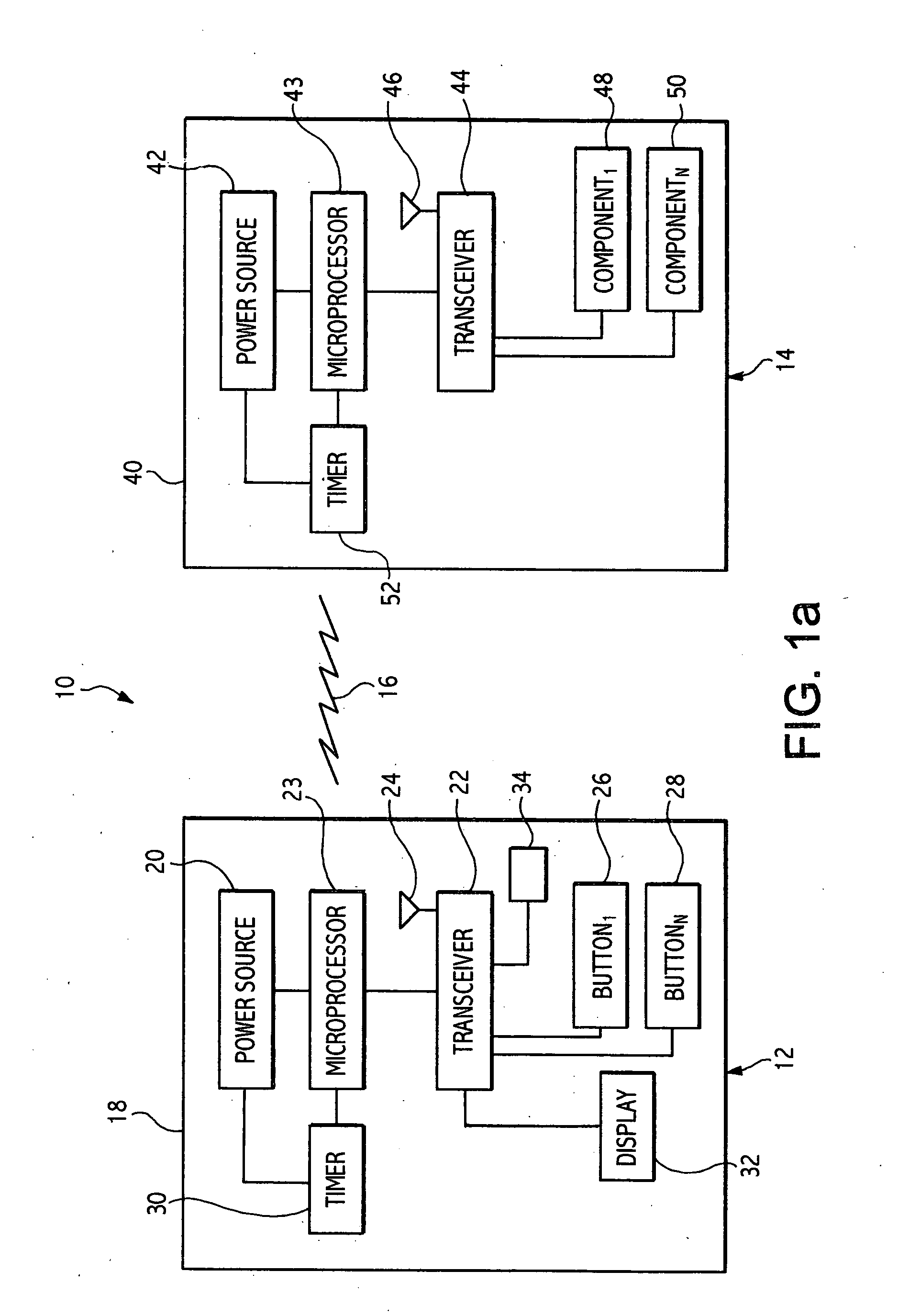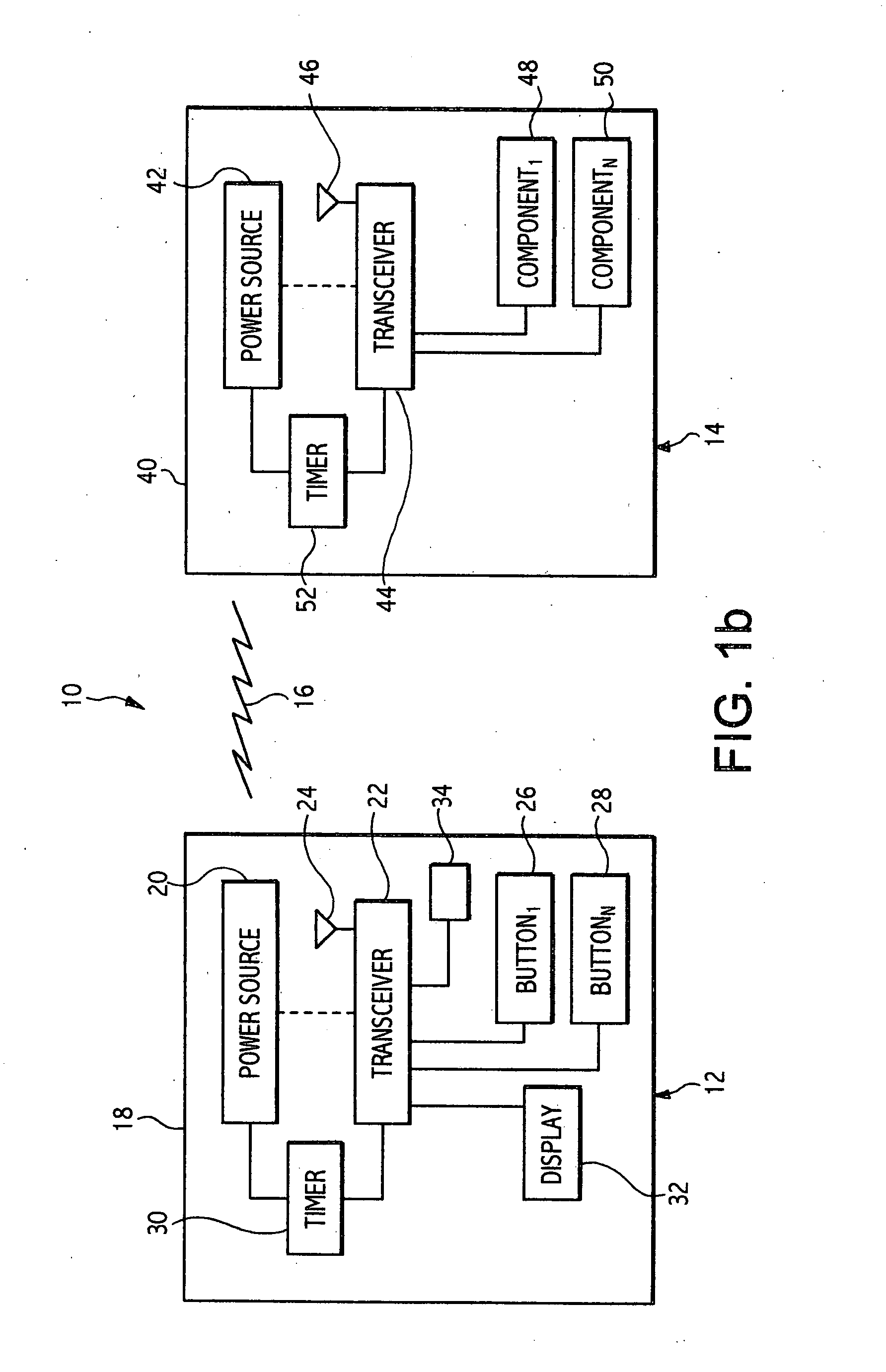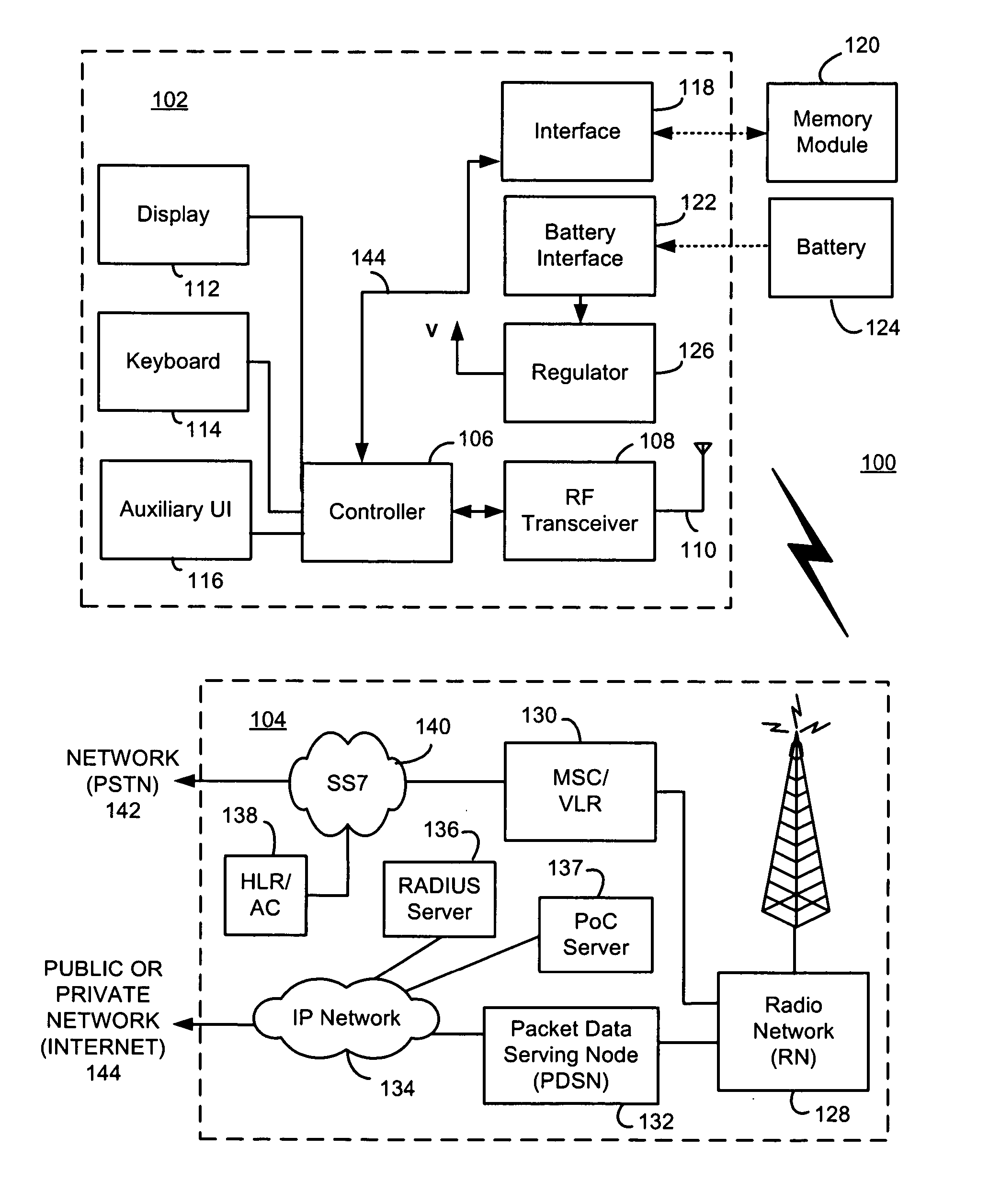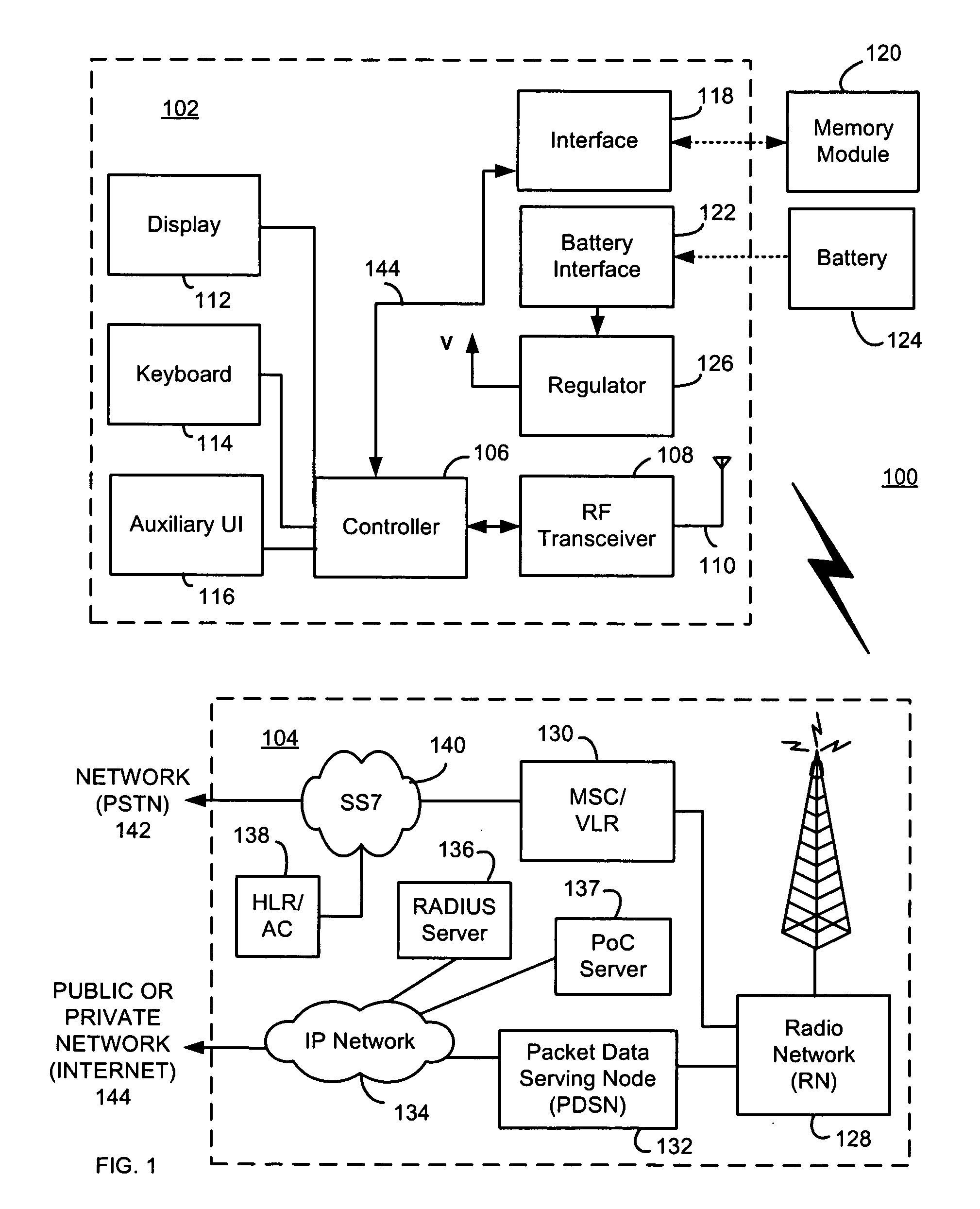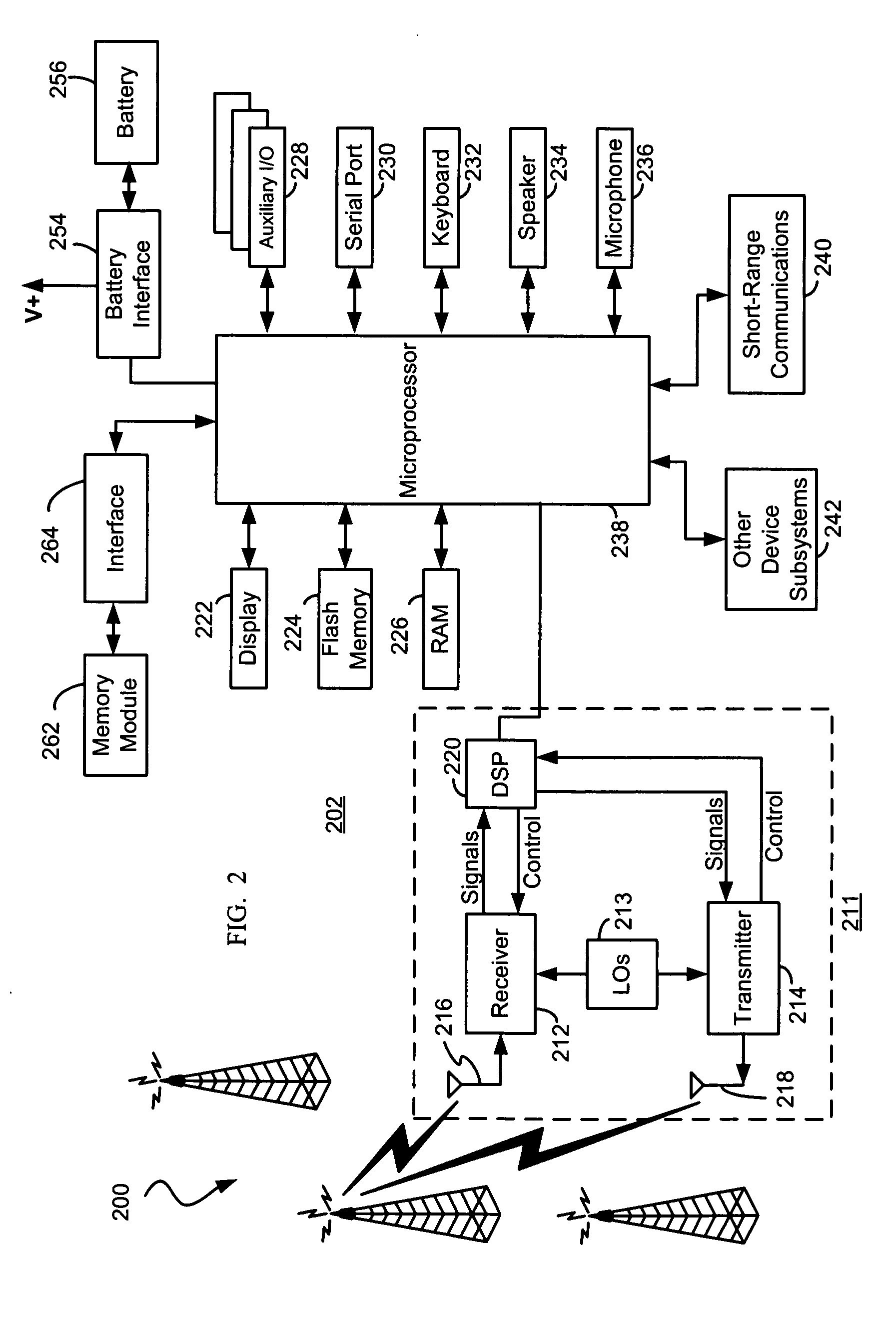Patents
Literature
1765 results about "Idle time" patented technology
Efficacy Topic
Property
Owner
Technical Advancement
Application Domain
Technology Topic
Technology Field Word
Patent Country/Region
Patent Type
Patent Status
Application Year
Inventor
Tiered contention multiple access (TCMA): a method for priority-based shared channel access
ActiveUS7095754B2Minimizing chanceLower latencySynchronisation arrangementNetwork traffic/resource managementService-level agreementIdle time
Quality of Service (QoS) support is provided by means of a Tiered Contention Multiple Access (TCMA) distributed medium access protocol that schedules transmission of different types of traffic based on their service quality specifications. In one embodiment, a wireless station is supplied with data from a source having a lower QoS priority QoS(A), such as file transfer data. Another wireless station is supplied with data from a source having a higher QoS priority QoS(B), such as voice and video data. Each wireless station can determine the urgency class of its pending packets according to a scheduling algorithm. For example file transfer data is assigned lower urgency class and voice and video data is assigned higher urgency class. There are several urgency classes which indicate the desired ordering. Pending packets in a given urgency class are transmitted before transmitting packets of a lower urgency class by relying on class-differentiated urgency arbitration times (UATs), which are the idle time intervals required before the random backoff counter is decreased. In another embodiment packets are reclassified in real time with a scheduling algorithm that adjusts the class assigned to packets based on observed performance parameters and according to negotiated QoS-based requirements. Further, for packets assigned the same arbitration time, additional differentiation into more urgency classes is achieved in terms of the contention resolution mechanism employed, thus yielding hybrid packet prioritization methods. An Enhanced DCF Parameter Set is contained in a control packet sent by the AP to the associated stations, which contains class differentiated parameter values necessary to support the TCMA. These parameters can be changed based on different algorithms to support call admission and flow control functions and to meet the requirements of service level agreements.
Owner:AT&T INTPROP I L P
System and method for generating a schedule based on resource assignments
A system for generating a schedule by generating assignments for the tasks of a project and sequentially scheduling the individual assignments to available resources. First, input information is received which includes a resource calendar and a task list. A resource calendar identifies the resources available to work on a project and any constraints that are associated with the resources. A task list identifies the tasks that must be performed and any constraints that are associated with the tasks. At a minimum, the constraints associated with the tasks must identify each of the resources assigned to the task, and the work-amount that each resource must perform. Next, assignments are generated for each of the tasks. Each of the assignments identifies a specific resource and the work-amount required by the specific resource. Finally, each of the assignments are scheduled in accordance with the provided resource constraints identified in the resource calendar. The resulting schedule maximizes the utilization of the resources by scheduling on an assignment basis. The assignments are individually scheduled into the next available time-slot of the resources, thus, eliminating idle time where a resource is under-utilized.
Owner:MICROSOFT TECH LICENSING LLC
Simultaneous usage of agent and service parameters
A system and method for routing a contact to an agent based on a combination of agent parameters and service parameters includes receiving a first contact and determining attributes of the contact. A multi-dimensional agent-service matrix is generated wherein each cell includes at least an agent / service value corresponding to at least a combination of agent and service parameters. The agent parameters may include agent skill level, agent idle time, and order of agents receiving a contact. The service parameters may include wait time of contact in queue, service level goal, number of contacts in queue, and service affinity. A first available agent is identified from the agent-service matrix having a maximum agent / service value and the contact is routed to that agent. Every available agent in the agent-service matrix is available to handle the contact.
Owner:CIM
Apparatus and method for controlling power management
ActiveUS20090172428A1Reduce power consumptionReduce the numberEnergy efficient ICTVolume/mass flow measurementControl powerIdle time
The present invention relates to an apparatus and a method for controlling power management based on information on ticks for performing program tasks and information on each of power management states, which is applicable to every apparatus and component able to enter a power saving state.By means of entering a corresponding power management based on a result of comparing idle time of a processor during the tick with resume time of each power management state, power consumption can be reduced.
Owner:LG ELECTRONICS INC
Method of advertising on line during a communication link idle time
Method of advertising on-line during, for example, a world wide web session is provided by downloading full page advertisements from a predetermined site (e.g., remote server) to a user's computer during a communication link idle time. The downloaded advertising data are stored and then displayed when the user makes a request to retrieve new data, for example, a hyperlink request to a selected remote server. The advertisement remains displayed while the connection to the selected remote server is made and at least until a portion of new content data is transmitted to the user terminal.
Owner:SONY CORP +1
Method for perfetching structured data
InactiveUS6311260B1Memory adressing/allocation/relocationDigital computer detailsIdle timeComputer science
A method for prefetching structured data, and more particularly a mechanism for observing address references made by a processor, and learning from those references the patterns of accesses made to structured data. Structured data means aggregates of related data such as arrays, records, and data containing links and pointers. When subsequent accesses are made to data structured in the same way, the mechanism generates in advance the sequence of addresses that will be needed for the new accesses. This sequence is utilized by the memory to obtain the data somewhat earlier than the instructions would normally request it, and thereby eliminate idle time due to memory latency while awaiting the arrival of the data.
Owner:NEC CORP
Dynamic power control apparatus, systems and methods
InactiveUS6885974B2Reduce dependenceImprove practicalityEnergy efficient ICTElectric devicesPower controllerIdle time
Dynamic power controller apparatus, systems and methods are provided which utilize system and user data to control power to components. The present invention employs dynamically controlled idle timeout values which are based, in part, on the historical use of the component. It can also employ user settings, event occurrences and available resources of a system to dynamically control the power to one of the system's components or a remote component. In an instance of the present invention related to hard disk power control, it is employed in an operating system's kernel where disk idleness is monitored. When the hard disk's idle time meets a dynamically computed power control idle timeout, the disk driver is commanded to power down the device.
Owner:MICROSOFT TECH LICENSING LLC
Signal transmission apparatus
A signal transmission apparatus is connected to a network as one node among a plurality of nodes involved in the network which is provided with an audio signal transmission period for transmitting a plurality of channels of audio signals each transmission cycle and a control data transmission period for transmitting control data of the plurality of the nodes each control cycle by using an idle time period other than the audio signal transmission period. In the signal transmission apparatus, a storage section stores configuration information of the one node. A transmitting section transmits the control data including an error checking code of the configuration information. A receiving section receives request data from another node, the request data requesting the one node for transmission of an information block of the configuration information. A control section controls the transmitting section to transmit the information block in response to the request data.
Owner:YAMAHA CORP
User interface for medical imaging including improved pan-zoom control
ActiveUS20060111634A1Reduce stepsEasy to controlUltrasonic/sonic/infrasonic diagnosticsInfrasonic diagnosticsIdle timeUser input
An ultrasonic image scanning system for scanning an organic object that includes a display system for displaying a scanned image of the organic object in a plurality of display modes wherein the display system further includes a user input device sensor for sensing a motion of a user input device in at least one of display modes to automatically switch from one display mode to a different display mode. Furthermore, the display system further counts a length of time the user input device staying idle in at least one of the display modes for switching the display mode back to a last display mode at a predefined idle time limit.
Owner:SONOWISE
Adaptive power-reduction mode
ActiveUS7383457B1Delay in initiateVolume/mass flow measurementPower supply for data processingIdle timeTime segment
A method, apparatus, and system comprises monitoring an idle time period associated with a device and providing an adaptive power-save mode based upon a determination that the idle time period has exceeded a predetermined threshold. Providing the adaptive power-save mode comprising detecting a power-up response subsequent to an initiation of a power-save mode and modifying the predetermined threshold based upon the power-up response.
Owner:APPLE INC
Tiered contention multiple access (TCMA): a method for priority-based shared channel access
InactiveUS20070019664A1Minimizing chanceLower latencySynchronisation arrangementError preventionService-level agreementClass of service
Quality of Service (QoS) support is provided by means of a Tiered Contention Multiple Access (TCMA) distributed medium access protocol that schedules transmission of different types of traffic based on their service quality specifications. In one embodiment, a wireless station is supplied with data from a source having a lower QoS priority QoS(A), such as file transfer data. Another wireless station is supplied with data from a source having a higher QoS priority QoS(B), such as voice and video data. Each wireless station can determine the urgency class of its pending packets according to a scheduling algorithm. For example file transfer data is assigned lower urgency class and voice and video data is assigned higher urgency class. There are several urgency classes which indicate the desired ordering. Pending packets in a given urgency class are transmitted before transmitting packets of a lower urgency class by relying on class-differentiated urgency arbitration times (UATs), which are the idle time intervals required before the random backoff counter is decreased. In another embodiment packets are reclassified in real time with a scheduling algorithm that adjusts the class assigned to packets based on observed performance parameters and according to negotiated QoS-based requirements. Further, for packets assigned the same arbitration time, additional differentiation into more urgency classes is achieved in terms of the contention resolution mechanism employed, thus yielding hybrid packet prioritization methods. An Enhanced DCF Parameter Set is contained in a control packet sent by the AP to the associated stations, which contains class differentiated parameter values necessary to support the TCMA. These parameters can be changed based on different algorithms to support call admission and flow control functions and to meet the requirements of service level agreements.
Owner:AT&T INTPROP II L P
Selective power management of disk drives during semi-idle time in order to save power and increase drive life span
ActiveUS7516348B1Extended disk drive lifeSignificant power savingEnergy efficient ICTDigital storageIdle timeData transmission
Redundancy in storage arrays is used to extend the life of disk drives and conserve power. In an exemplary storage array, a group of storage devices includes y storage devices. Data and redundant information is distributed across the y devices to provide m levels of redundancy. “Spun down devices” are provided by spinning down a set of one or more of up to m of the y storage devices. Meanwhile, data transfers to and from the group of storage devices continue to be serviced. After a predetermined time, the currently spun down disks can be spun up, and new spun down devices are provided by spinning down another set of one or more of m of the y storage devices. An array may include several groups of storage devices, each having its own value for y and m.
Owner:EMC IP HLDG CO LLC
Method for scheduling satellite data product production tasks in parallel based on multithread
ActiveCN101739293ASolve scheduling problemsIncrease the number of tasksResource allocationSatellite dataIdle time
The invention discloses a method for scheduling satellite data product production tasks in parallel based on multithread. The method comprises the following steps: setting priorities for tasks to be scheduled for executing and realizing a uniformed interface; adding the tasks into a priority queue according to an order of the priorities from high to low; setting the maximum number and the minimal number of the tasks of a thread pool, and the longest idle time of a thread; and starting a daemon thread in the thread pool and a plurality of task threads to execute the tasks, wherein the daemon thread regulates the number of the task threads dynamically according to the situation of task amount. The method can utilize system resource rationally, aims at the data product production of a satellite ground application system, and solves the difficult points of complicated product production processes, long task executing time, large task amount, high real time and parallelism degree for scheduling the tasks and the like.
Owner:SPACE STAR TECH CO LTD
Subscriber station, network control means and method for carrying out inter-frequency measurements in a mobile communication system
InactiveUS7016320B1Maintain qualityEasy to measurePower managementTransmission control/equalisingIdle timeFrequency measurements
In a mobile communication system (T1) a time interval selection means (TISM) in a network control means (RNC) determines a time interval and sends an indication about this time interval to a subscriber station (MS) in a time interval indication signal. A time interval signal determining means (TISDM) in the subscriber station (MS) detects the time interval and an IF measurement means (IFMM) carries out inter-frequency / inter-system measurements in the detected time interval specified by the network control means (RNC). In this time interval the temporary reduction of the quality of service QoS on the communication connection (CC) is planed by the network control means (RNC). However, independent as to whether a delay-sensitive or loss-sensitive data transmission is carried out, the network control means (RNC) can make provisions in order to compensate the temporary reduction of the quality of service. Such procedure is superior to performing IF measurements in an idle time interval of a compressed time slot in which a temporary degradation of the quality of service must always be accepted due to a compressed mode of operation.
Owner:LENOVO INNOVATIONS LTD HONG KONG
Tiered contention multiple access (TCMA): a method for priority-based shared channel access
InactiveUS20070041398A1Minimizing chanceLower latencySynchronisation arrangementNetwork traffic/resource managementService-level agreementTraffic capacity
Quality of Service (QoS) support is provided by means of a Tiered Contention Multiple Access (TCMA) distributed medium access protocol that schedules transmission of different types of traffic based on their service quality specifications. In one embodiment, a wireless station is supplied with data from a source having a lower QoS priority QoS(A), such as file transfer data. Another wireless station is supplied with data from a source having a higher QoS priority QoS(B), such as voice and video data. Each wireless station can determine the urgency class of its pending packets according to a scheduling algorithm. For example file transfer data is assigned lower urgency class and voice and video data is assigned higher urgency class. There are several urgency classes which indicate the desired ordering. Pending packets in a given urgency class are transmitted before transmitting packets of a lower urgency class by relying on class-differentiated urgency arbitration times (UATs), which are the idle time intervals required before the random backoff counter is decreased. In another embodiment packets are reclassified in real time with a scheduling algorithm that adjusts the class assigned to packets based on observed performance parameters and according to negotiated QoS-based requirements. Further, for packets assigned the same arbitration time, additional differentiation into more urgency classes is achieved in terms of the contention resolution mechanism employed, thus yielding hybrid packet prioritization methods. An Enhanced DCF Parameter Set is contained in a control packet sent by the AP to the associated stations, which contains class differentiated parameter values necessary to support the TCMA. These parameters can be changed based on different algorithms to support call admission and flow control functions and to meet the requirements of service level agreements.
Owner:AT & T INTPROP II LP
TXOP duration adaptation for dual radio devices
Transmission opportunity (TXOP) duration is adapted for a wireless local area network (WLAN) transceiver in a dual radio wireless device based on an end of free time indication associated with a wireless wide area network (WWAN) transceiver within the same device. In this manner, the occurrence of collisions between WLAN communication activity and WLAN communication activity within the dual radio device may be reduced or eliminated.
Owner:INTEL CORP
Systems and methods for assessing vehicle and vehicle operator efficiency
ActiveUS20120253888A1Analogue computers for vehiclesRegistering/indicating working of vehiclesGraphicsFleet management
Various embodiments of the present invention are directed to a fleet management computer system for assessing vehicle efficiency. According to various embodiments, the fleet management computer system is configured for receiving and assessing vehicle telematics data in order to determine an idle percentage of engine run time value representing the percentage of the vehicle's engine run time during which the vehicle's engine was idling during the one or more time periods. In addition, the fleet management computer system may be configured for assessing vehicle telematics data in order to identify segment of engine idle time and generate a graphical display indicating various attributes of the identified idle time segments. The idle time percentage and idle time segments generated by the system can be used to assess the efficiency of vehicles and / or vehicle operators in an associated fleet.
Owner:UNITED PARCEL SERVICE OF AMERICAN INC
System and method for concurrent WLAN and WPAN wireless modes from a single device
A system and method for concurrent WLAN and WPAN wireless modes from a single device is presented. A client uses a Wi-Fi device's infrastructure mode to communicate in a WLAN environment and, during idle WLAN times, uses the Wi-Fi device's adhoc mode to communicate in a WPAN environment. The Wi-Fi device uses a watchdog timer to switch between infrastructure mode and adhoc mode. When the client's Wi-Fi device switches to infrastructure mode, the client's Wi-Fi device uses an infrastructure register and an infrastructure device driver to transfer data over the WLAN environment. Likewise, when the client's Wi-Fi device switches to adhoc mode, the client's Wi-Fi device uses an adhoc register and an adhoc device driver to transfer data over the WLAN environment. The client uses a code shim to act as a virtual device driver at times when either the infrastructure device driver or the adhoc device driver is inactive.
Owner:LENOVO PC INT
System for tag estimation and anti-collision and method thereof
ActiveUS20080150674A1Overcomes shortcomingQuick identificationNetwork traffic/resource managementElectric testing/monitoringIdle timeIdentification device
The present application discloses a system and a method for tag estimation and anti-collision in an RFID system, which can estimate an exact number of tags within an RF area and can rapidly identify tags by using the estimated number of tags in an RFID system. The system includes an RFID reader and RFID tags. The RFID reader includes an identification means, a collision management means, a tag number estimation means, and a reader control means. The RFID tag includes a tag communication means, a message reading means, a counter management means, an information storage means, and a tag control means. The disclosed system and method can prevent occurrence of too many idle times slots in the DFSA and too many initial collisions in the binary tree scheme, and thus can identify a large number of tags at a high speed with a small number of time slots.
Owner:INTELLECTUAL DISCOVERY CO LTD
A resource access shared scheduling and controlling method and apparatus
This invention relates to a dispatch control method and device for shared resource access which receives the resource request from MMNC in terms of arrival sequences, to be added into an array tail corresponding to the priority in a priority request array. The dispatcher sorts the process time by the processor to fixed dispatch periods, each is divided into multiple process time segments and a certain time slice quota is allocated to each time segment dynamically. In each period, request is selected according to the quota used situation first, secondly, if the quota is used up, the process period still has some time slices left, then selection is based on the priority of request, finally, if all the three kind requests are finished, if there are idle ones, the pre-operation request is selected to process them.
Owner:TSINGHUA UNIV
Bandwidth estimation in broadband access networks
ActiveUS20060215574A1Accurate bandwidth estimationAccurate bandwidthError preventionTransmission systemsIdle timeBroadband
Measurement systems according to embodiments of the invention allow accurate bandwidth estimation even in non-FIFO scheduling and frame-level contention environments. In an embodiment of the invention, the approximate fraction of time that a link is idle is found by probing for idle periods (“gaps”). The fraction of idle time is then multiplied by the capacity to obtain an estimate of the available bandwidth. Gap time is estimated in an embodiment of the invention fraction by gathering samples of one-way delay (OWD) over the link in question. After the OWD is normalized and plotted, the knee in the cumulative distribution function (CDF) of OWD samples is used to identify the fraction of time that the channel is idle.
Owner:MICROSOFT TECH LICENSING LLC
Apparatus and method for remotely controlling household appliances
InactiveUS20050162273A1Electric signal transmission systemsMultiple digital computer combinationsIdle timeIp address
An apparatus and method for remotely controlling household appliances connected to a home network. A power line and a network processor is installed in each household appliance, enabling a household appliance user to remotely control the appliances from a place outside of as well as inside a home. Information about all conditions of the household appliances can be displayed on a screen displayable household appliance so that the user can recognize the operations of the appliances even during spare moments. A low-price built-in server is installed in each household appliance to assign the corresponding appliance a unique IP address simply over the Internet to be controlled according to an external user control command. A home server is connected to each of the household appliances such that the corresponding appliance receives a control command, sent in transit by a user from a mobile terminal.
Owner:LG ELECTRONICS INC
System and method for predictive idle-time task initiation
InactiveUS20060190938A1Reduce the burden onAvoid distractionError detection/correctionMultiprogramming arrangementsIdle timeTime optimal
A system automatically determines probable idle times for a computing system and performs maintenance tasks, such as virus scanning, during these times. A prediction of probable idle times is based on an assessment of a user's past use or by an aggregate of information from several users if a company wishes to determine optimal times for running such tasks or pushing software patches to employees. A policy table set by the user or a company determines the priority of maintenance tasks to be run during the predicted idle time.
Owner:LENOVO (SINGAPORE) PTE LTD
Tiered contention multiple access(TCMA): a method for priority-based shared channel access
InactiveUS20070019665A1Minimizing chanceLower latencySynchronisation arrangementError preventionService-level agreementTraffic capacity
Quality of Service (QoS) support is provided by means of a Tiered Contention Multiple Access (TCMA) distributed medium access protocol that schedules transmission of different types of traffic based on their service quality specifications. In one embodiment, a wireless station is supplied with data from a source having a lower QoS priority QoS(A), such as file transfer data. Another wireless station is supplied with data from a source having a higher QoS priority QoS(B), such as voice and video data. Each wireless station can determine the urgency class of its pending packets according to a scheduling algorithm. For example file transfer data is assigned lower urgency class and voice and video data is assigned higher urgency class. There are several urgency classes which indicate the desired ordering. Pending packets in a given urgency class are transmitted before transmitting packets of a lower urgency class by relying on class-differentiated urgency arbitration times (UATs), which are the idle time intervals required before the random backoff counter is decreased. In another embodiment packets are reclassified in real time with a scheduling algorithm that adjusts the class assigned to packets based on observed performance parameters and according to negotiated QoS-based requirements. Further, for packets assigned the same arbitration time, additional differentiation into more urgency classes is achieved in terms of the contention resolution mechanism employed, thus yielding hybrid packet prioritization methods. An Enhanced DCF Parameter Set is contained in a control packet sent by the AP to the associated stations, which contains class differentiated parameter values necessary to support the TCMA. These parameters can be changed based on different algorithms to support call admission and flow control functions and to meet the requirements of service level agreements.
Owner:AT&T INTPROP II L P
Apparatus and method for remotely controlling household appliances
An apparatus and method for remotely controlling household appliances connected to a home network. A power line and a network processor is installed in each household appliance, enabling a household appliance user to remotely control the appliances from a place outside of as well as inside a home. Information about all conditions of the household appliances can be displayed on a screen displayable household appliance so that the user can recognize the operations of the appliances even during spare moments. A low-price built-in server is installed in each household appliance to assign the corresponding appliance a unique IP address simply over the Internet to be controlled according to an external user control command. A home server is connected to each of the household appliances such that the corresponding appliance receives a control command, sent in transit by a user from a mobile terminal.
Owner:LG ELECTRONICS INC
Method and system for managing power consumption of a network interface module in a wireless computing device
A power management scheme for use in a wireless device reduces the power consumption of the network interface module of the wireless device by selectively putting the network interface module into a low-power state for an idle time. The length of the idle time is calculated such that the amount of delayed traffic data accumulated is expected to be less than or equal to a pre-selected threshold when the network interface module is put in the low-power state for the calculated idle time. The amount of delayed traffic data as a function of the idle time is modeled using average inter-arrival and service rates that are derived from traffic statistics data.
Owner:MICROSOFT TECH LICENSING LLC
Fixed deterministic post-backoff for cyclic prioritized multiple access (CPMA) contention-free sessions
ActiveUS7245604B2Reduce conflictSynchronisation arrangementNetwork traffic/resource managementIdle timeTimer
A cyclic prioritized multiple access (CPMA) method is disclosed which includes Fixed Deterministic Post-Backoff. Fixed deterministic post-backoff reduces conflicts between access points of overlapping cells. Contention-free sessions (CFSs) can be generated, one from each overlapping cell. Each active access point engages in a fixed deterministic post-backoff. A fixed deterministic backoff delay (Bkoff times a fixed number of idle time slots) is used by all access points, with the value of Bkoff being greater than the number of overlapping cells. The Bkoff should be large enough to enable the traffic that needs to be accommodated by the channel. Each access point has a backoff timer that is counted down using the shortest interframe space possible, typically the Priority Interframe Space (PIFS). A contention-free session (CFS) is initiated when the backoff timer expires, and it is then reset to the value of Bkoff to start a new cycle. A cycle is measured in terms of idle time slots instead of a fixed time interval. Contention-based transmissions can be attempted by an access point or other stations in the cell using their assigned priority while the access point is counting down its backoff timer. A new access point can get started and resolve possible collisions by a small random backoff. Subsequent contention-free sessions (CFSs) will not conflict, given an existing sequence of non-conflicting CFSs, since the follower access point's backoff delay exceeds that of the leader's by at least one times the fixed number of idle time slots. In this manner, contention-free sessions can be conducted without interference in the first and second cells.
Owner:AT&T INTPROP I L P
Vehicle two way remote communication system
InactiveUS20050134477A1Reduce the amount of powerReduce the amount requiredElectric signal transmission systemsDigital data processing detailsTransceiverIdle time
A two way remote communication system for a vehicle includes a fob portion and a vehicle portion. The fob portion includes a fob battery, a fob transceiver, at least one button and at least one display. The vehicle portion includes a vehicle battery, a vehicle transceiver, and at least one electrical component. The timers are synchronized to simultaneously activate and deactivate the transceivers to establish periodic time intervals when the fob transceiver is open to transmission, which establishes idle time for the fob transceiver and reduces the amount of power consumed by the fob battery.
Owner:LEAR CORP
IM conversation management
ActiveUS20070242656A1Network connectionsInput/output processes for data processingIdle timeMultimedia
A method and apparatus for managing IM conversations is provided. In response to idle time and, preferably, read message status, particular current conversations are removed from a list of current conversations. The removed conversations may be moved to an archive which may be automatically maintained in response to size constraints. An archive interface is facilitated to review conversations, save all or portions thereof, delete, etc. The archived conversations are preferably associated with the contact for the conversation to show a history of conversations.
Owner:BLACKBERRY LTD
Recovery from errors in a redundant array of disk drives
InactiveUSRE36846E1Input/output to record carriersRecord information storageComputer hardwareFault tolerance
Fault tolerance in a redundant array of disk drives is degraded when error conditions exist in the array. Several methods for rebuilding data of the array to remove the degradation are described. Data rebuilding for entire disk drives and partial data rebuilds of disk drives are described. All rebuild methods tend to reduce the negative affect of using array resources for the data rebuild. In one method rebuilding occurs during idle time of the array. In a second method rebuilding is interleaved between current data area accessing operations of the array at a rate which is inversely proportional to activity level of the array. In a third method, the data are rebuilt when a data area being accessed is a data area needing rebuilding.
Owner:IBM CORP
Features
- R&D
- Intellectual Property
- Life Sciences
- Materials
- Tech Scout
Why Patsnap Eureka
- Unparalleled Data Quality
- Higher Quality Content
- 60% Fewer Hallucinations
Social media
Patsnap Eureka Blog
Learn More Browse by: Latest US Patents, China's latest patents, Technical Efficacy Thesaurus, Application Domain, Technology Topic, Popular Technical Reports.
© 2025 PatSnap. All rights reserved.Legal|Privacy policy|Modern Slavery Act Transparency Statement|Sitemap|About US| Contact US: help@patsnap.com

